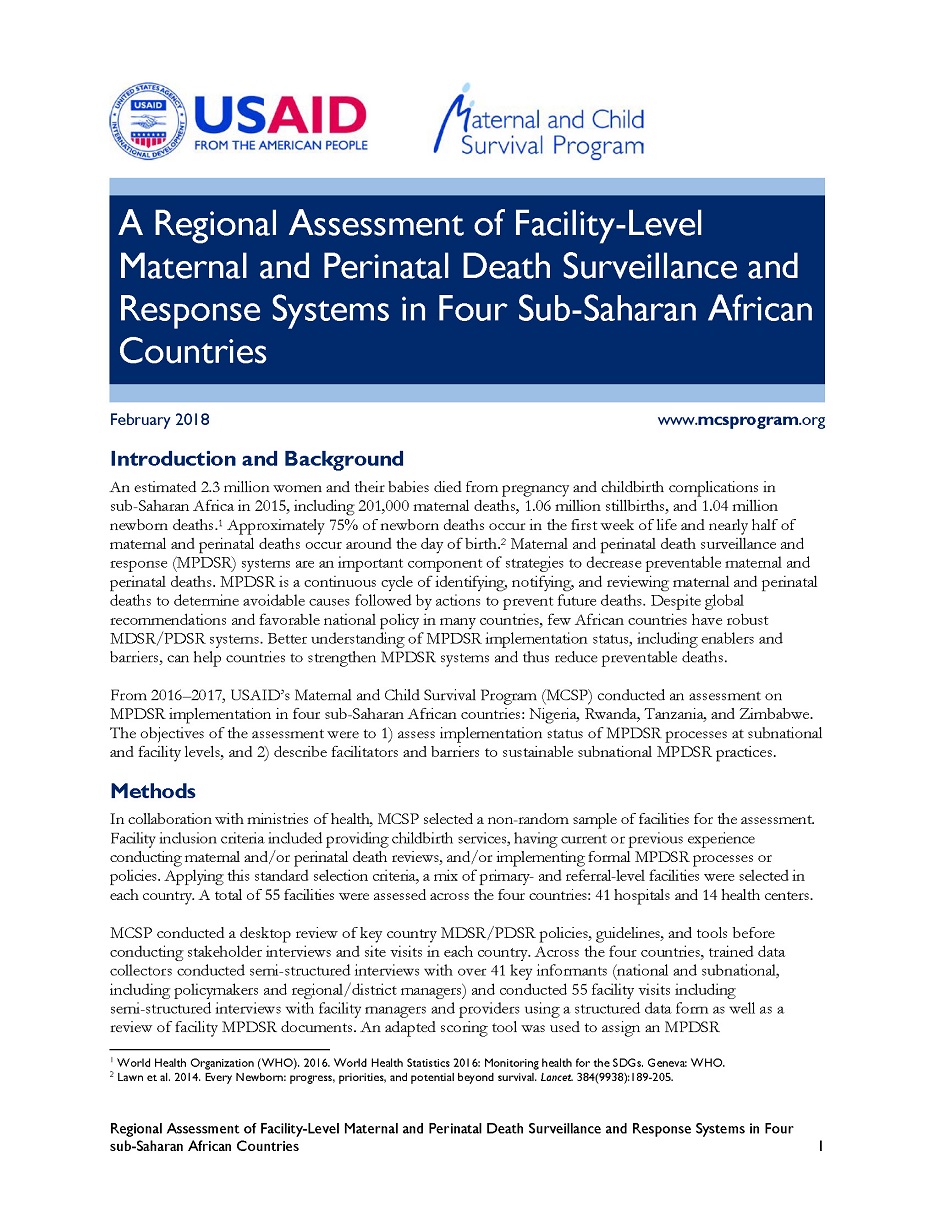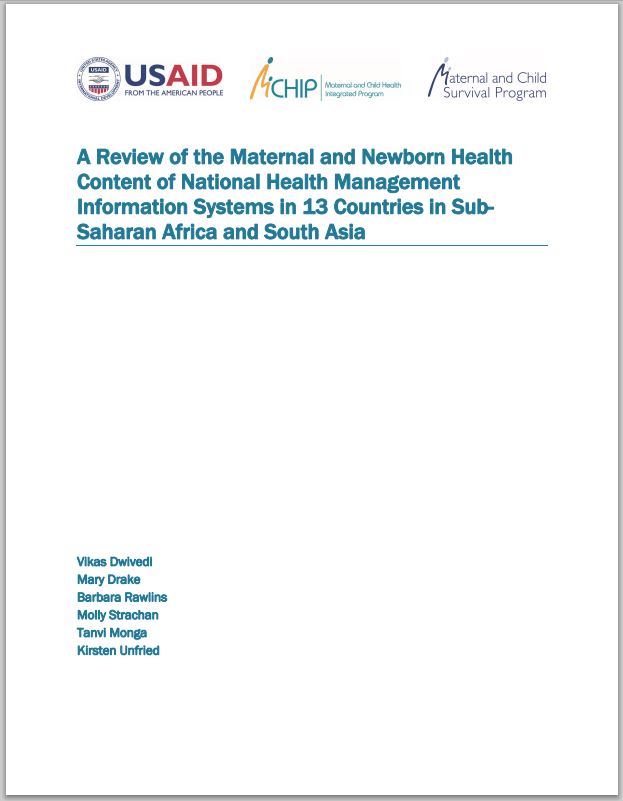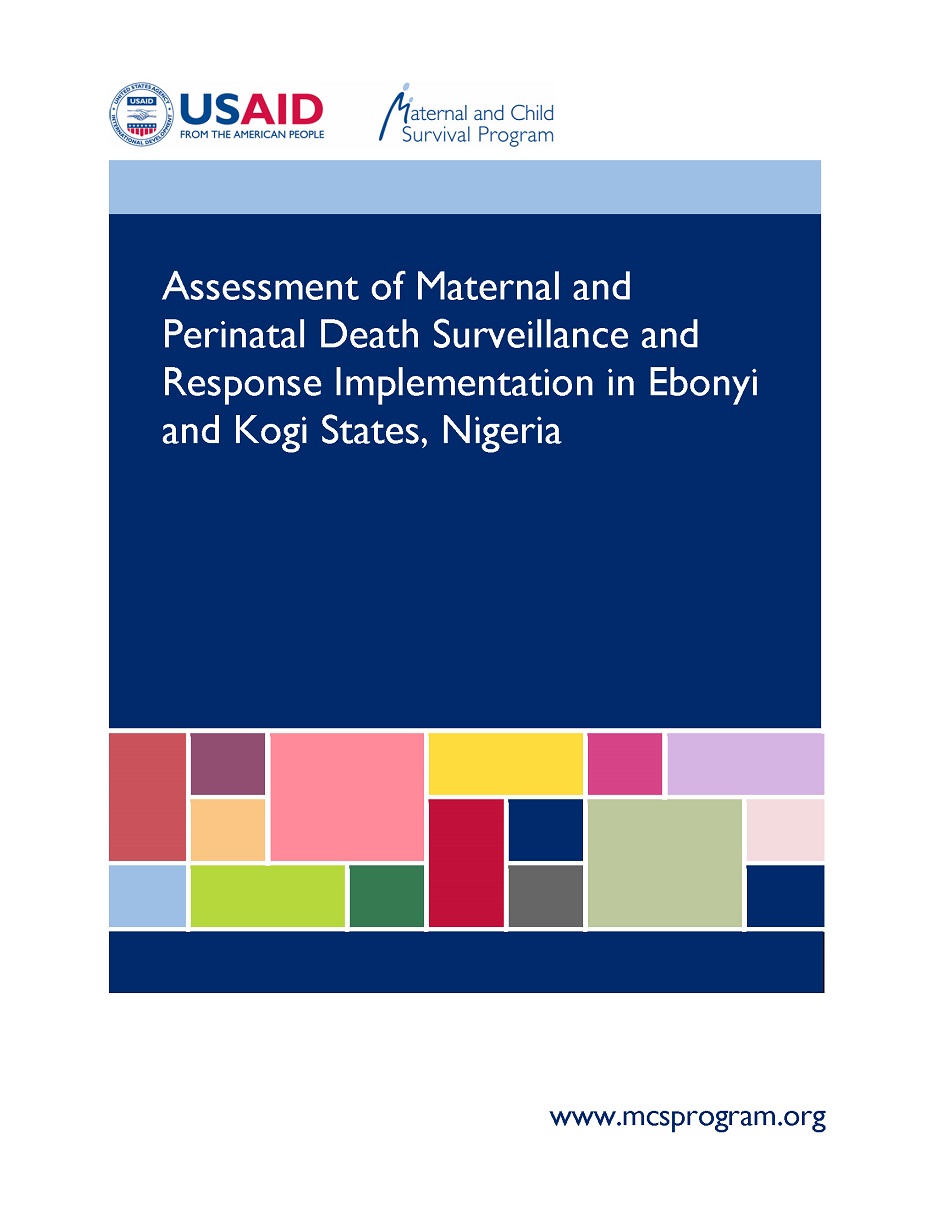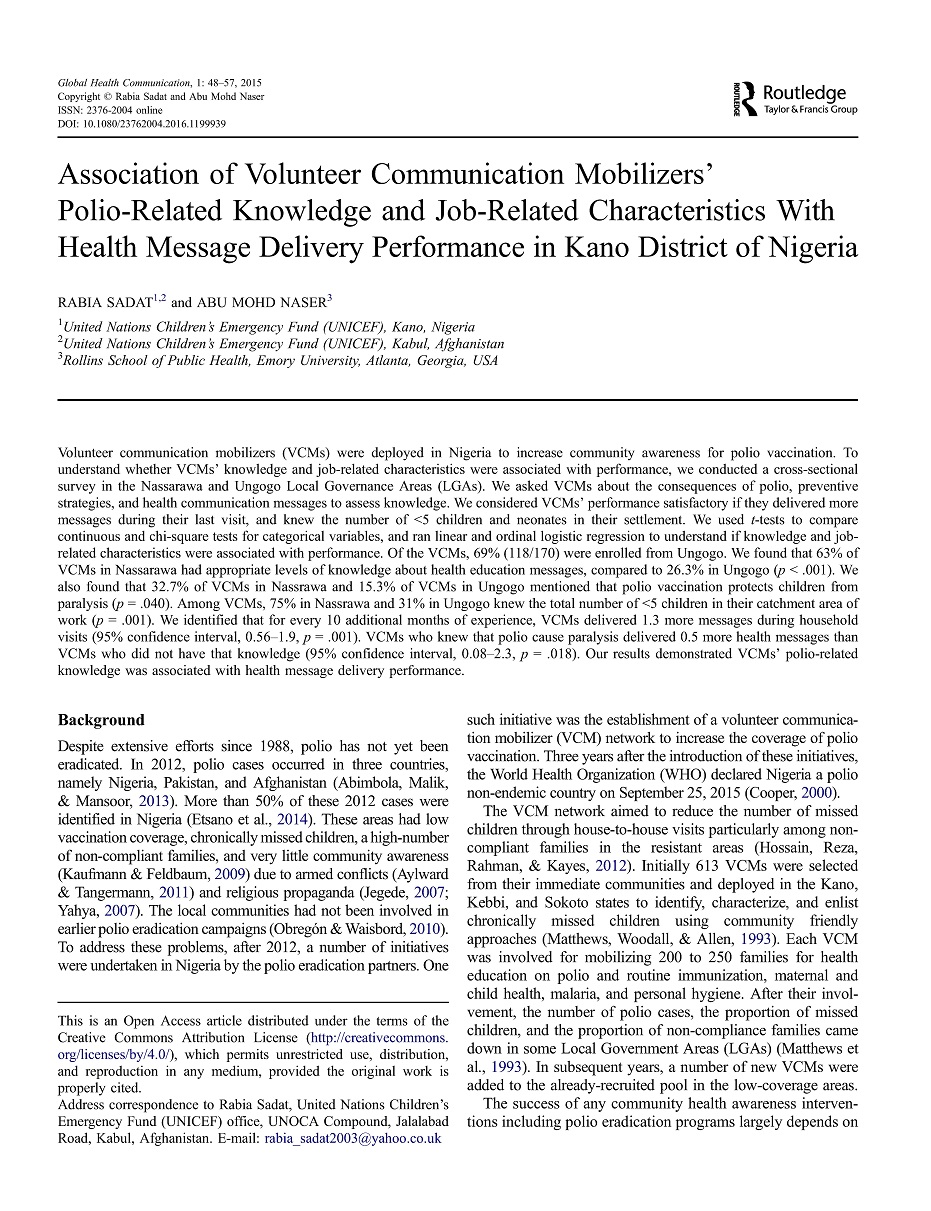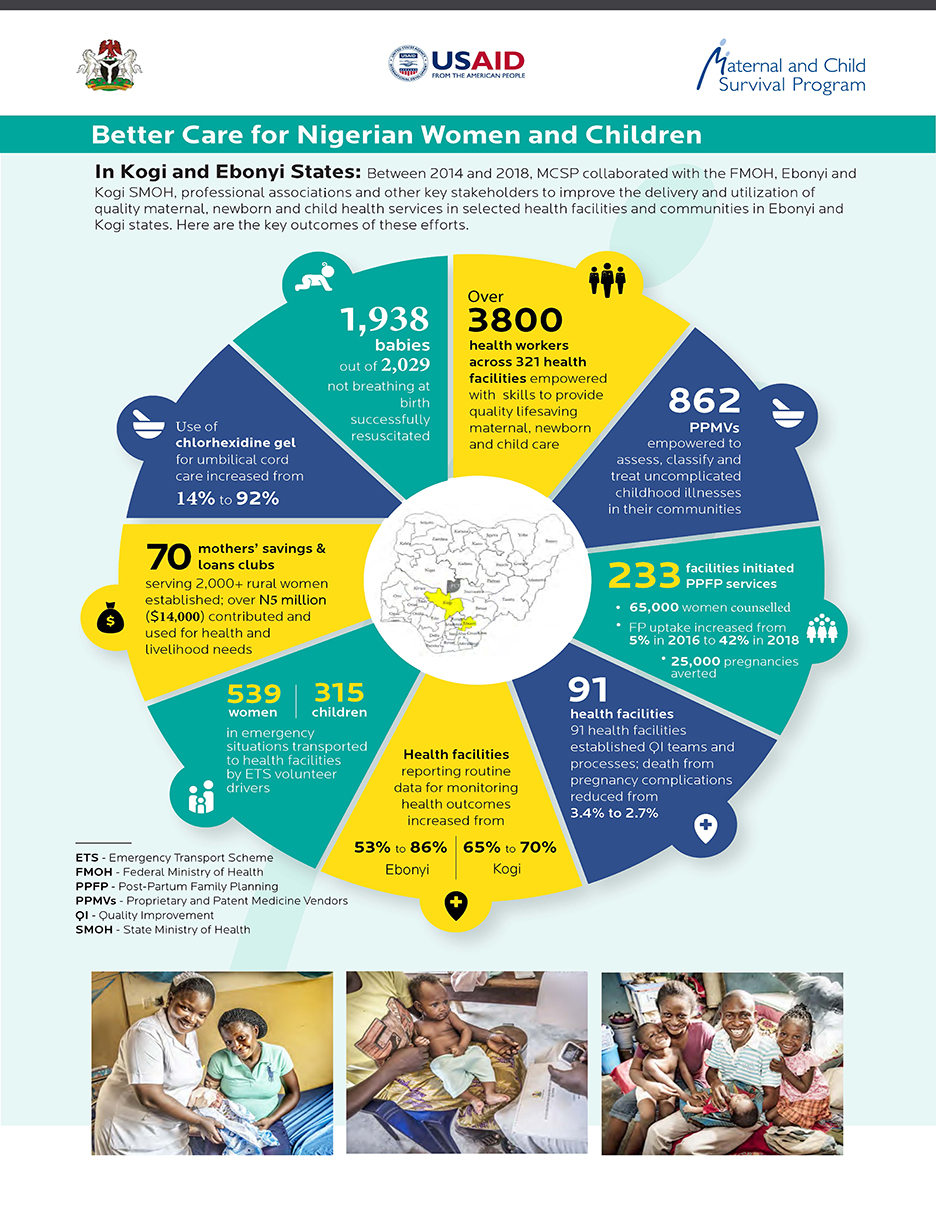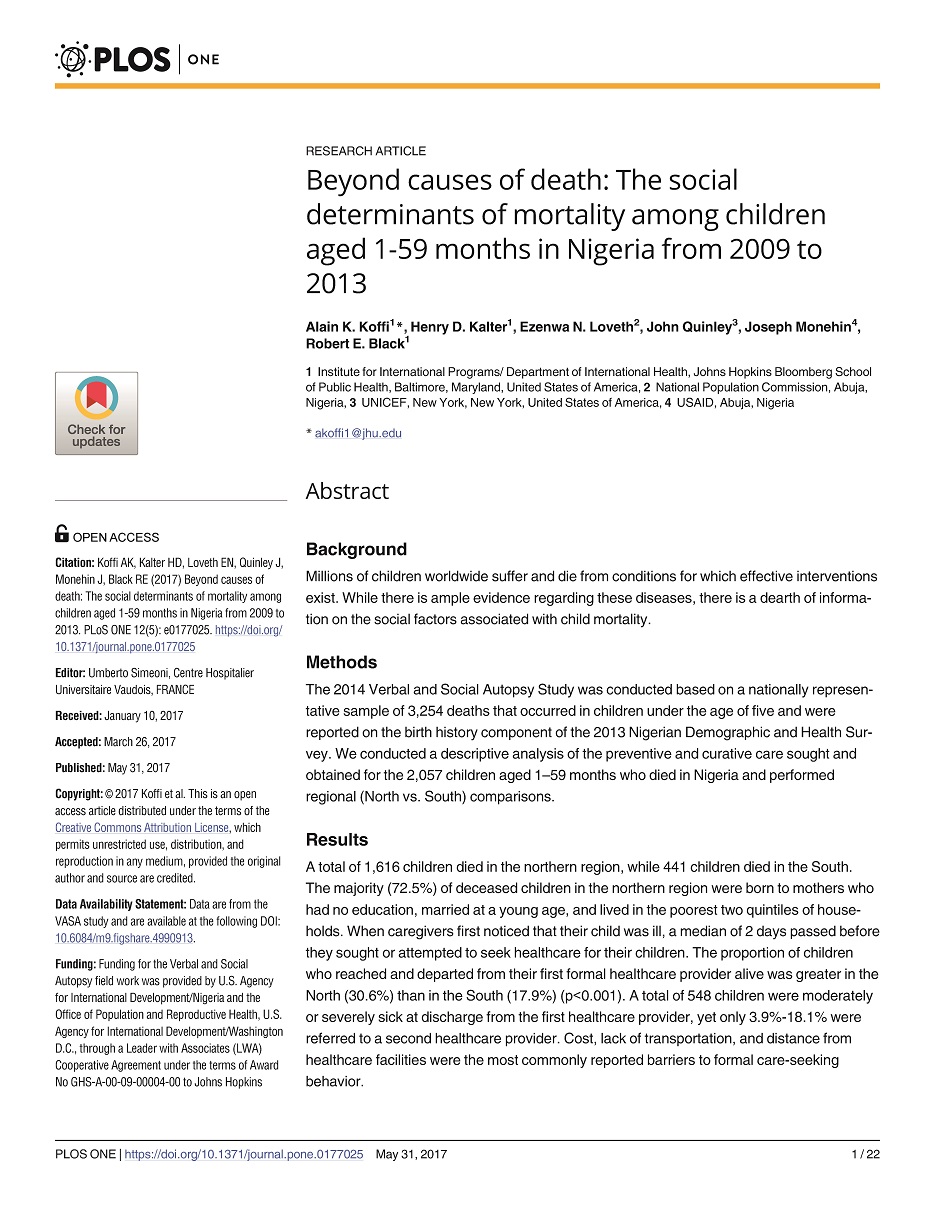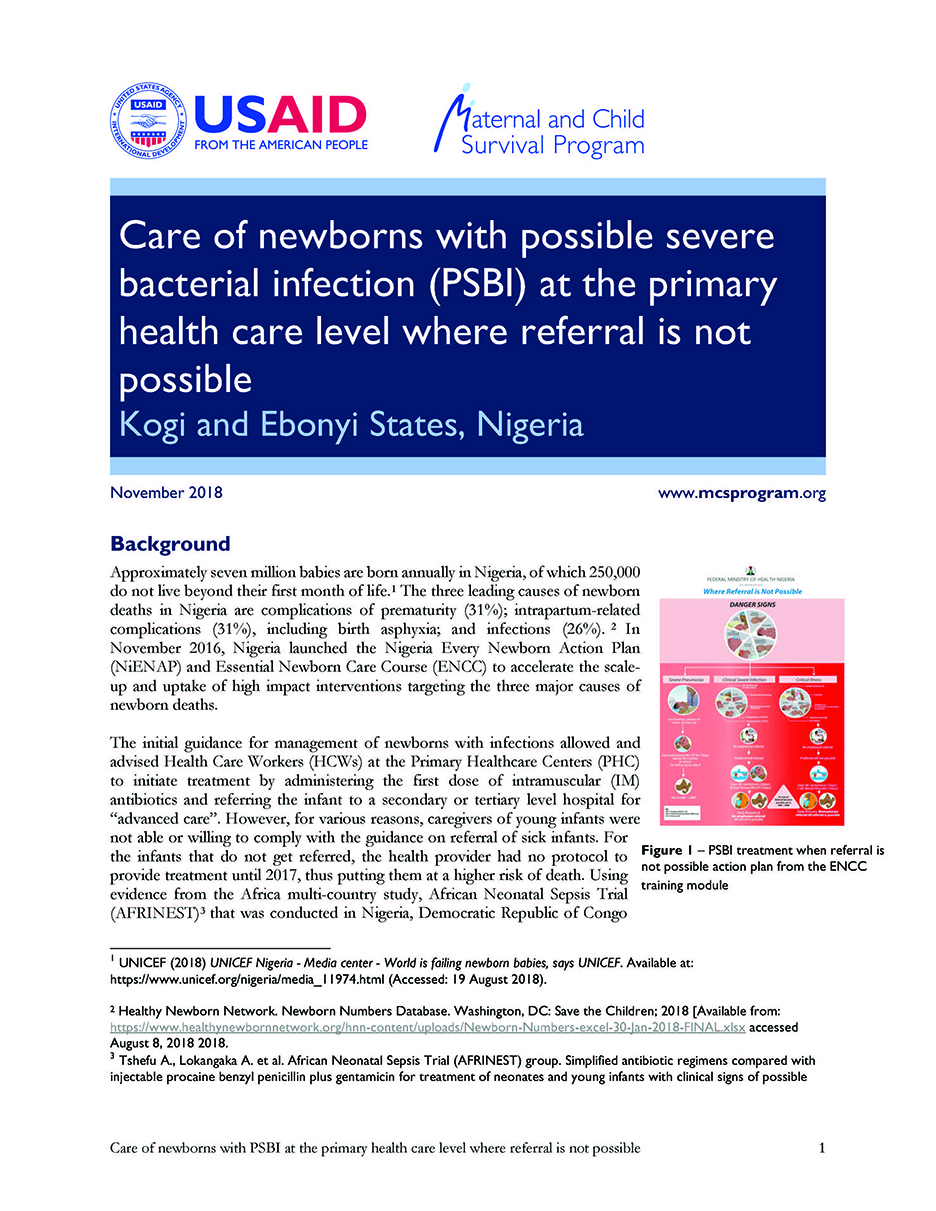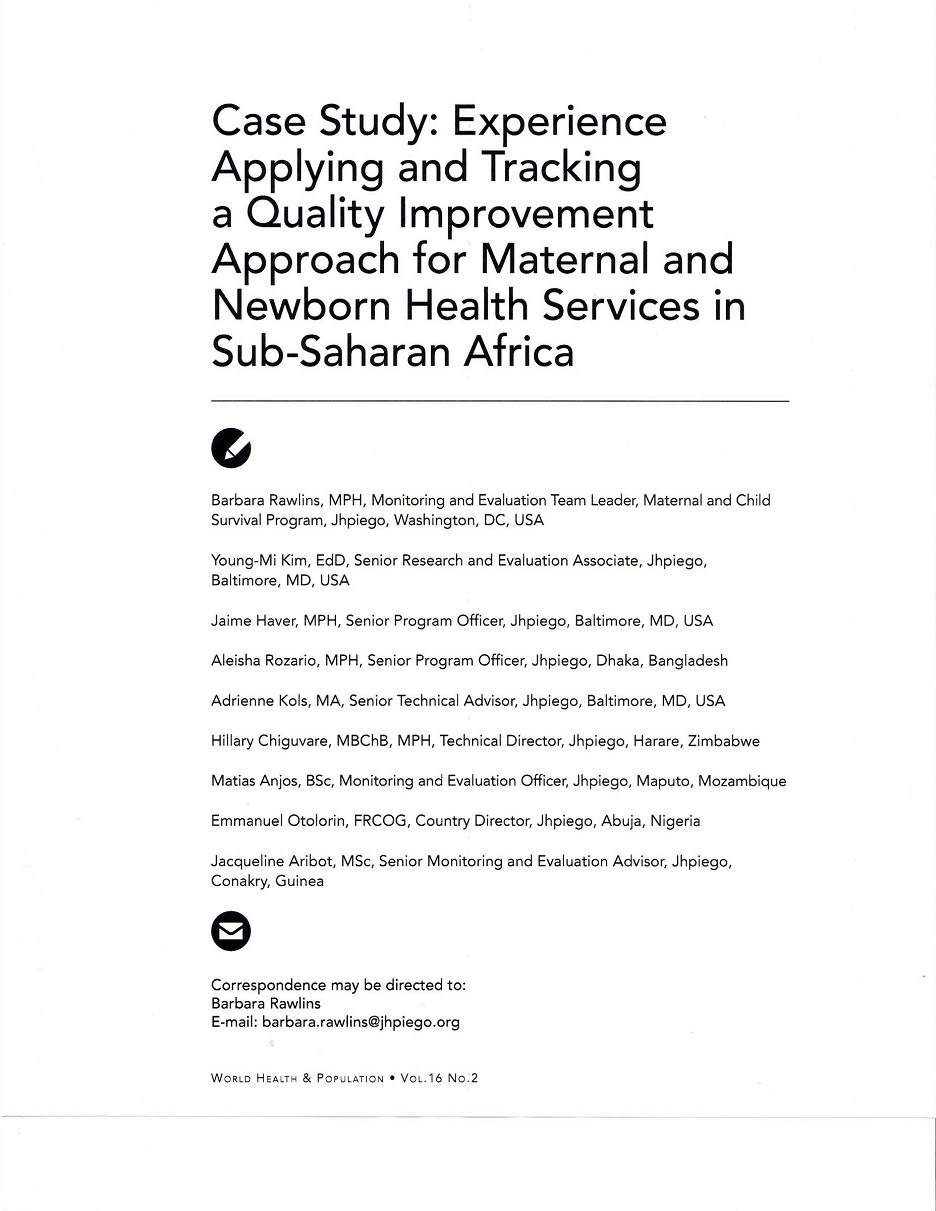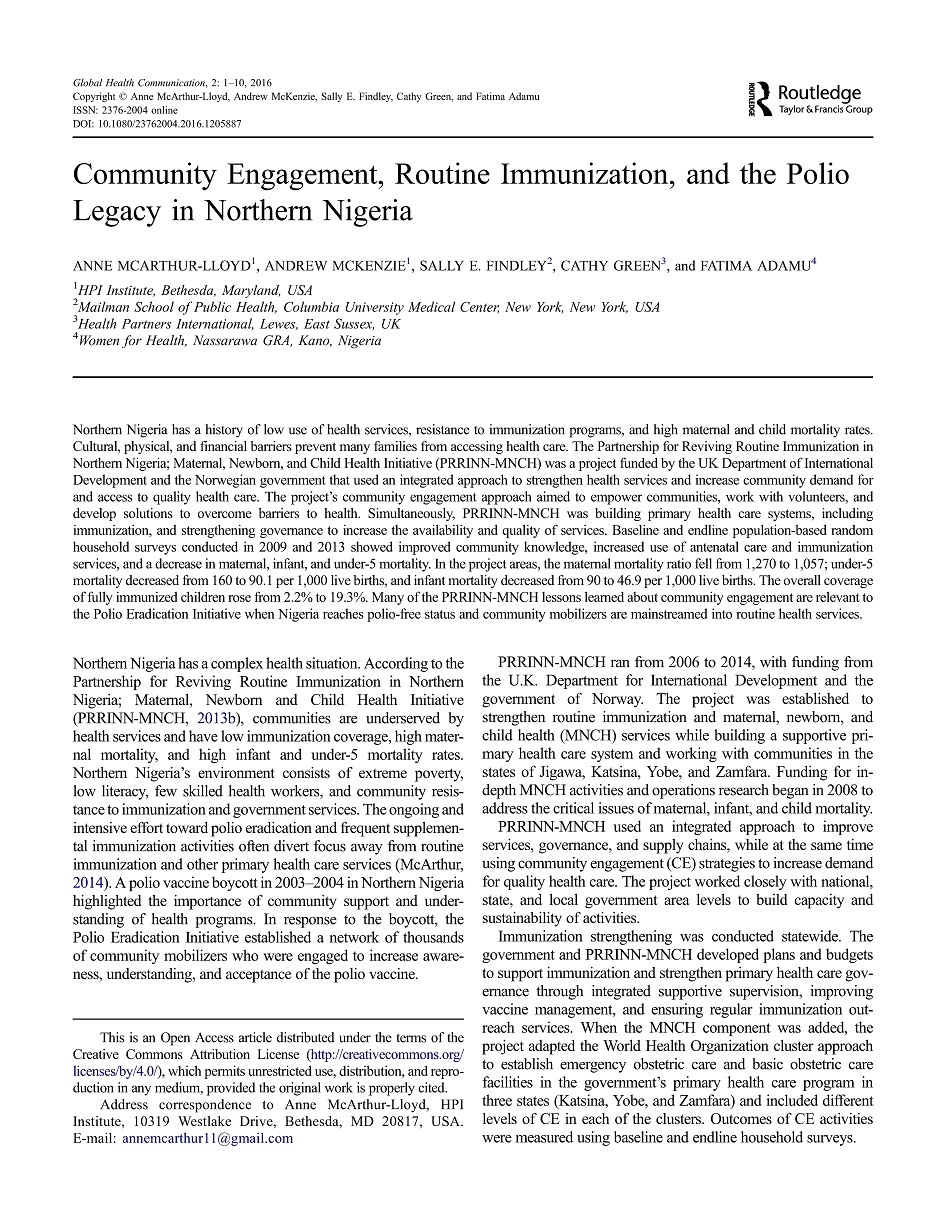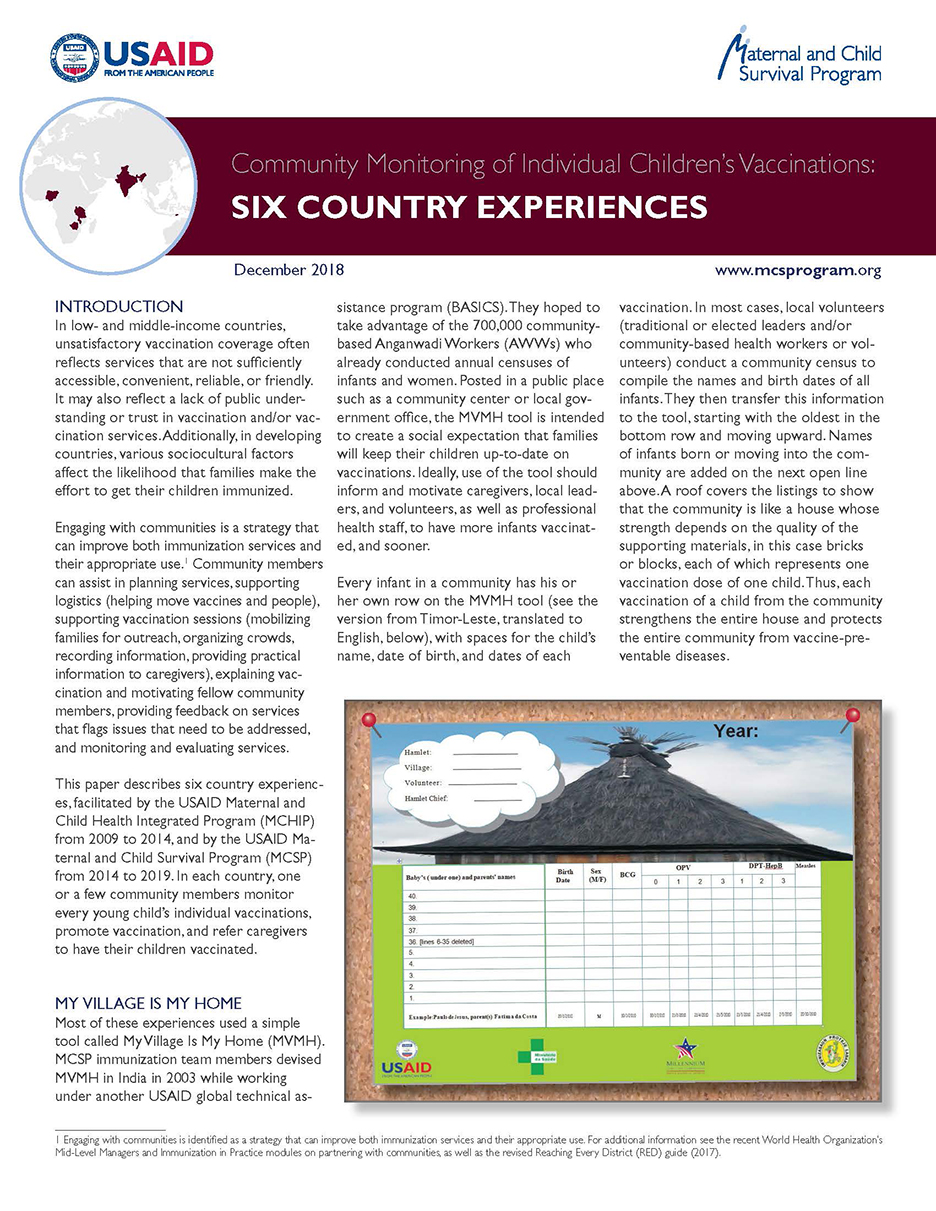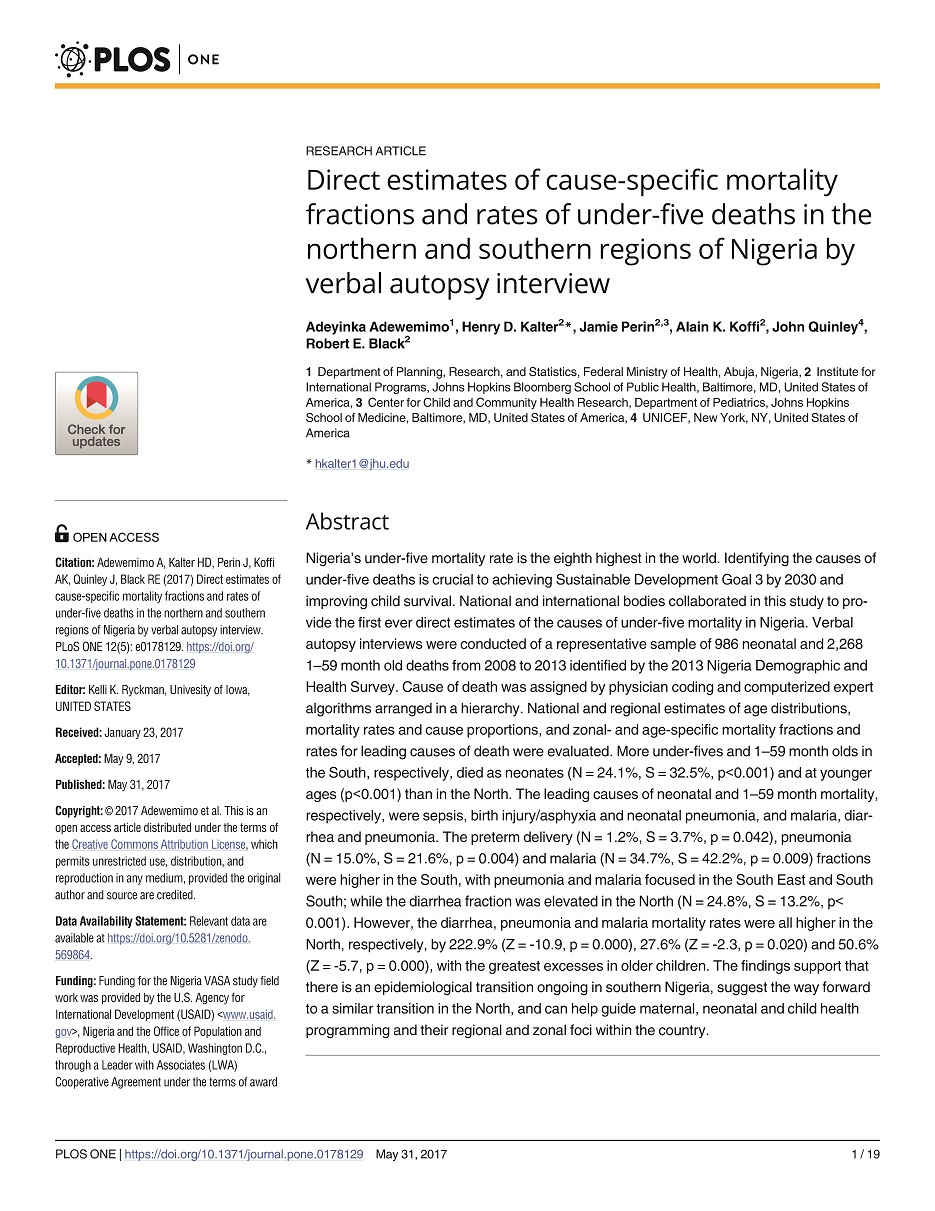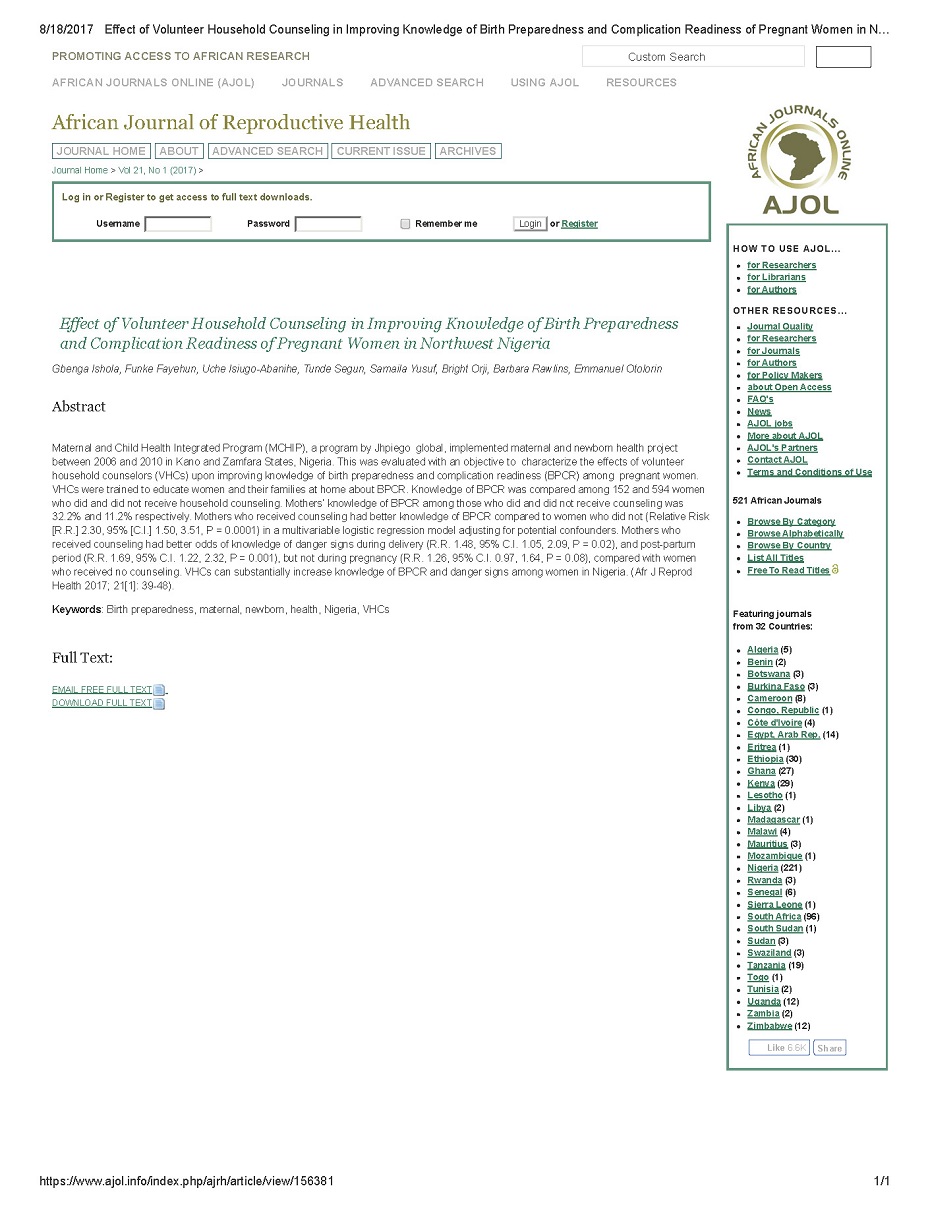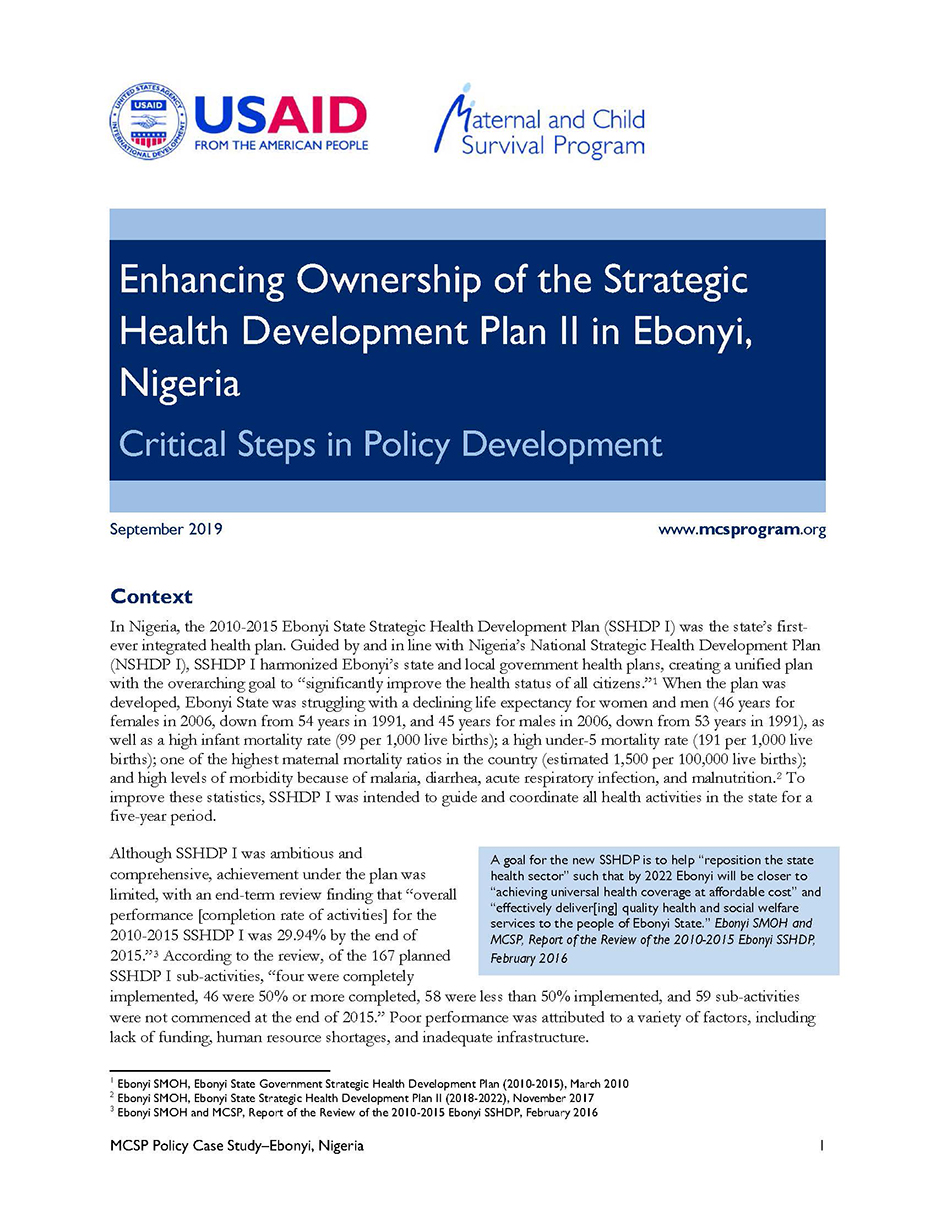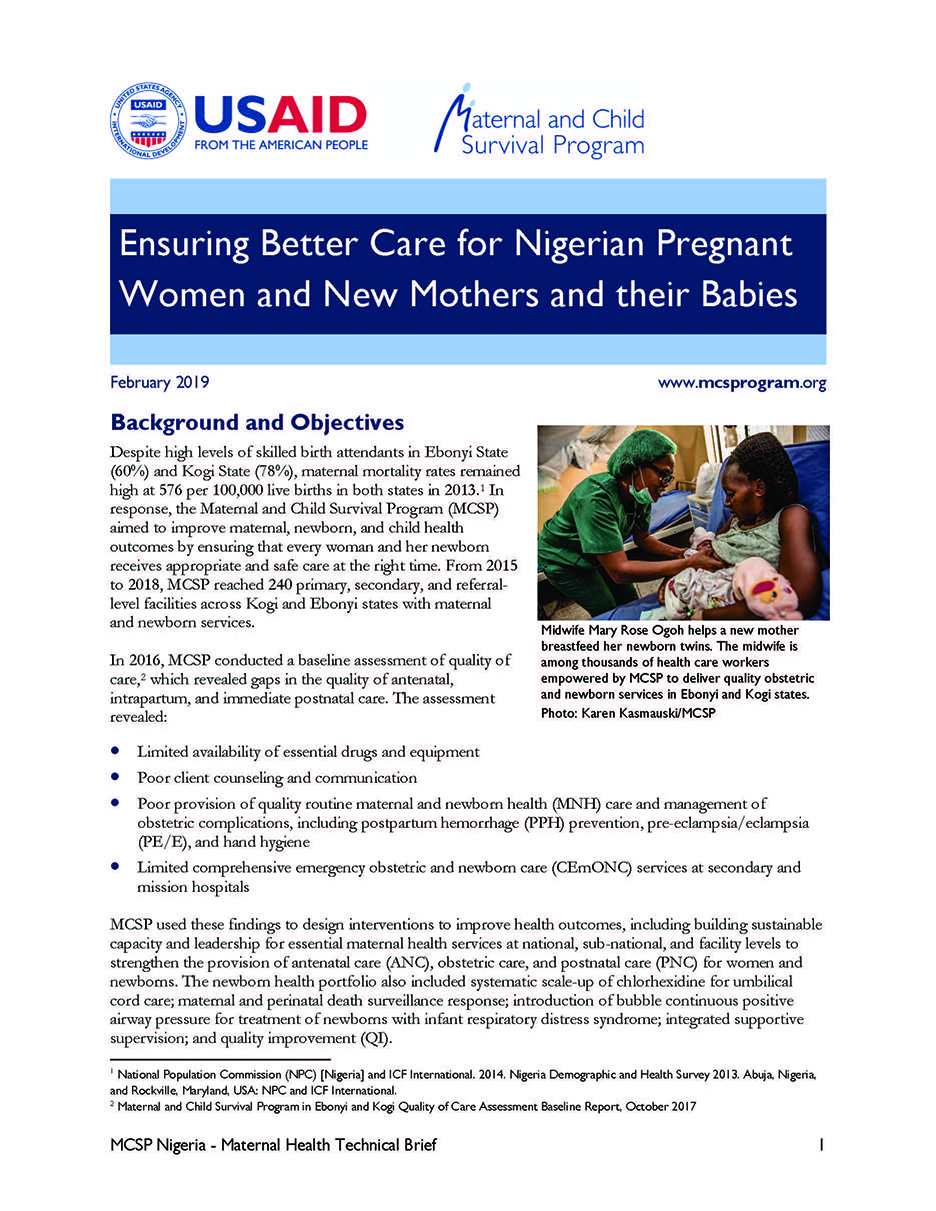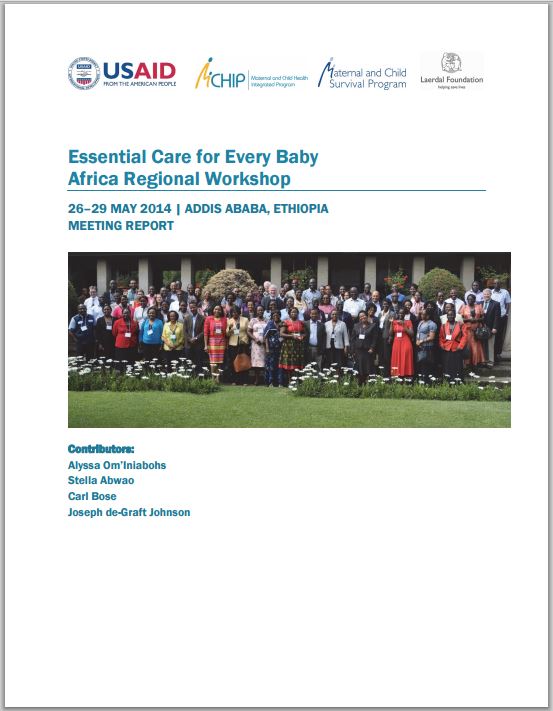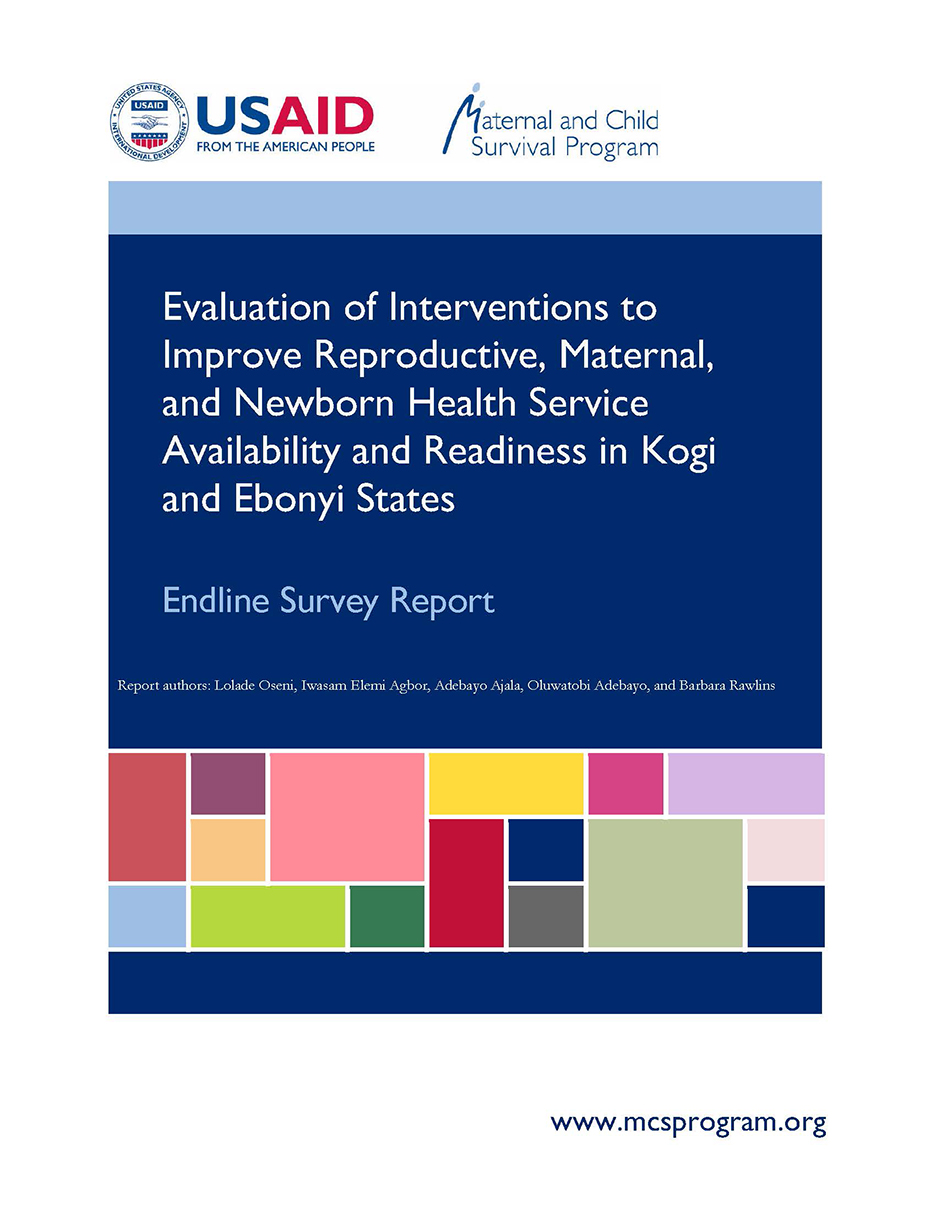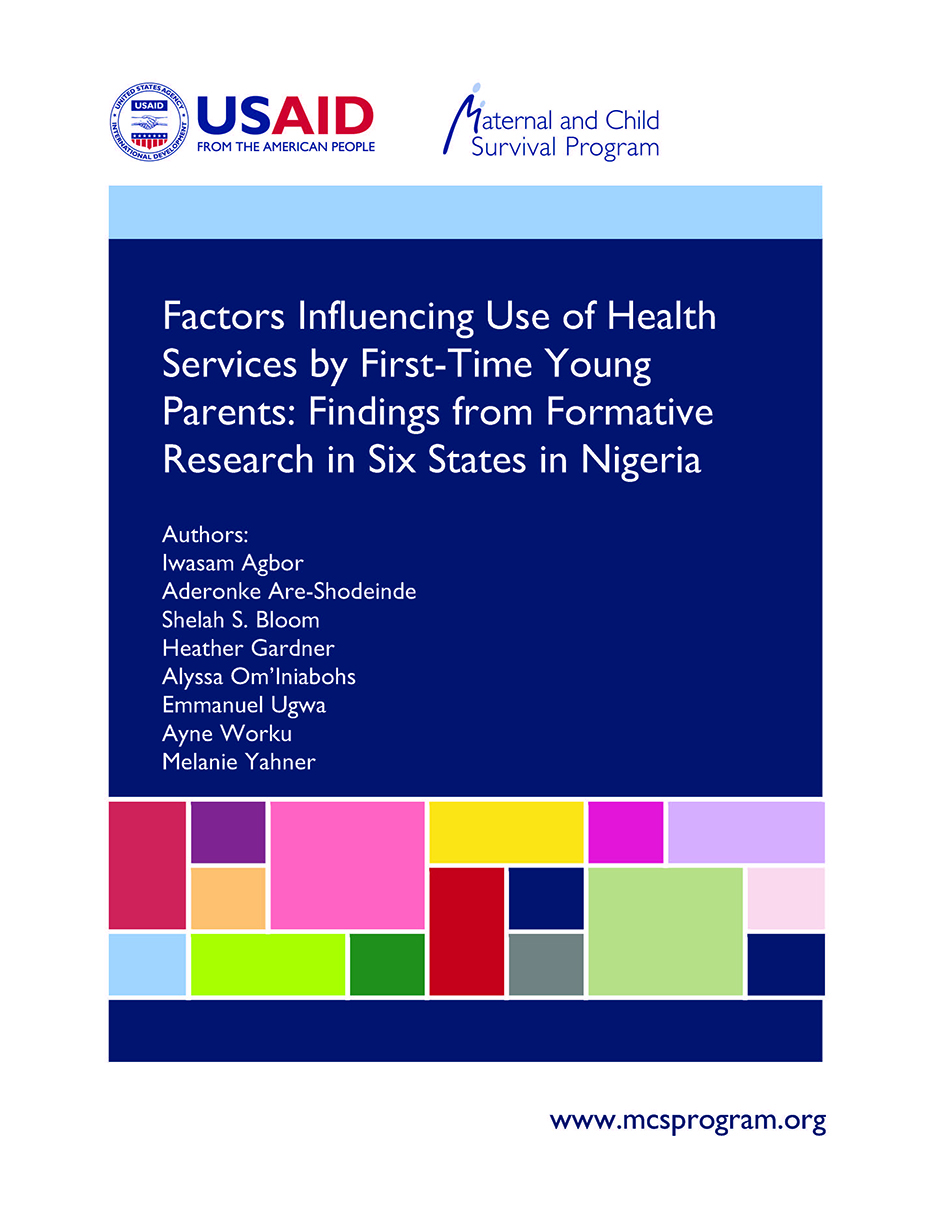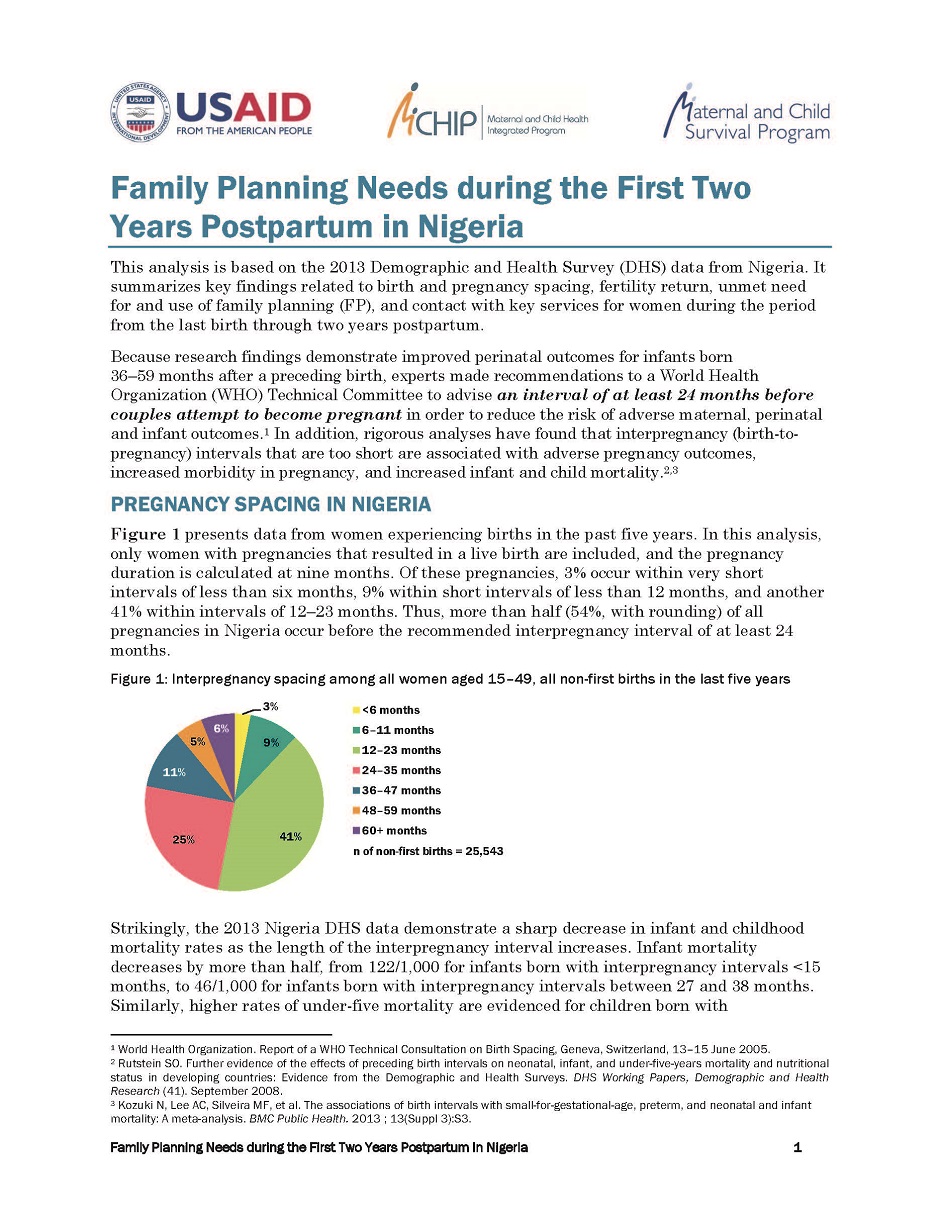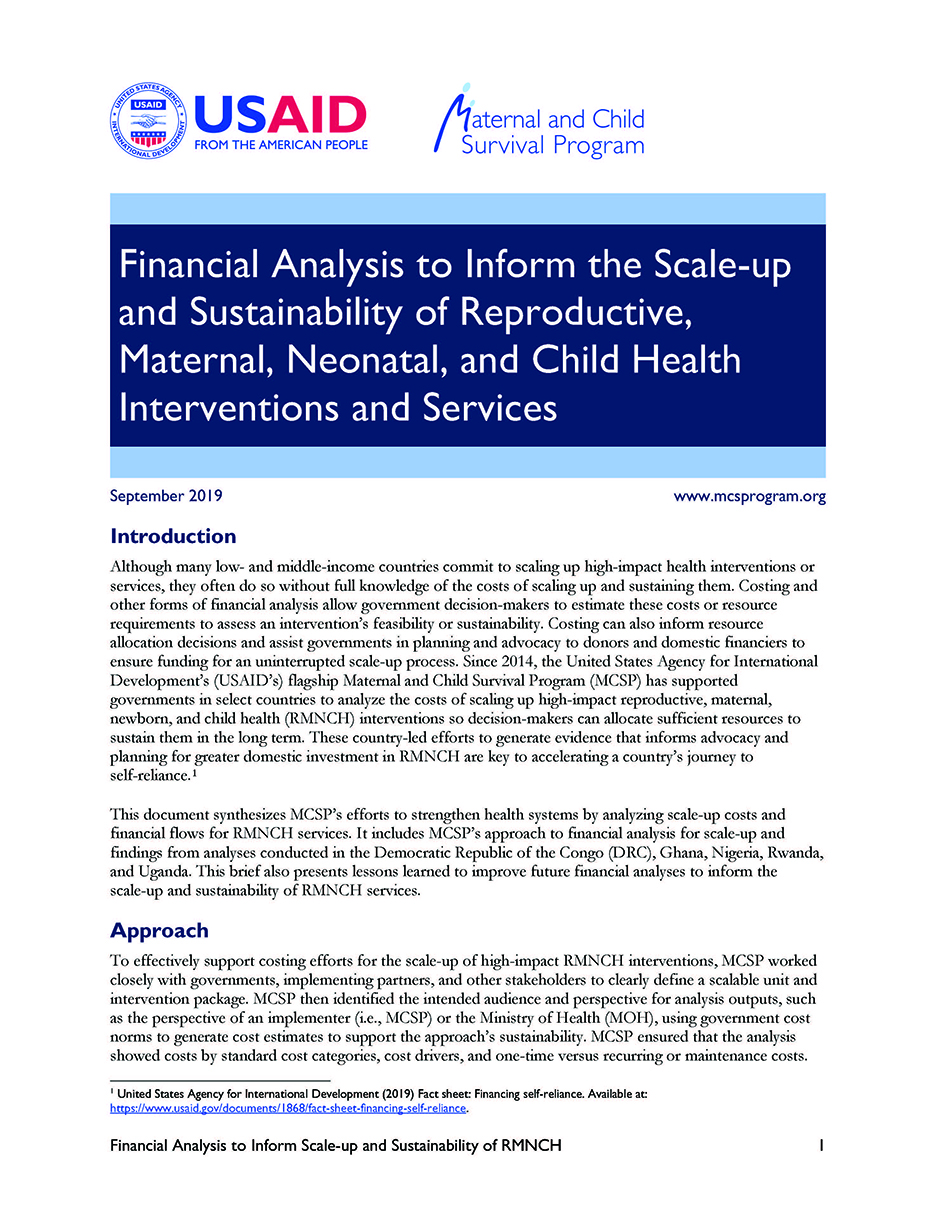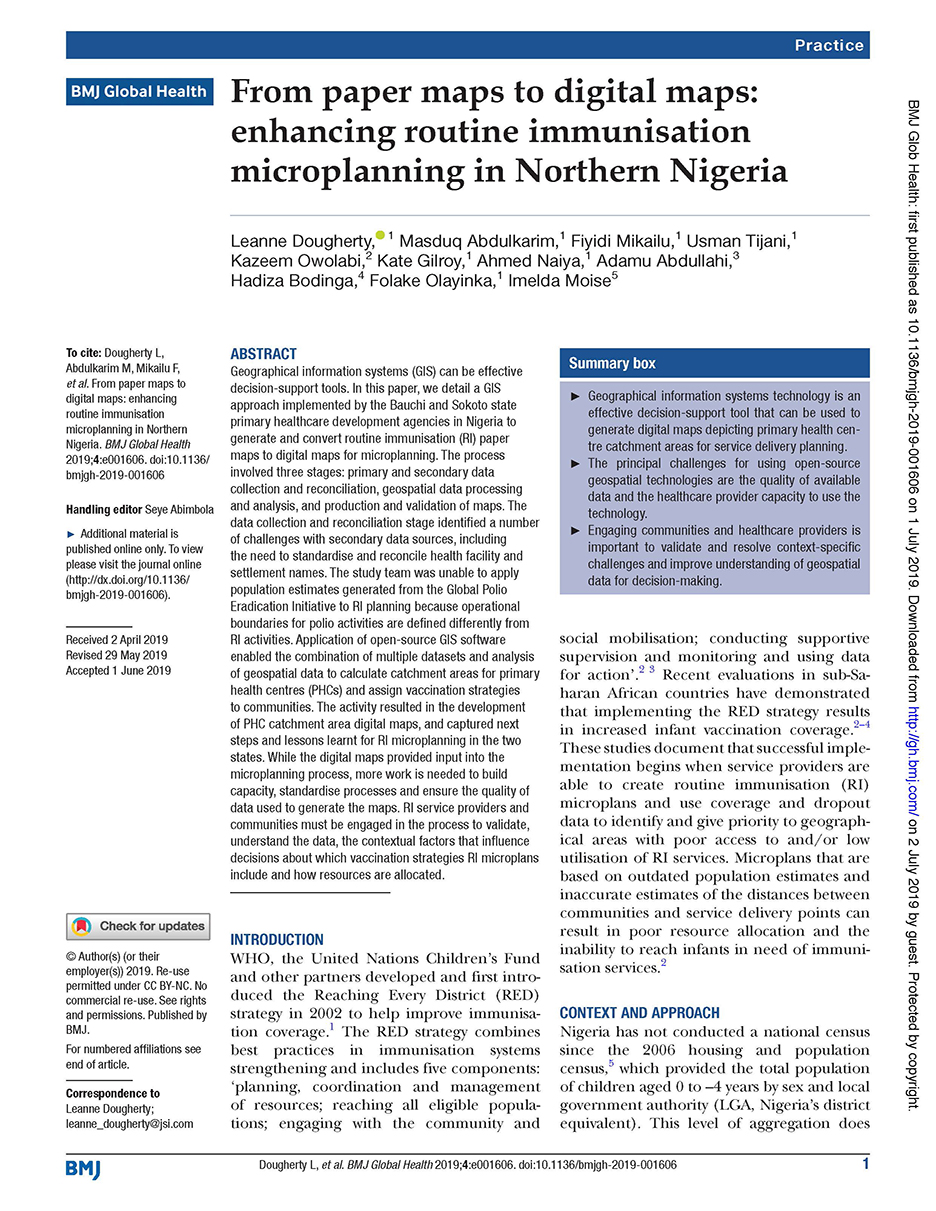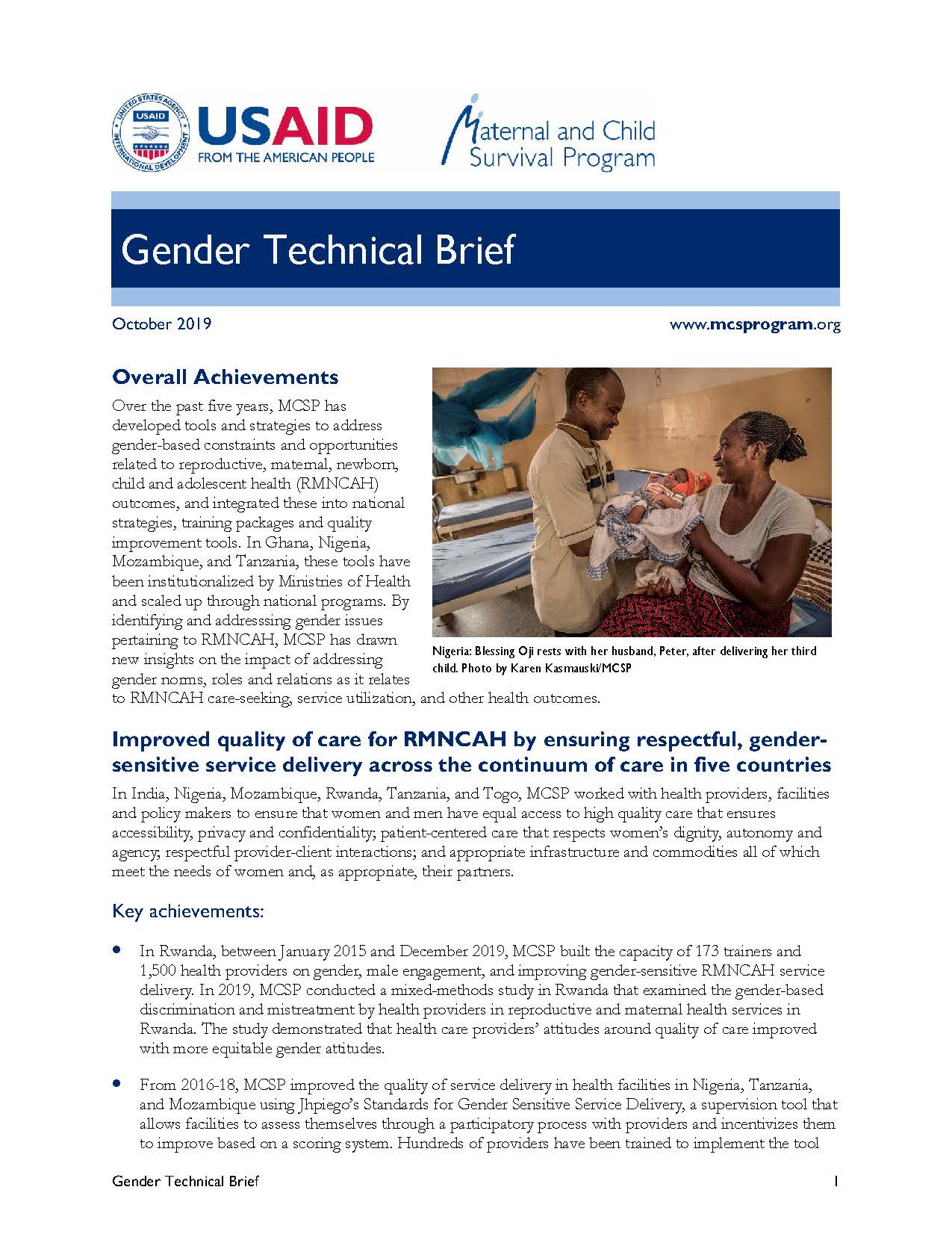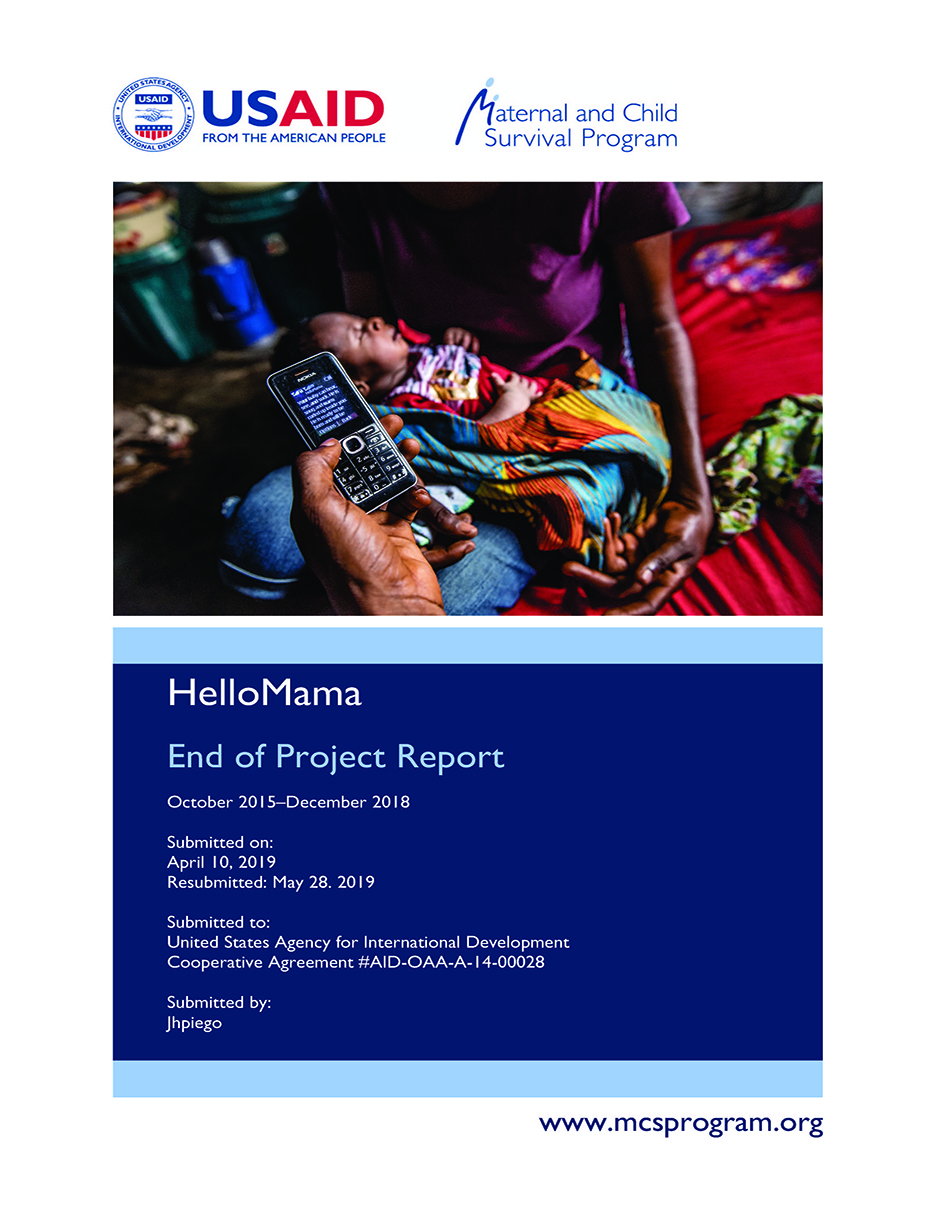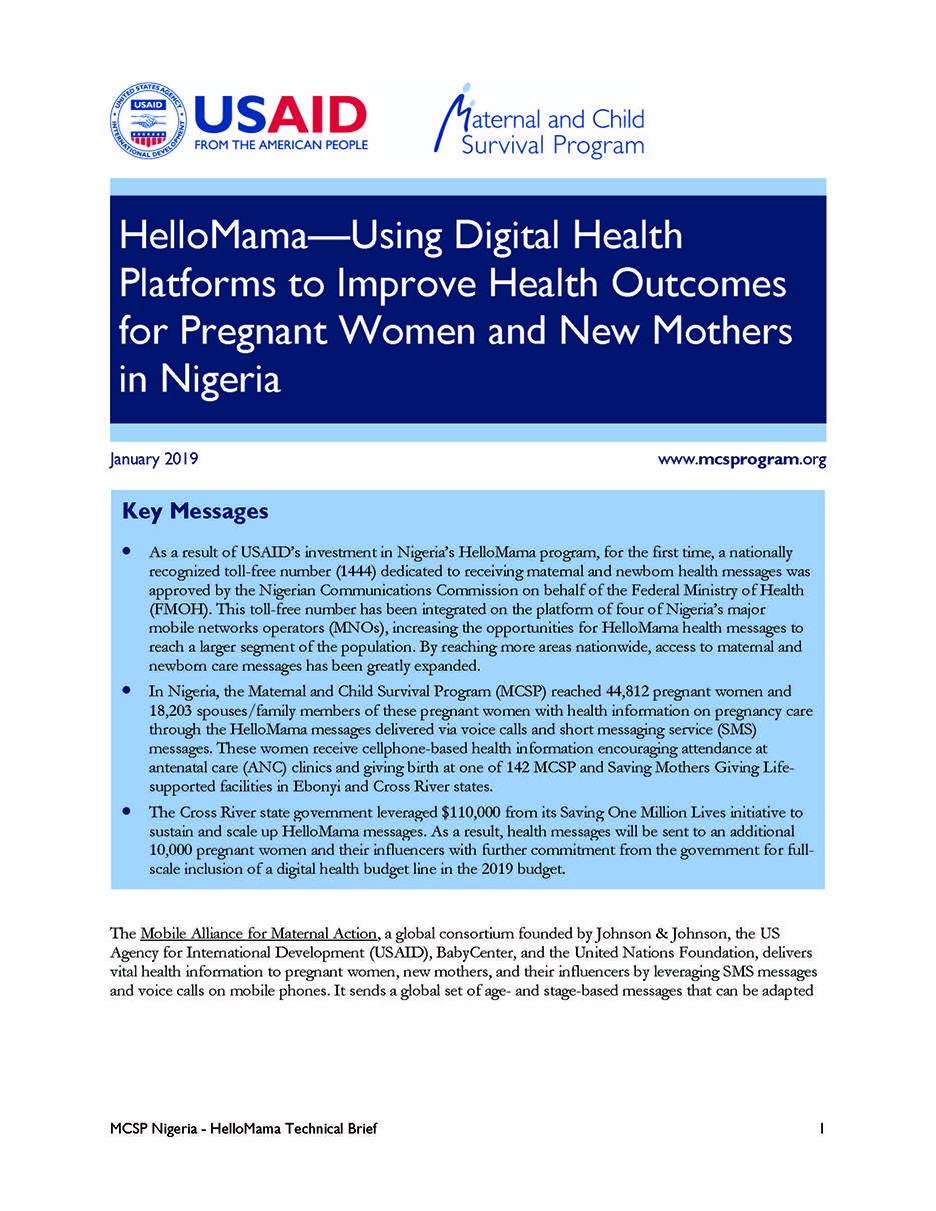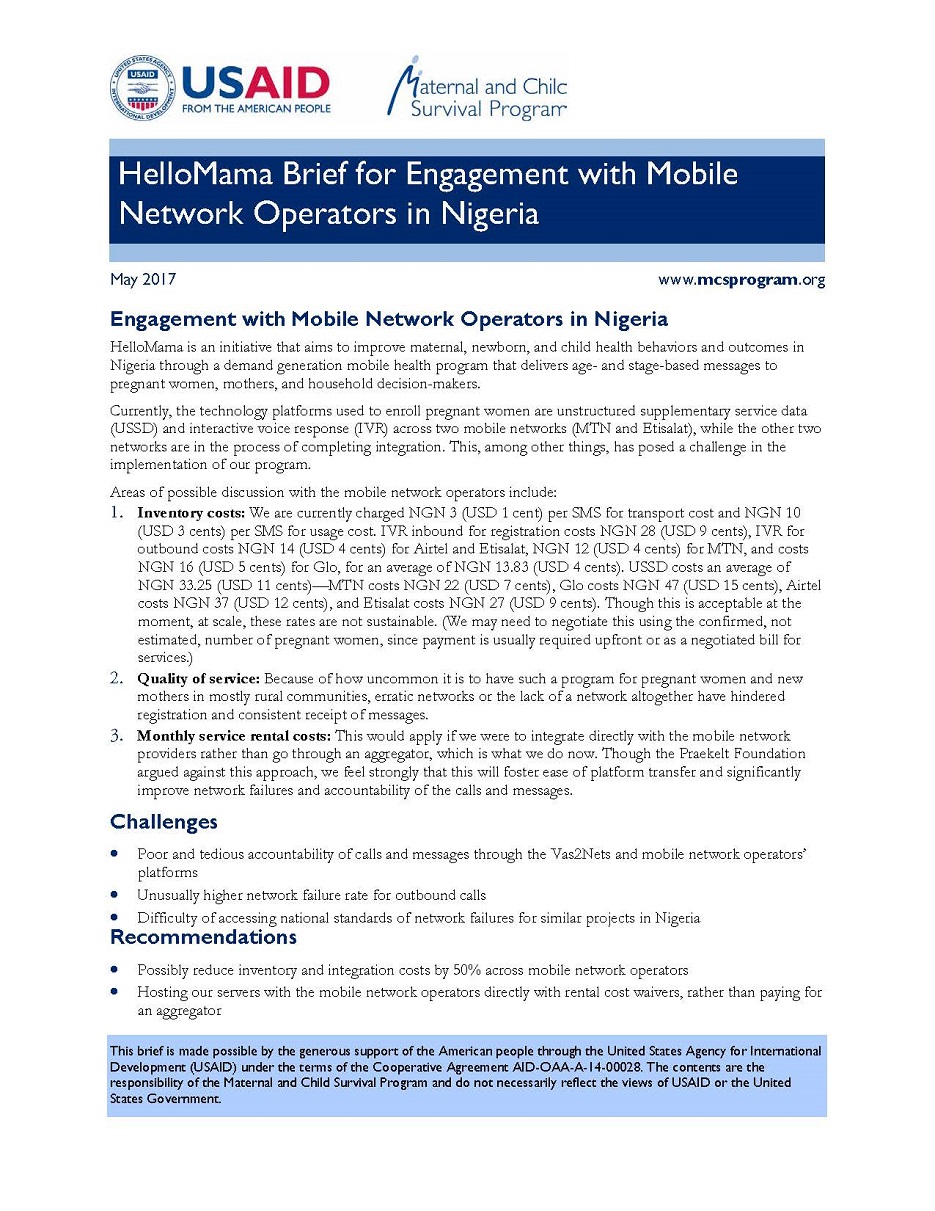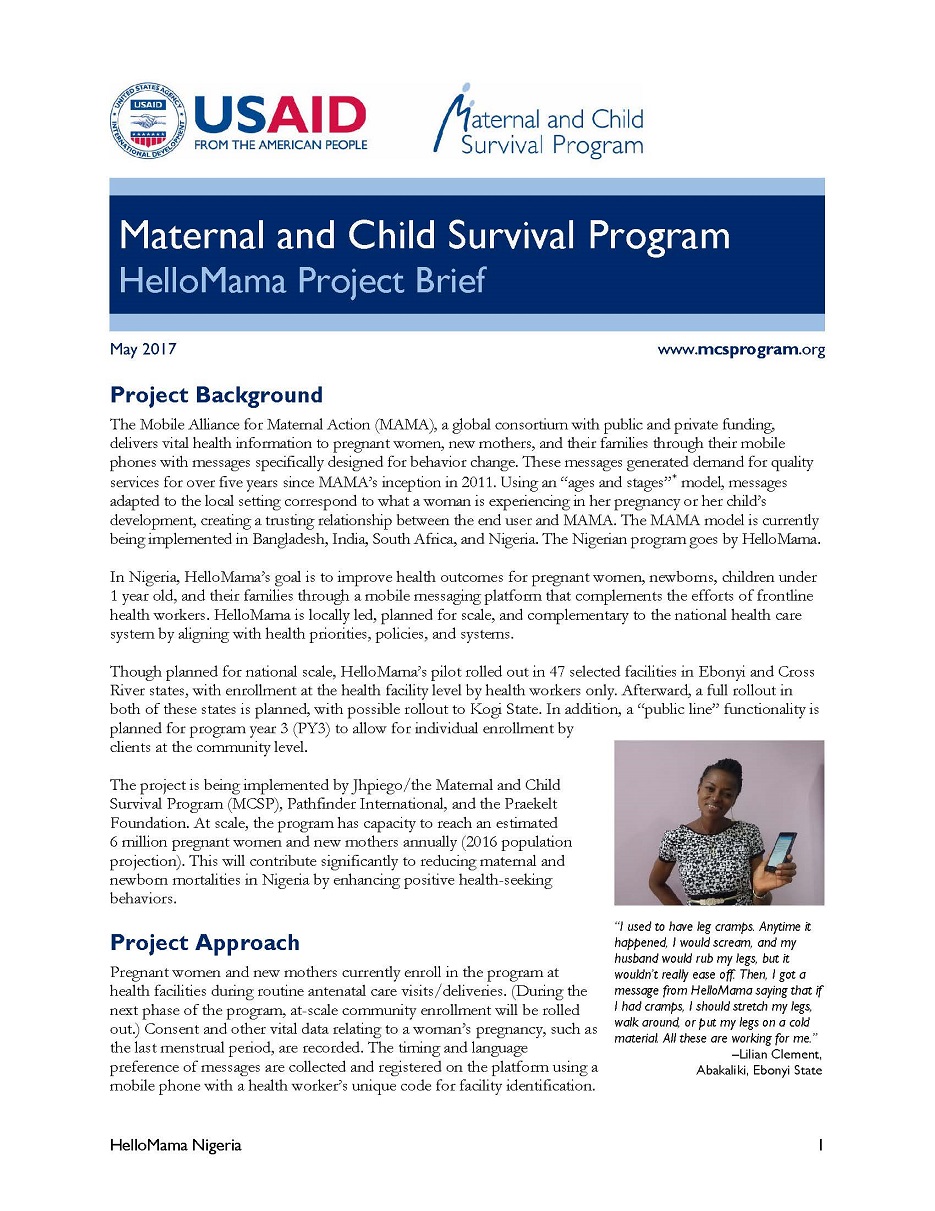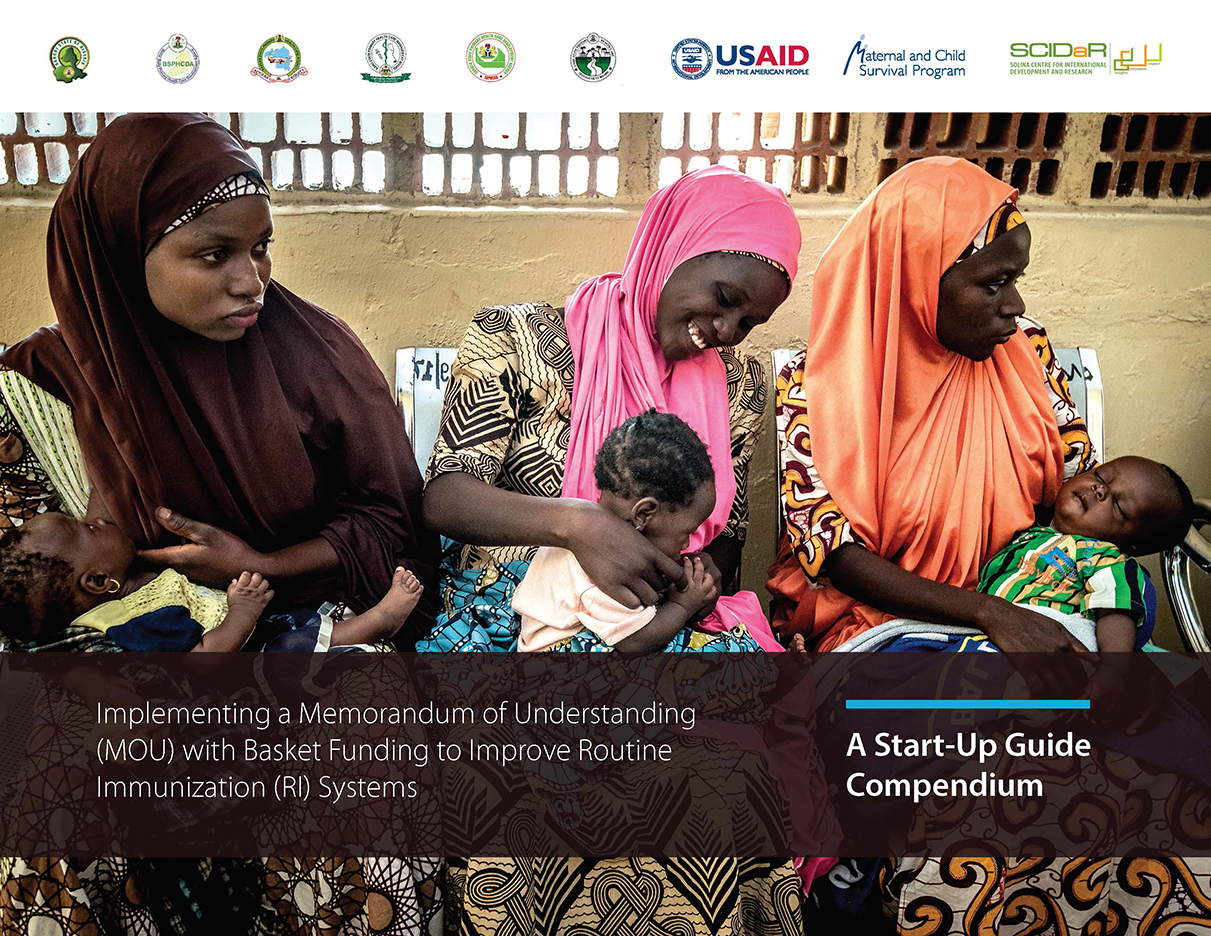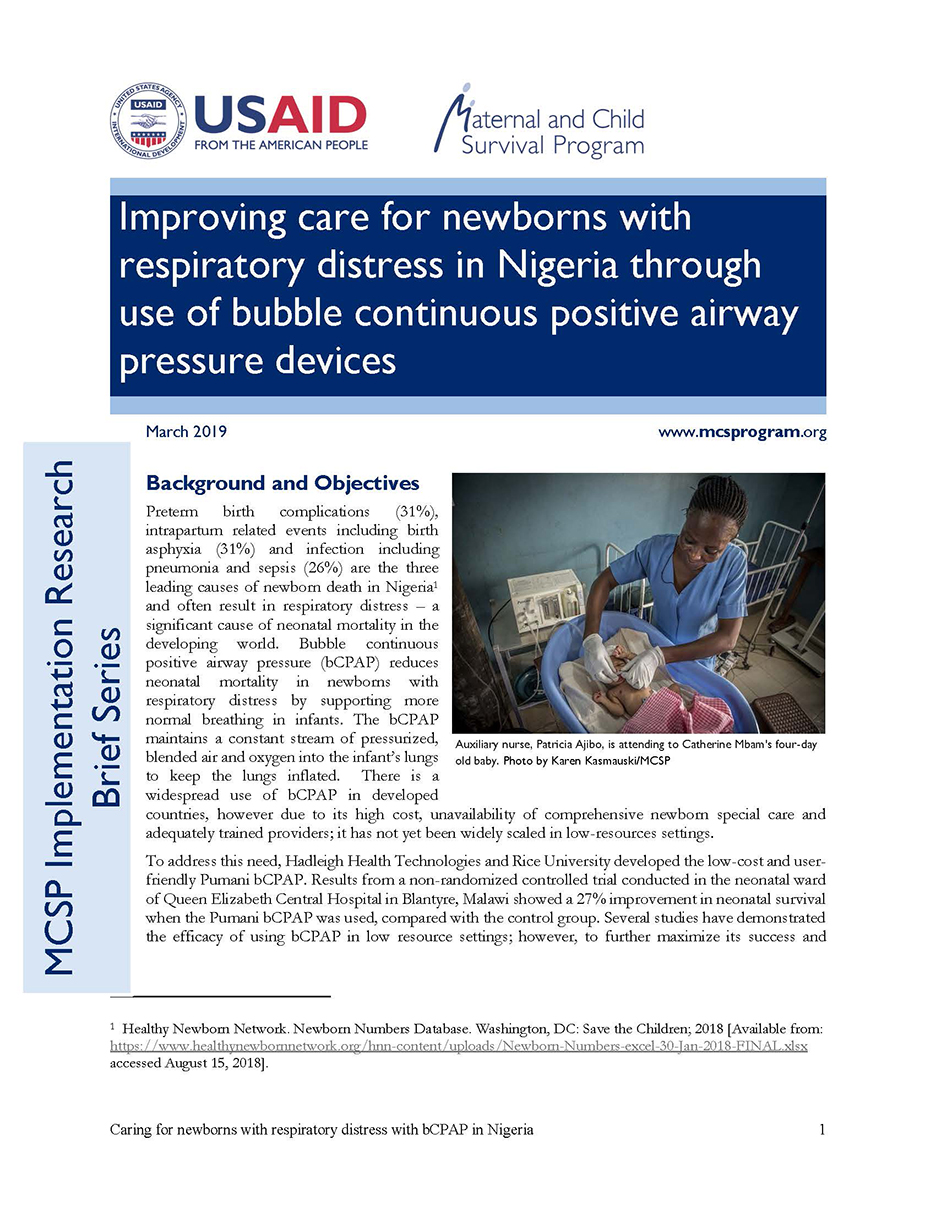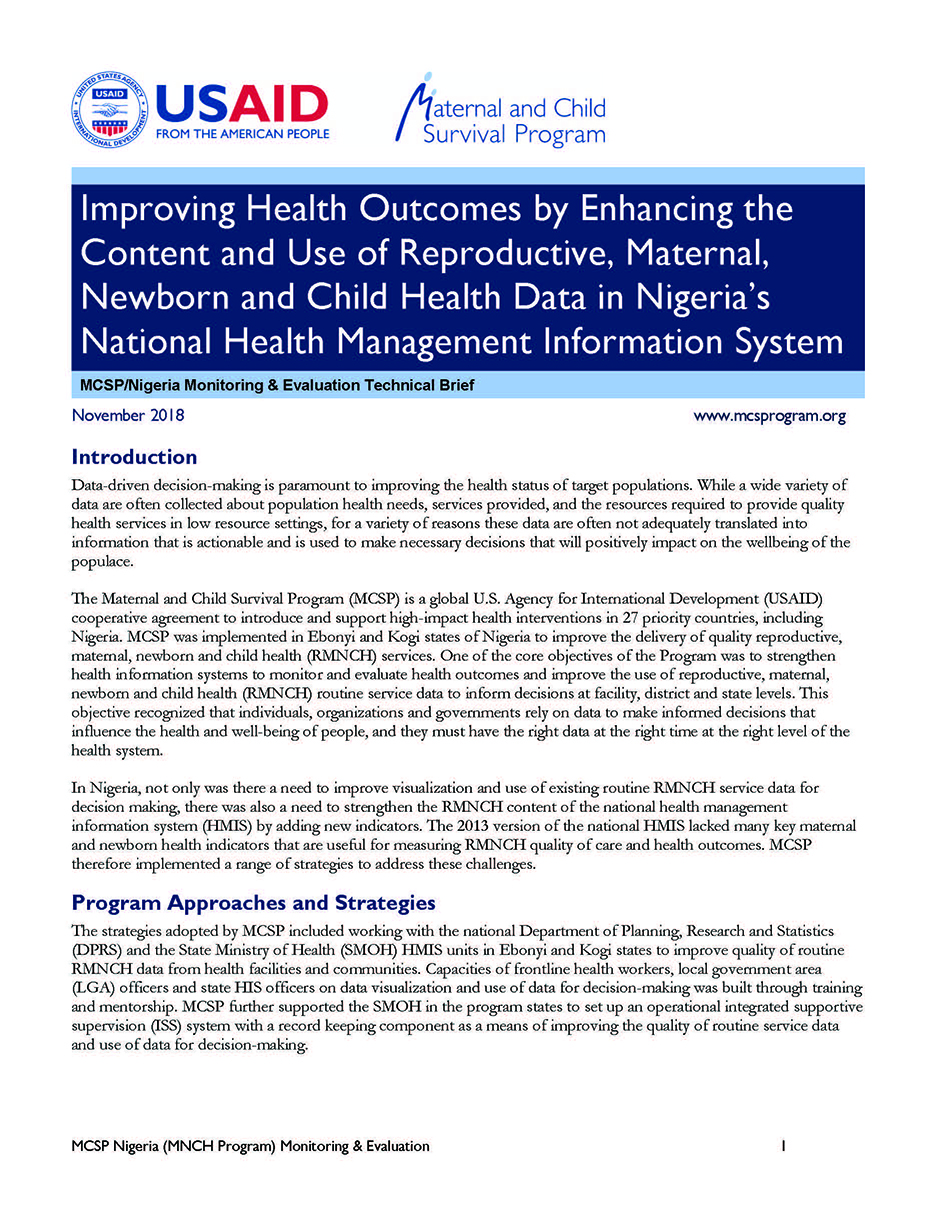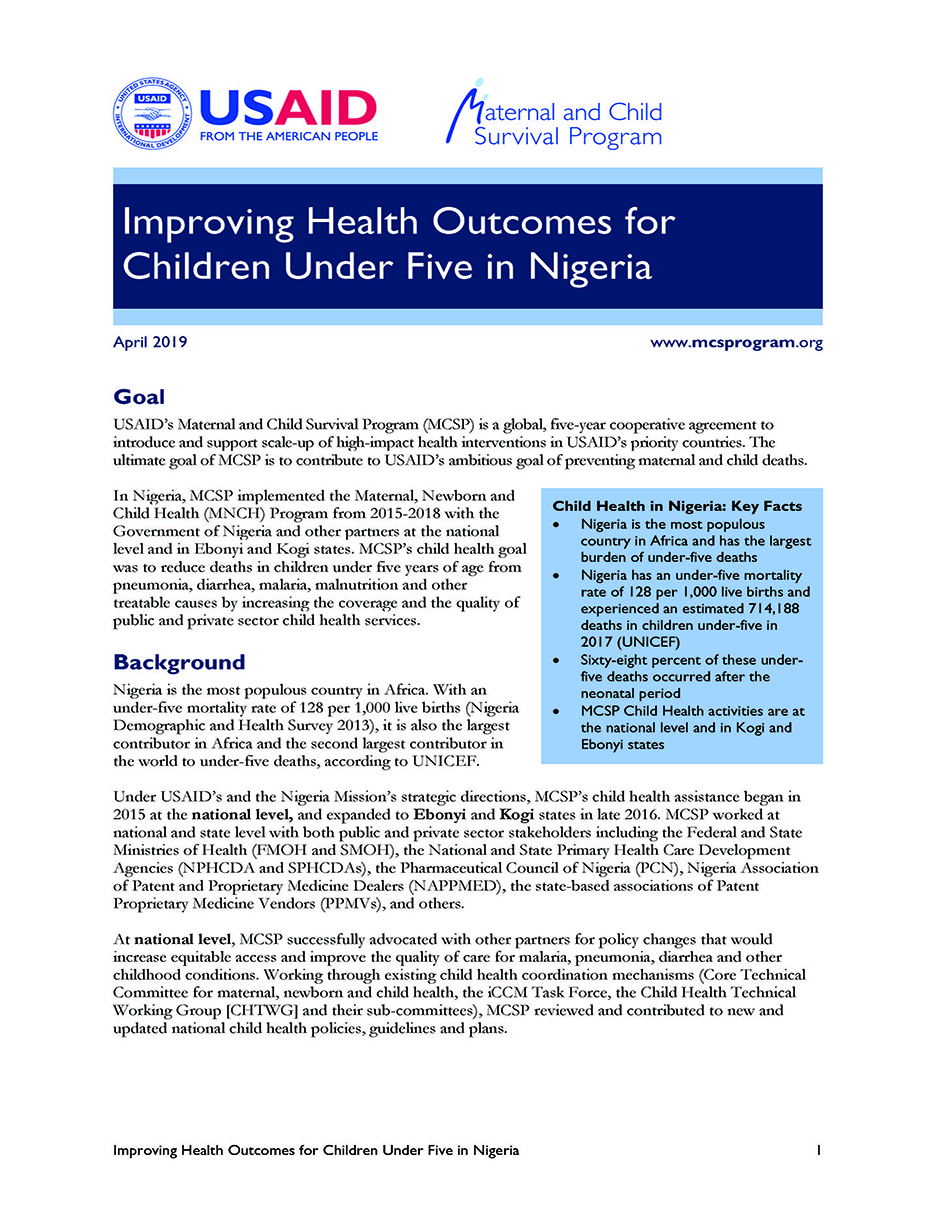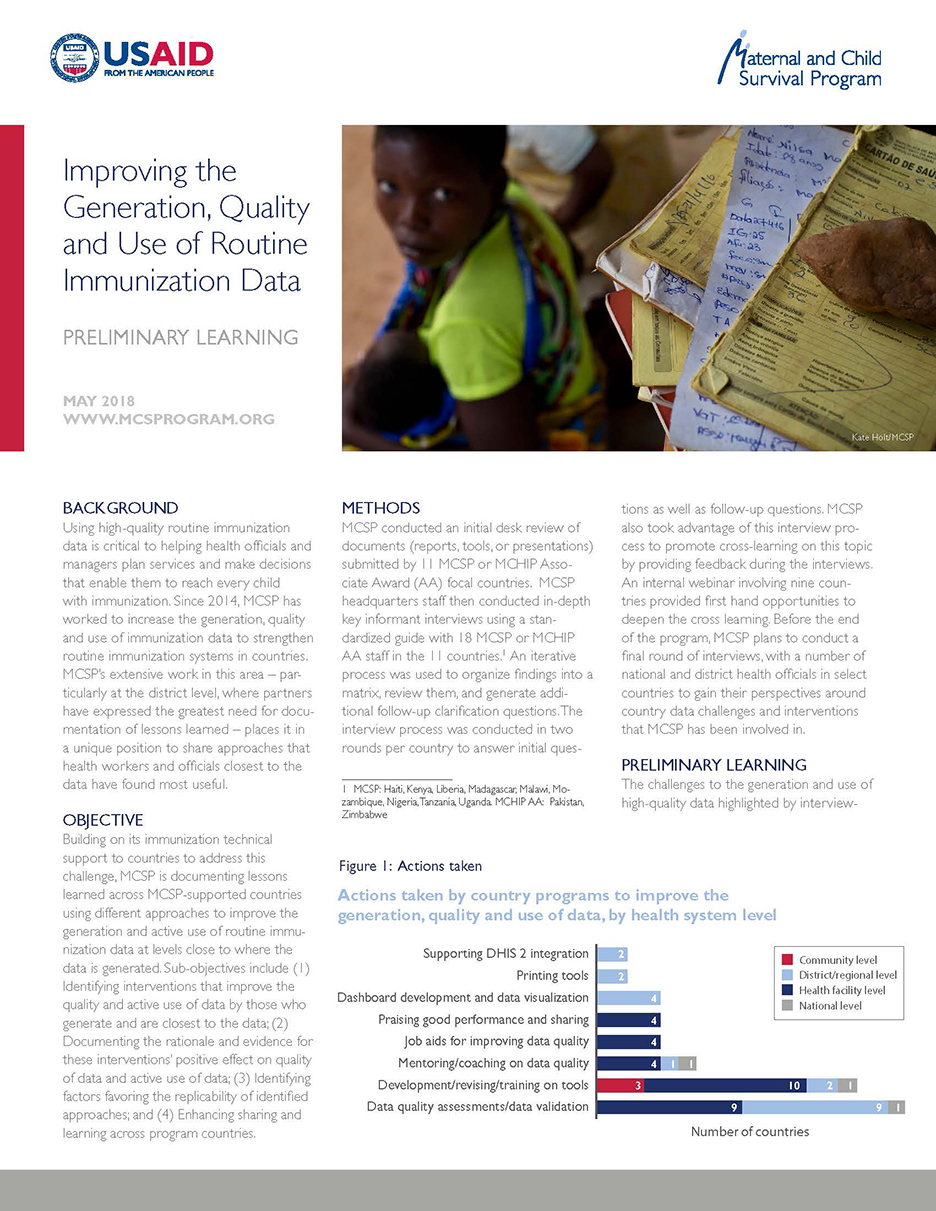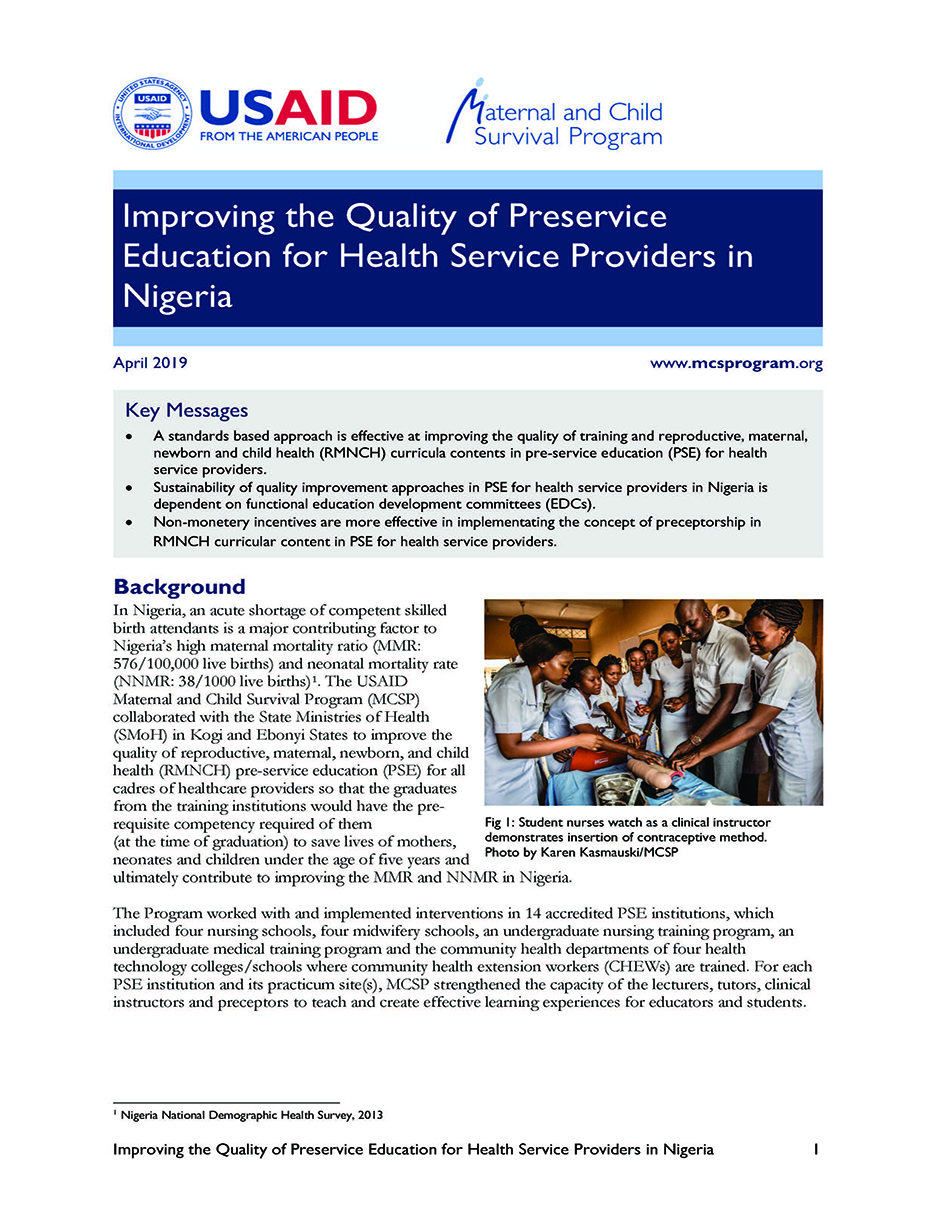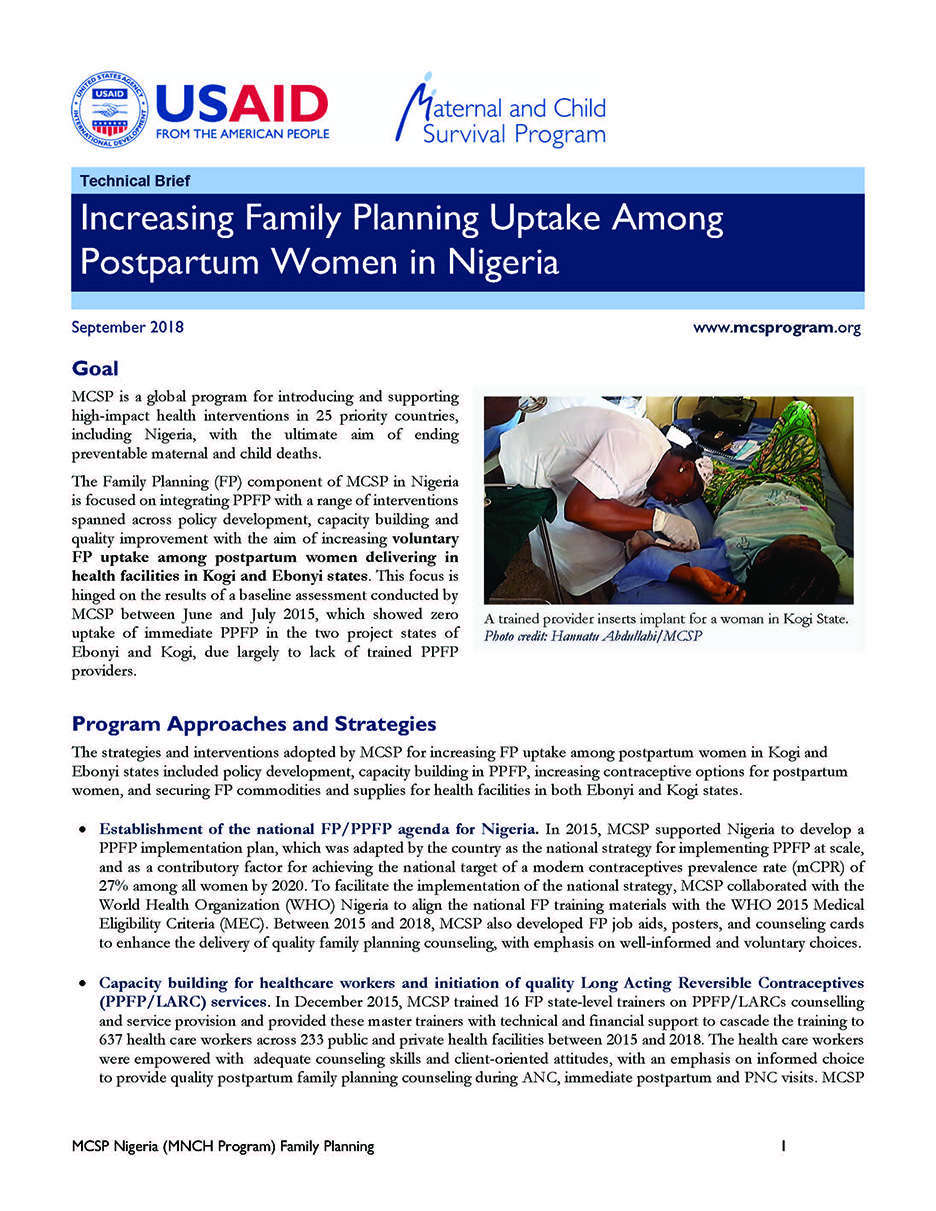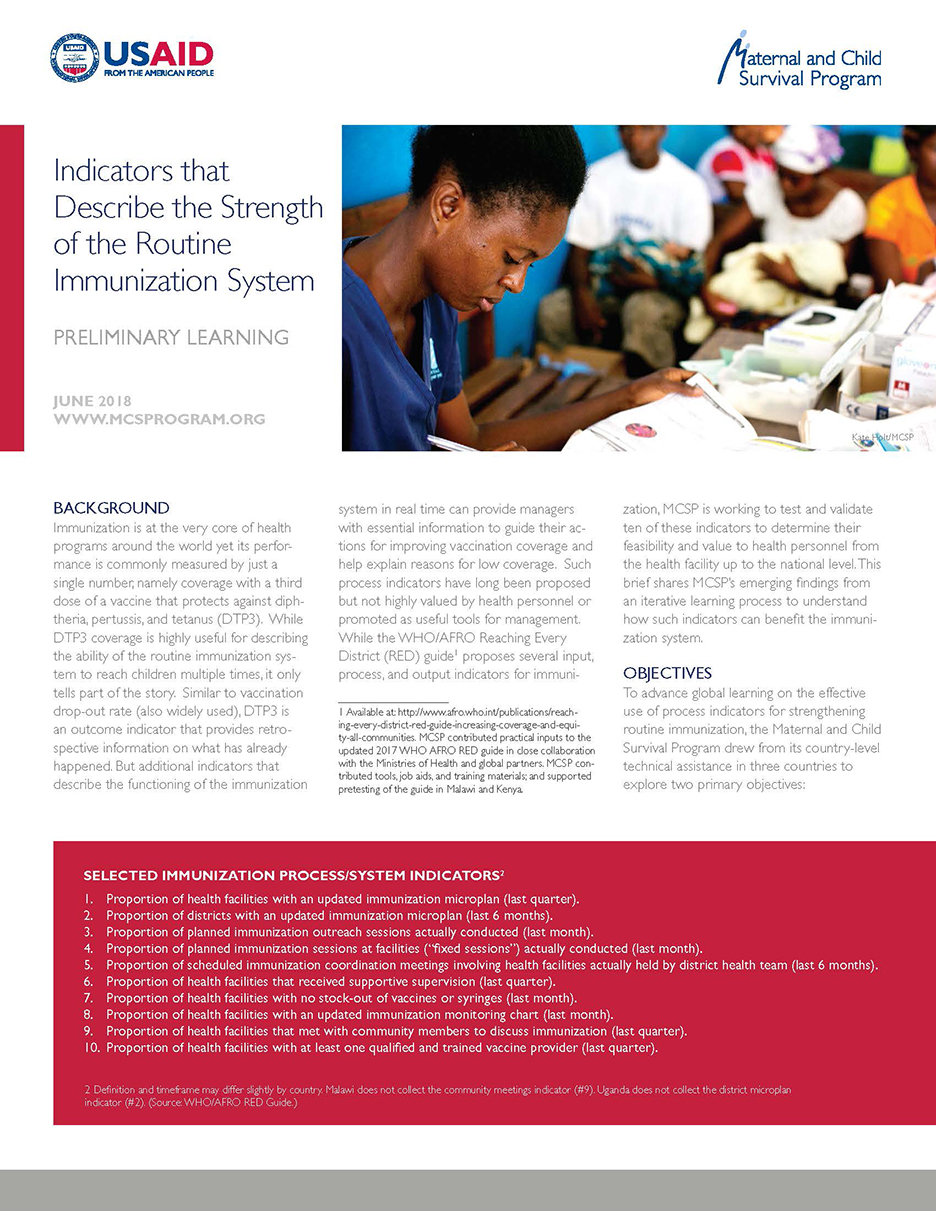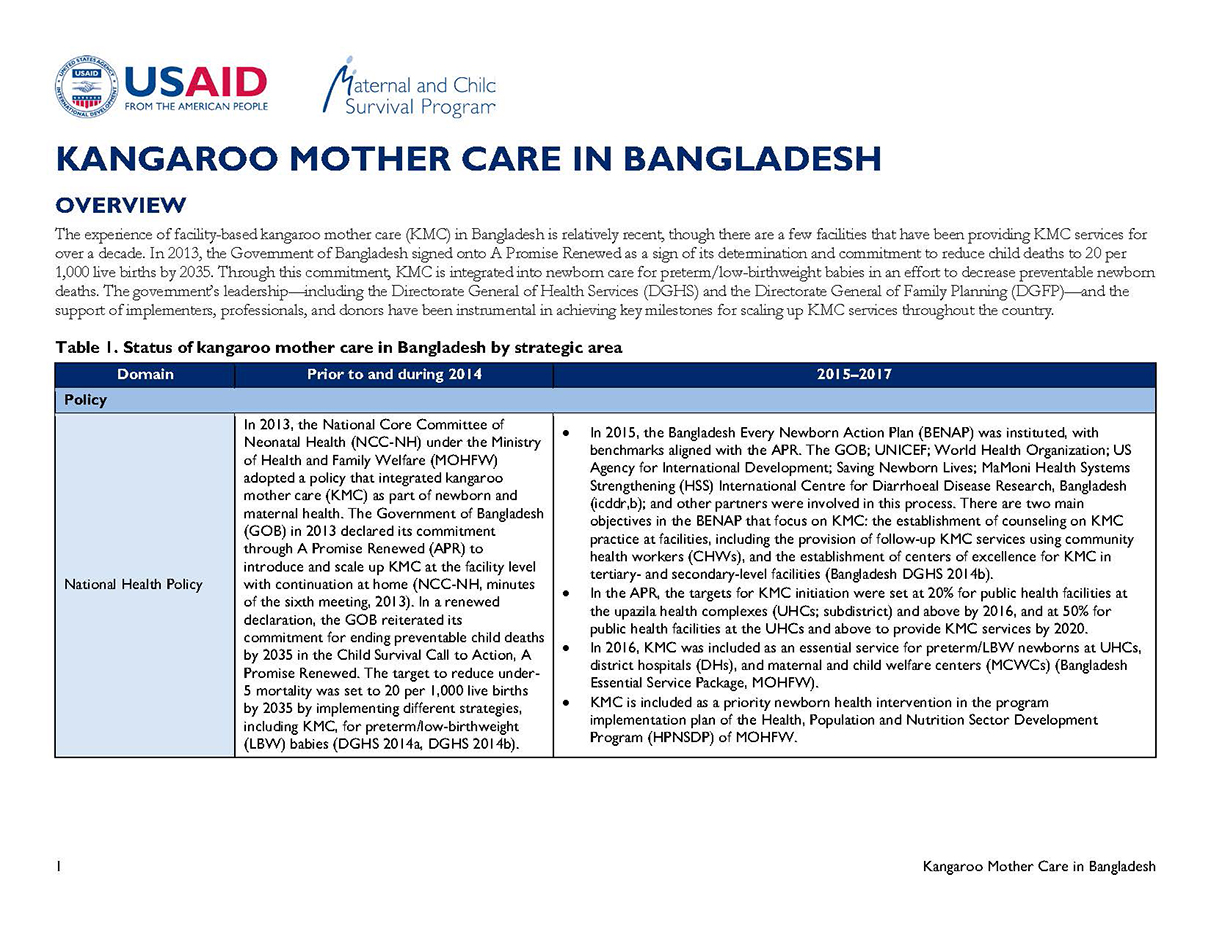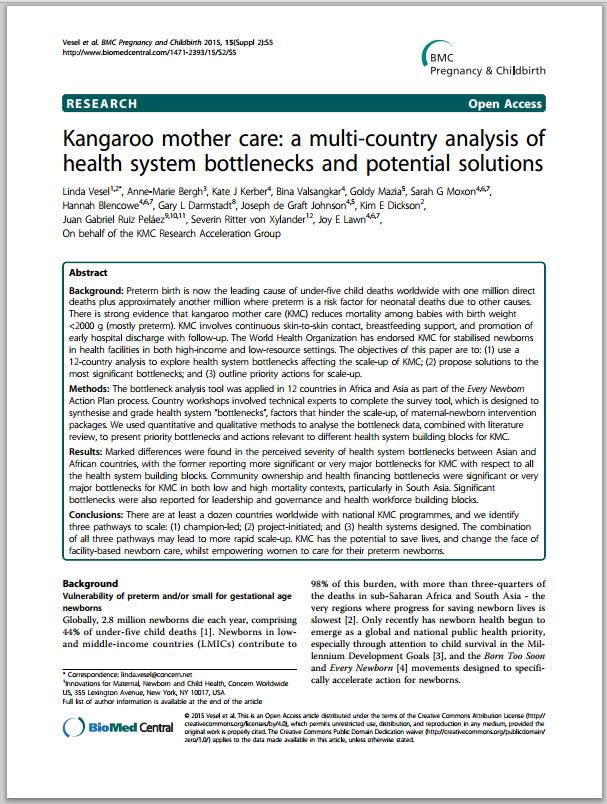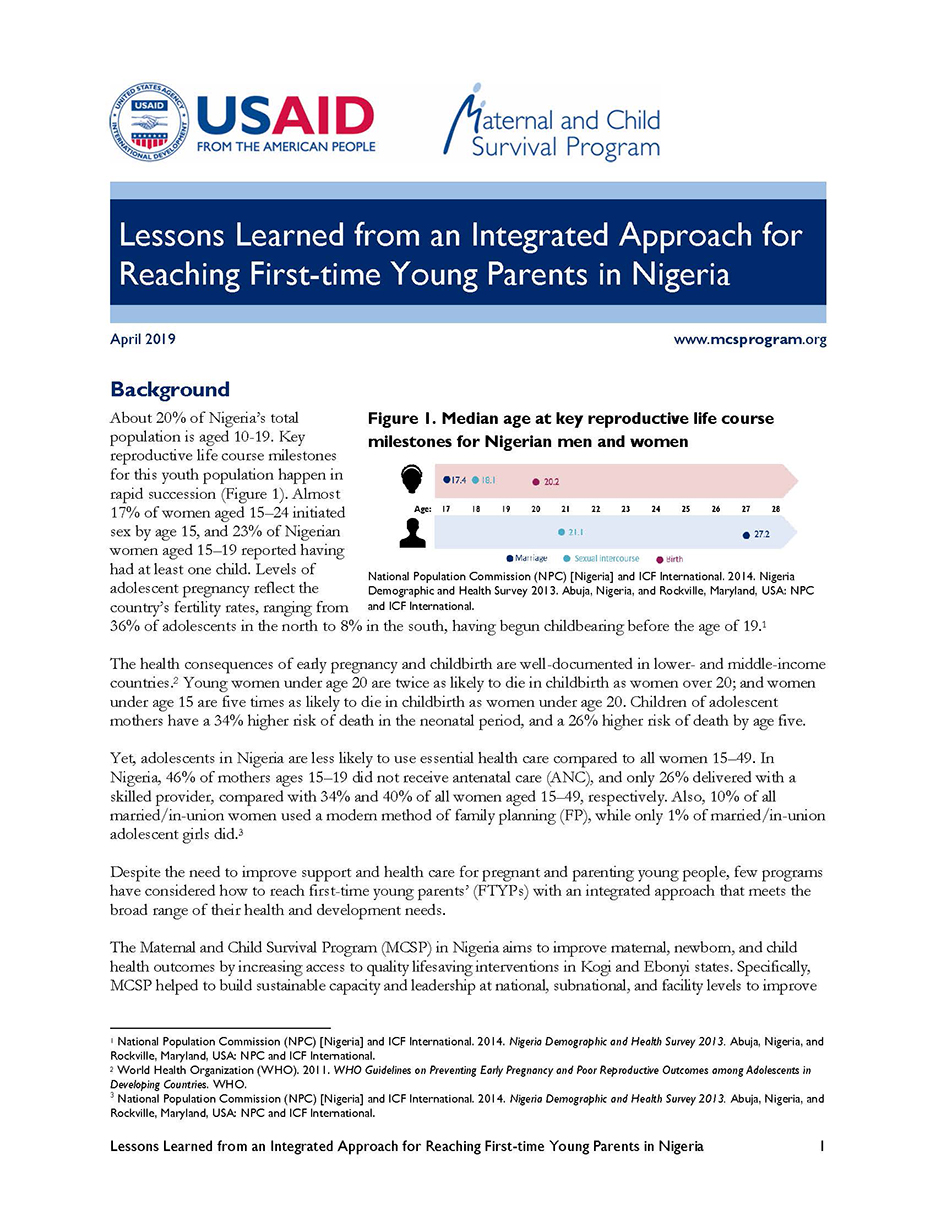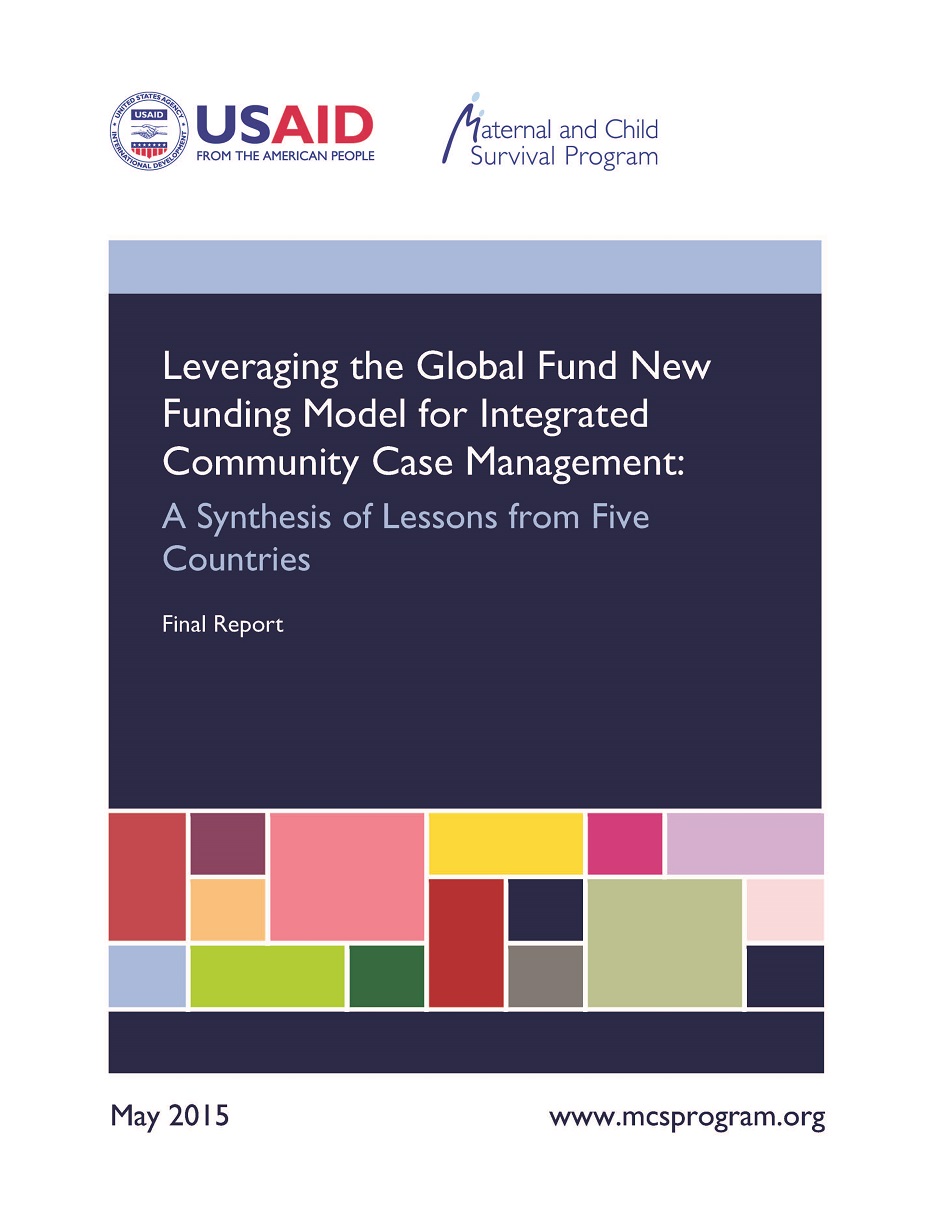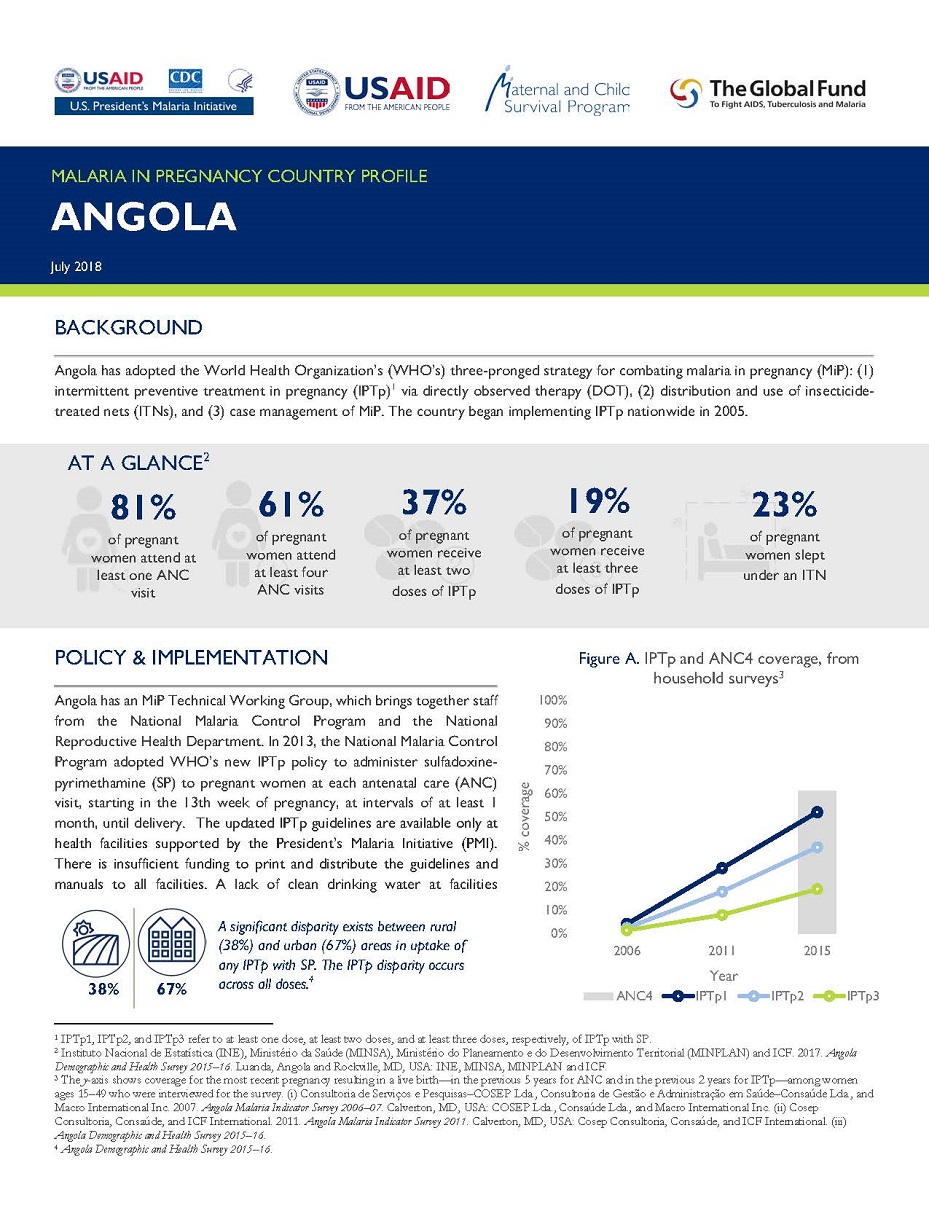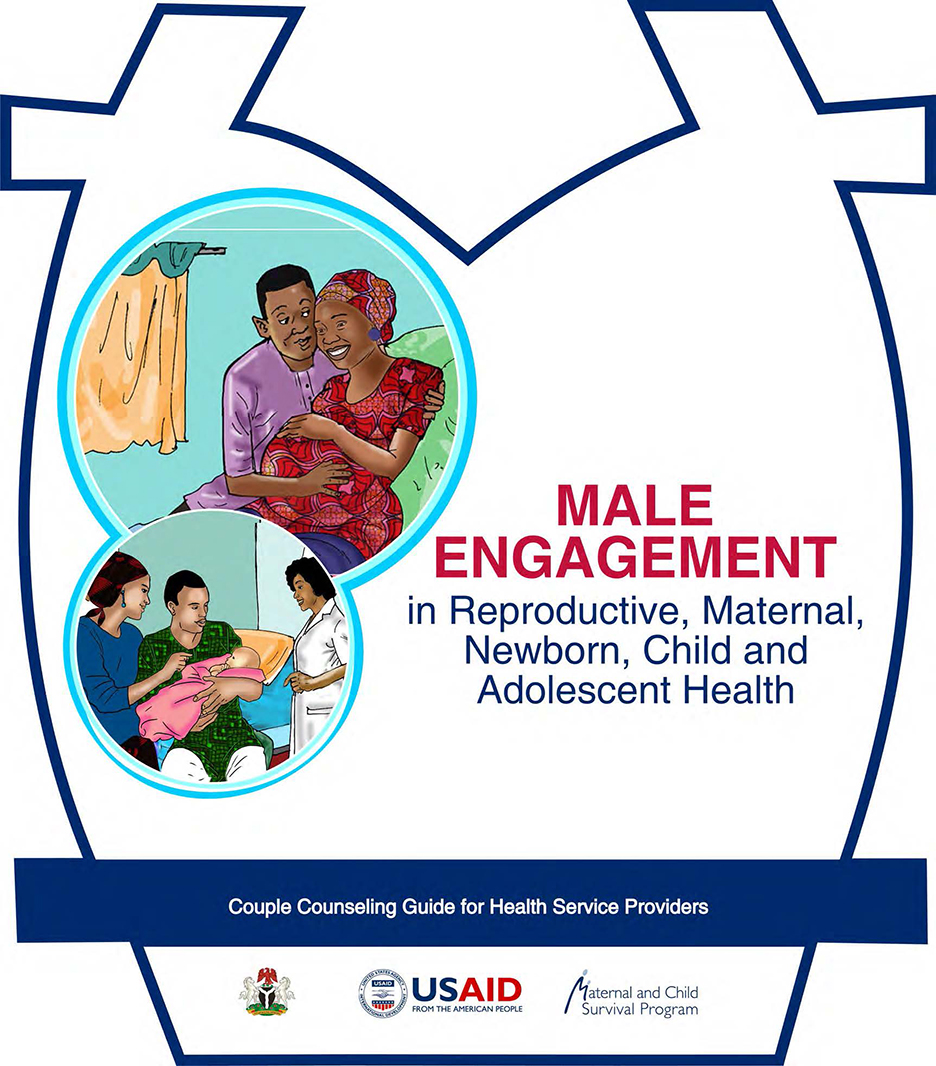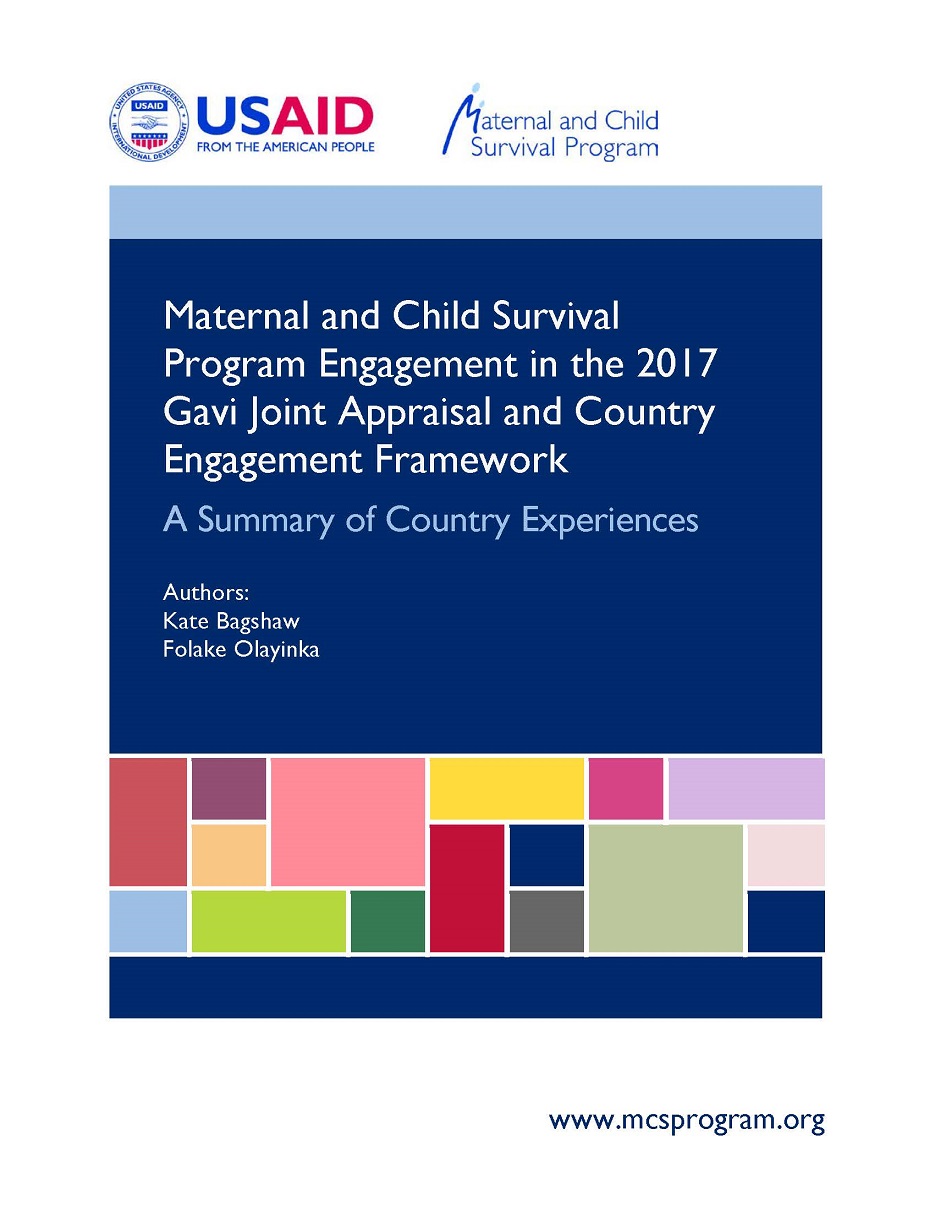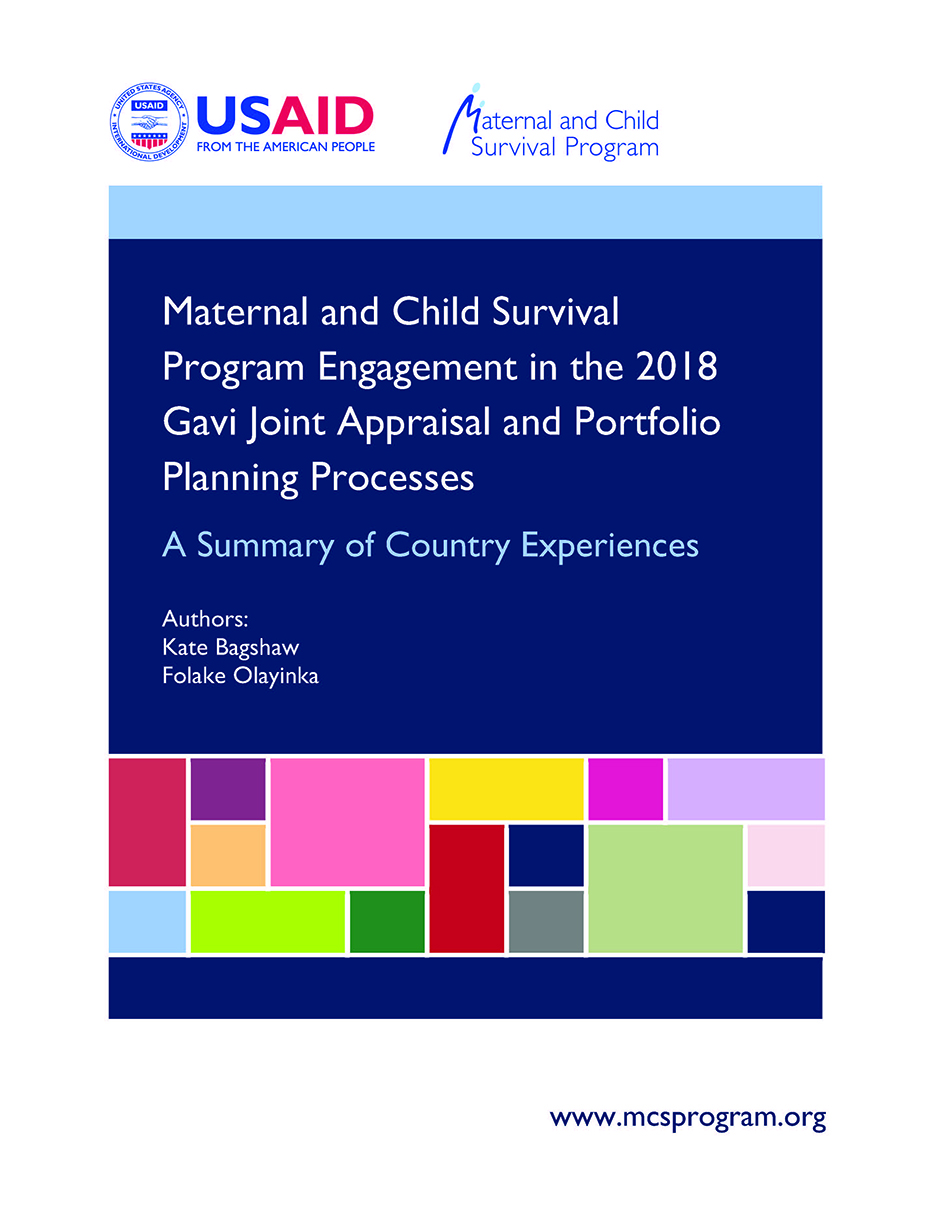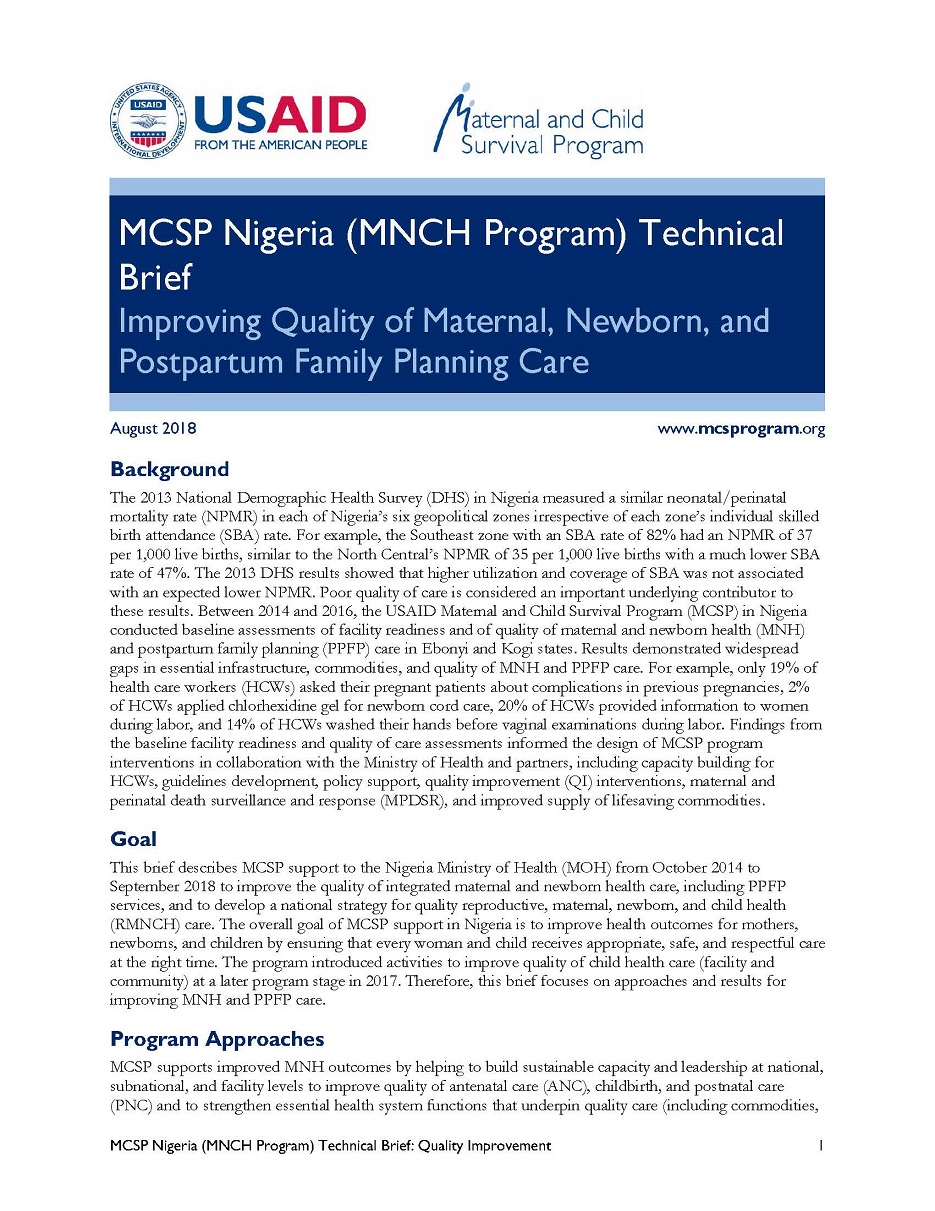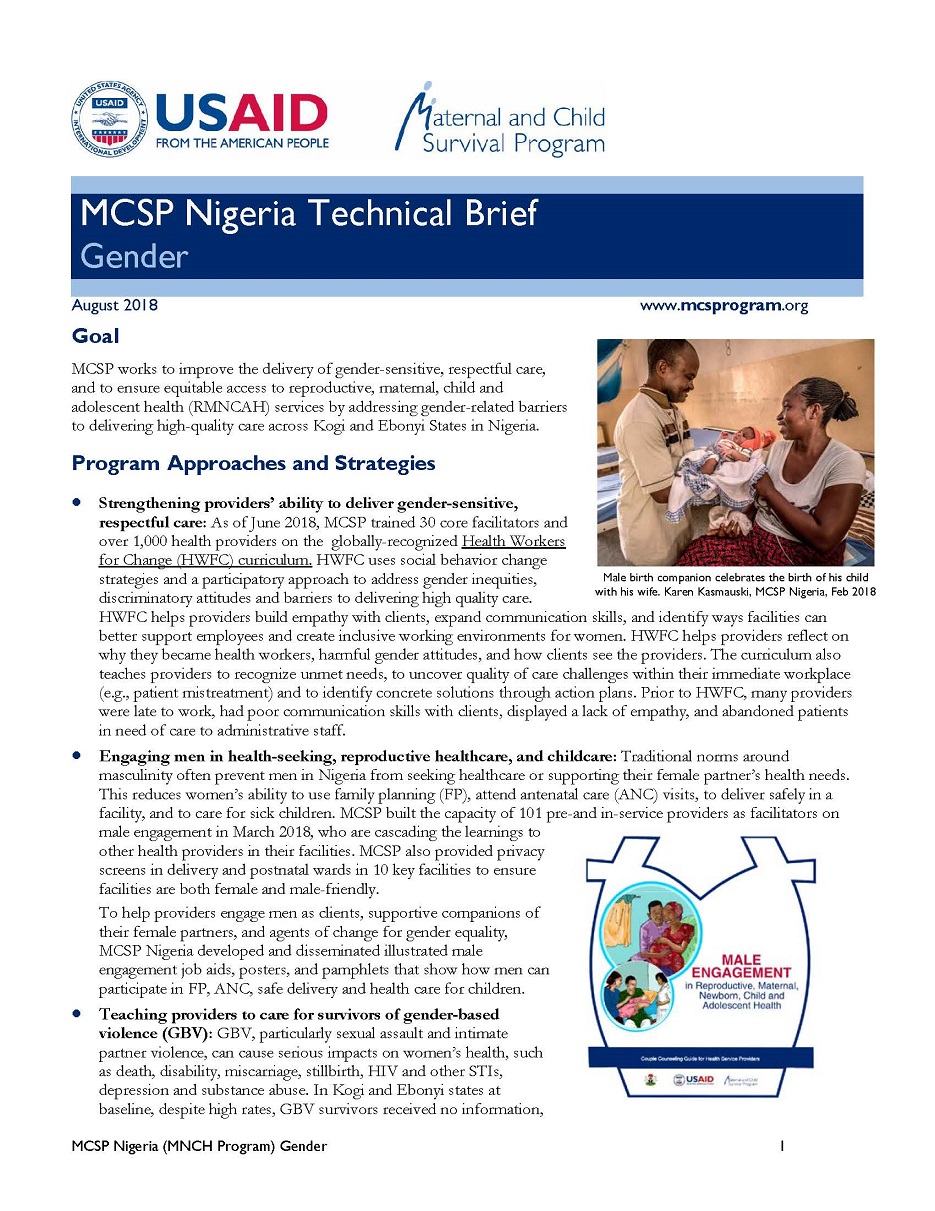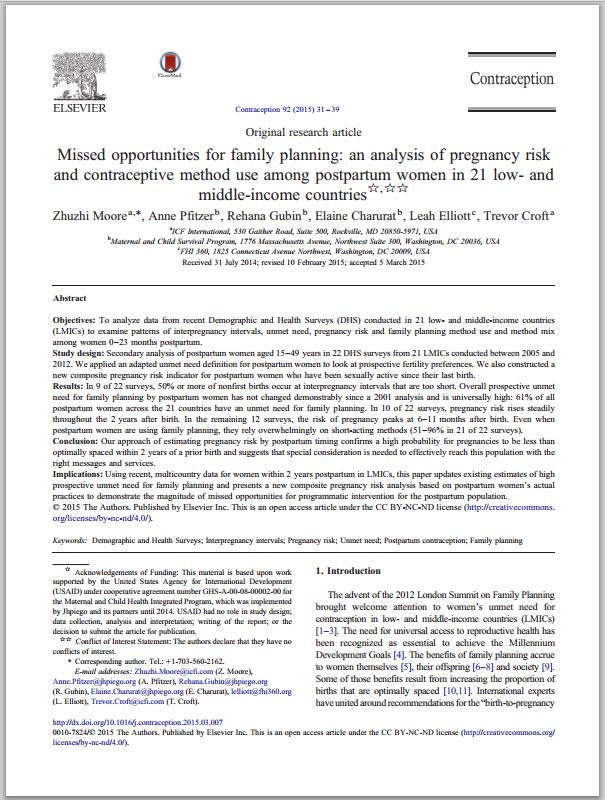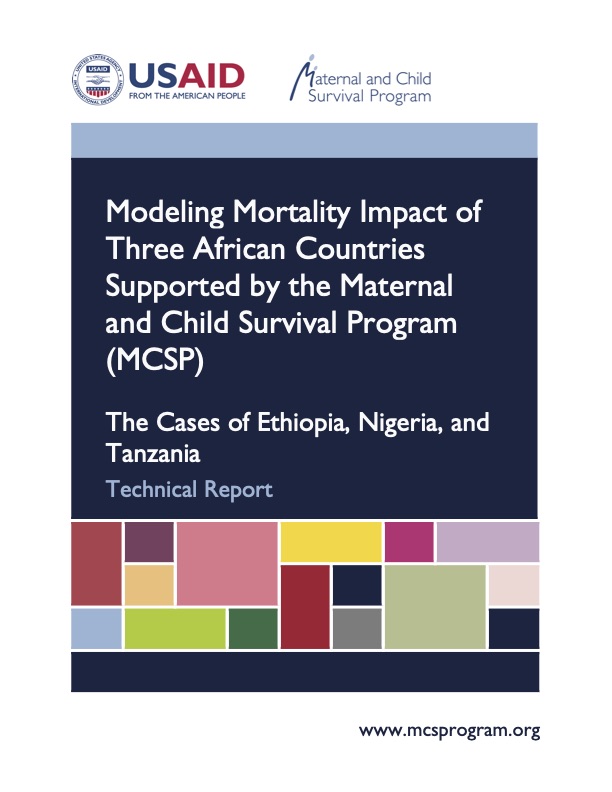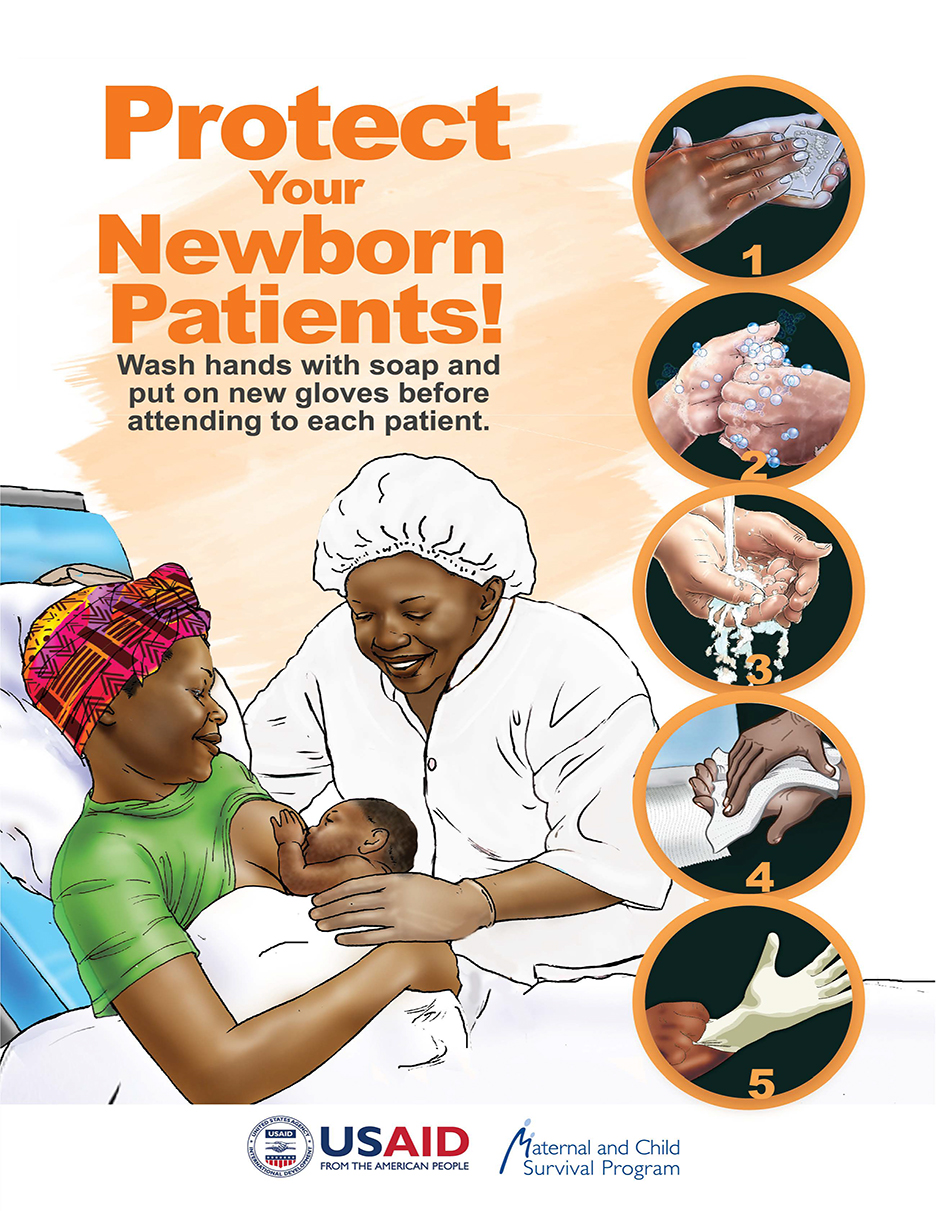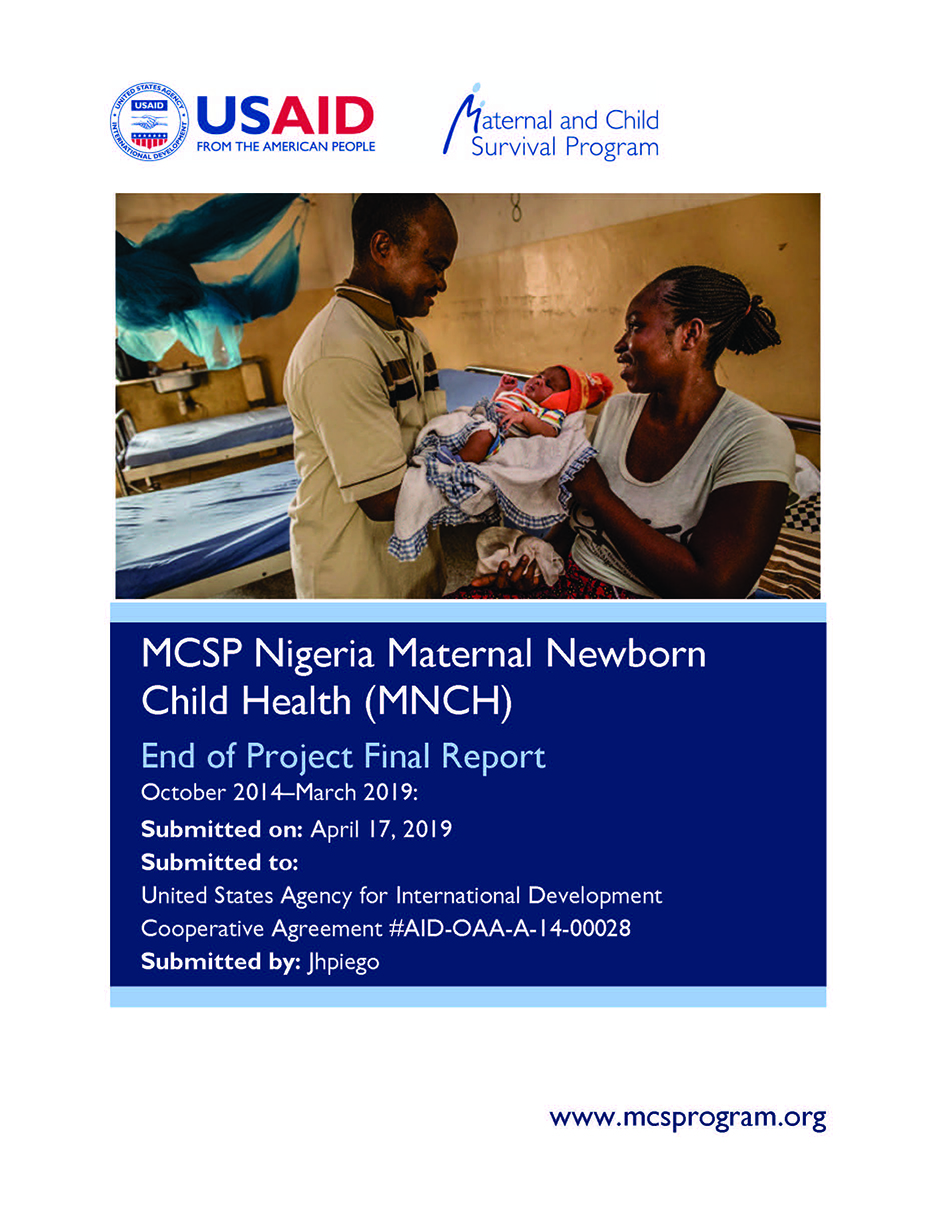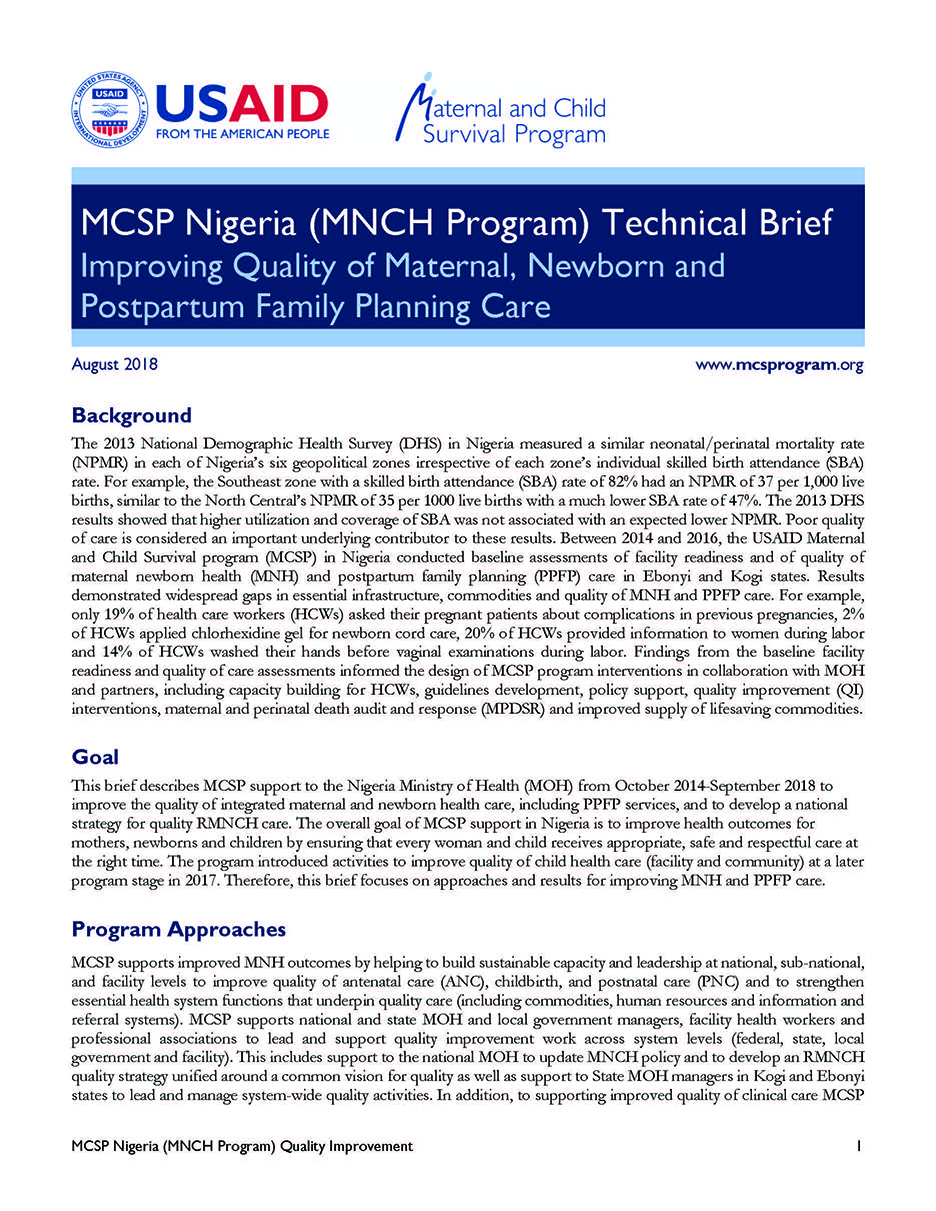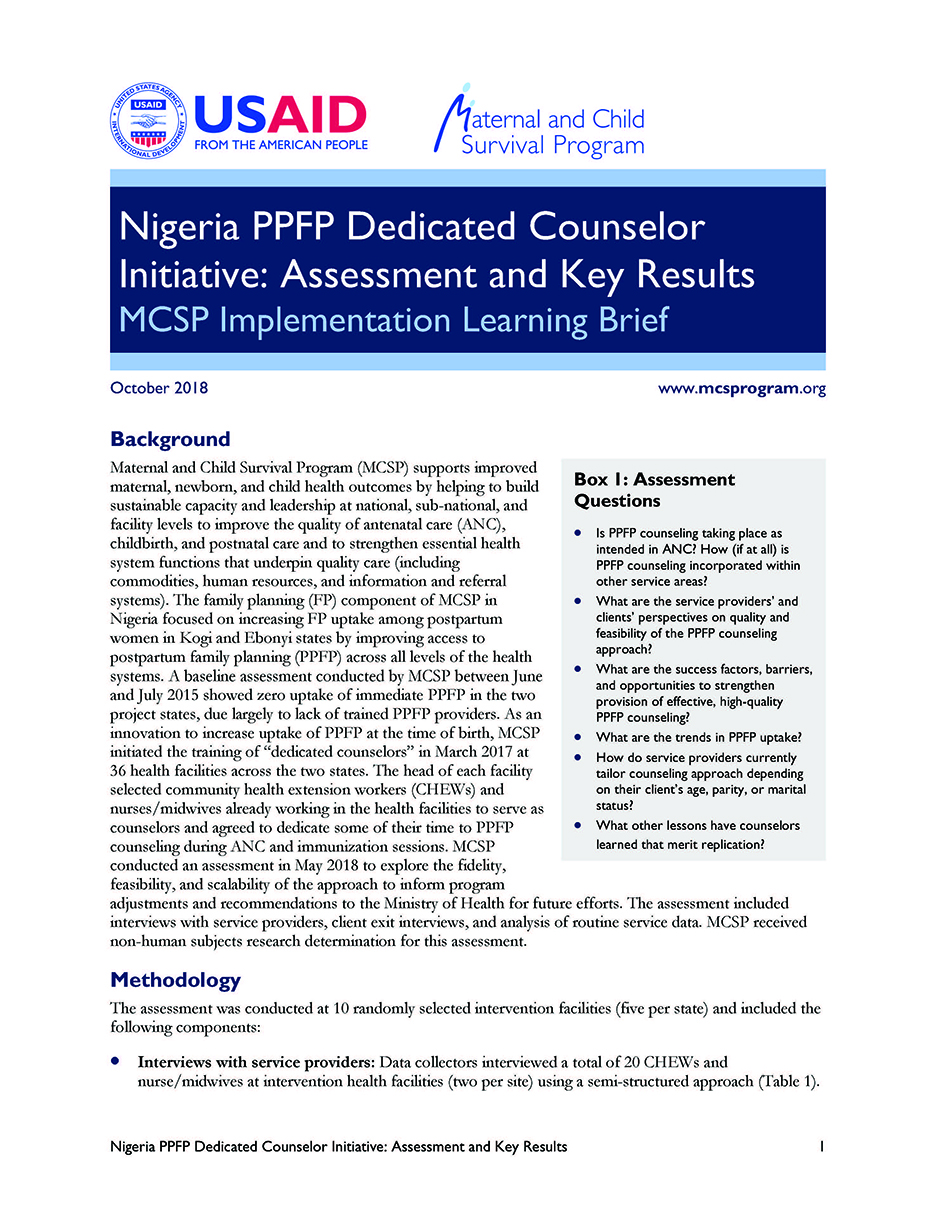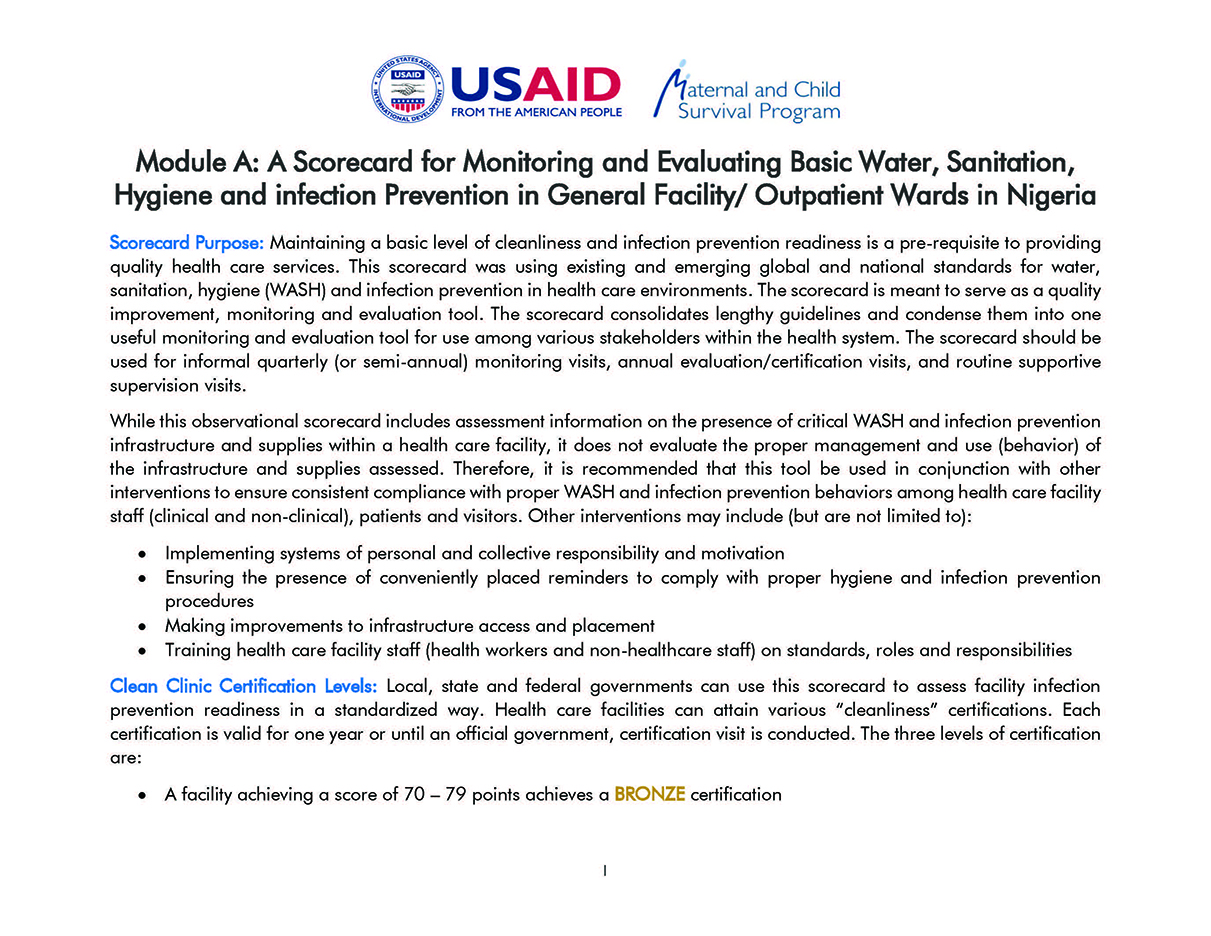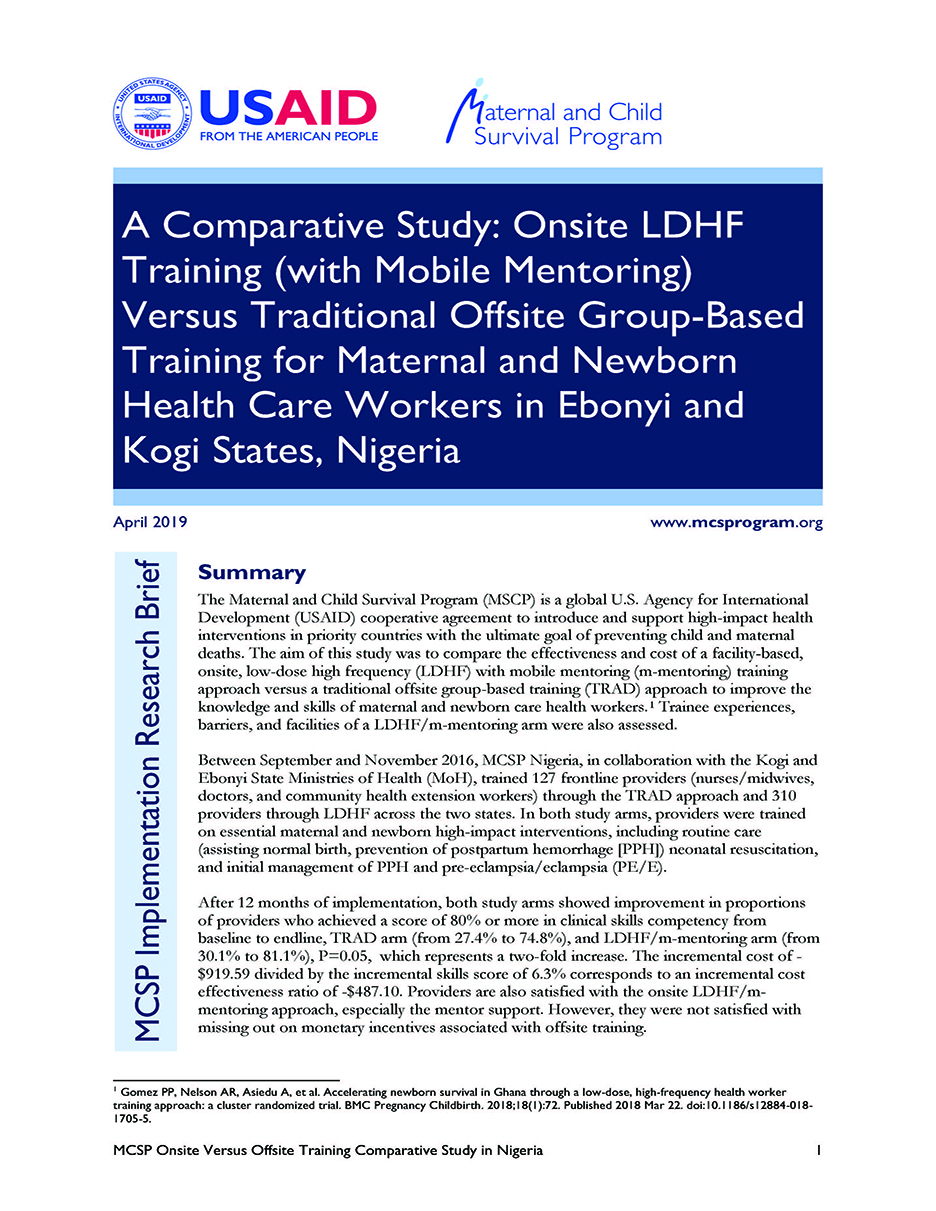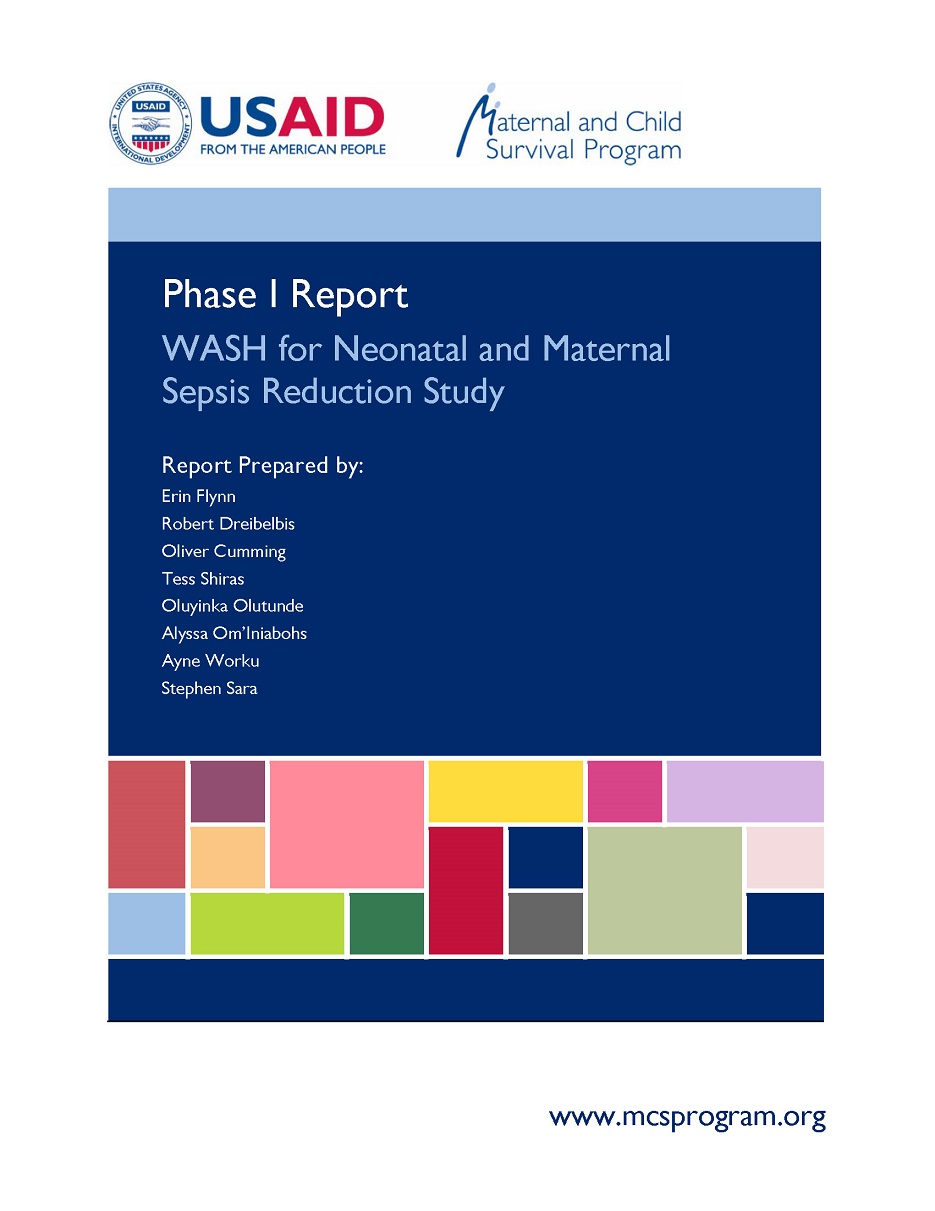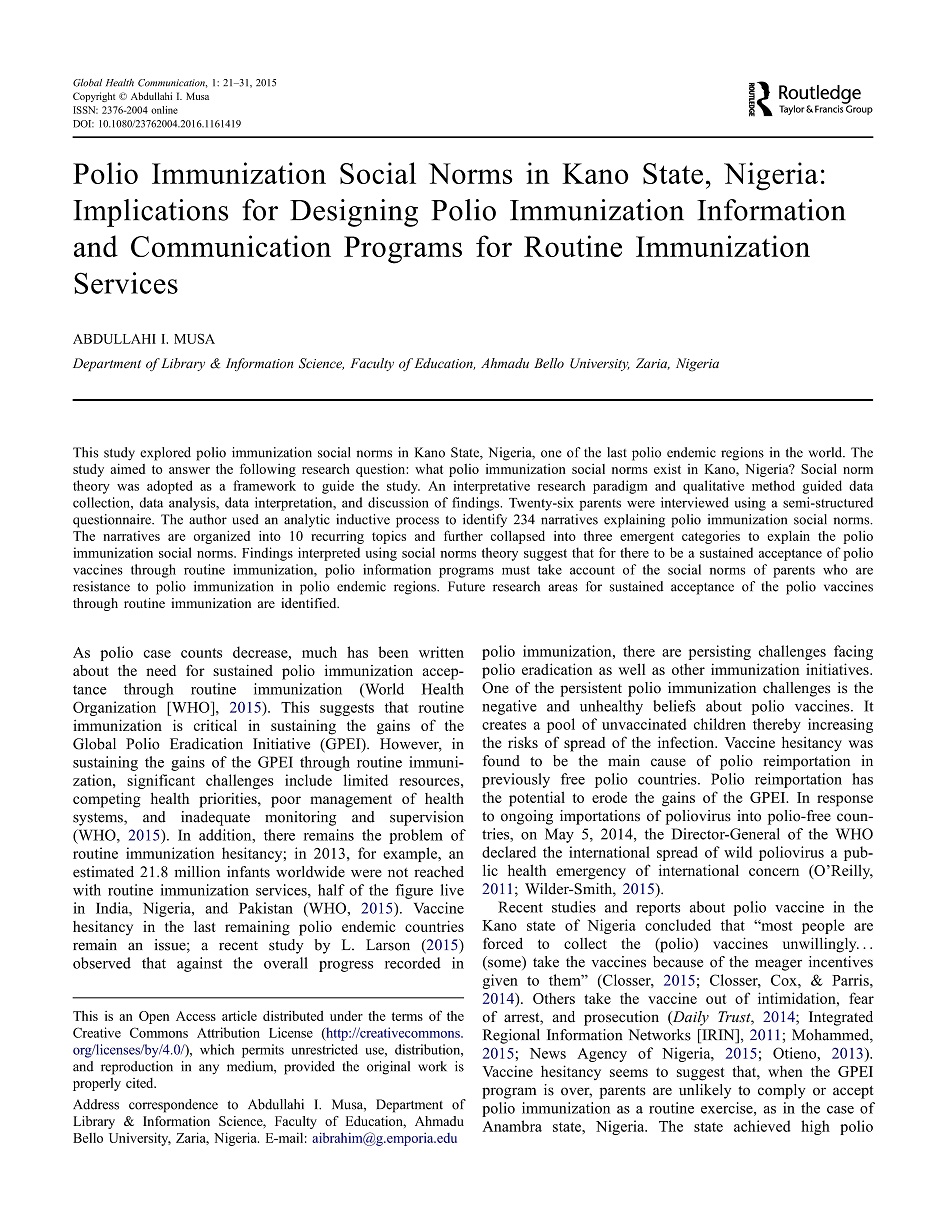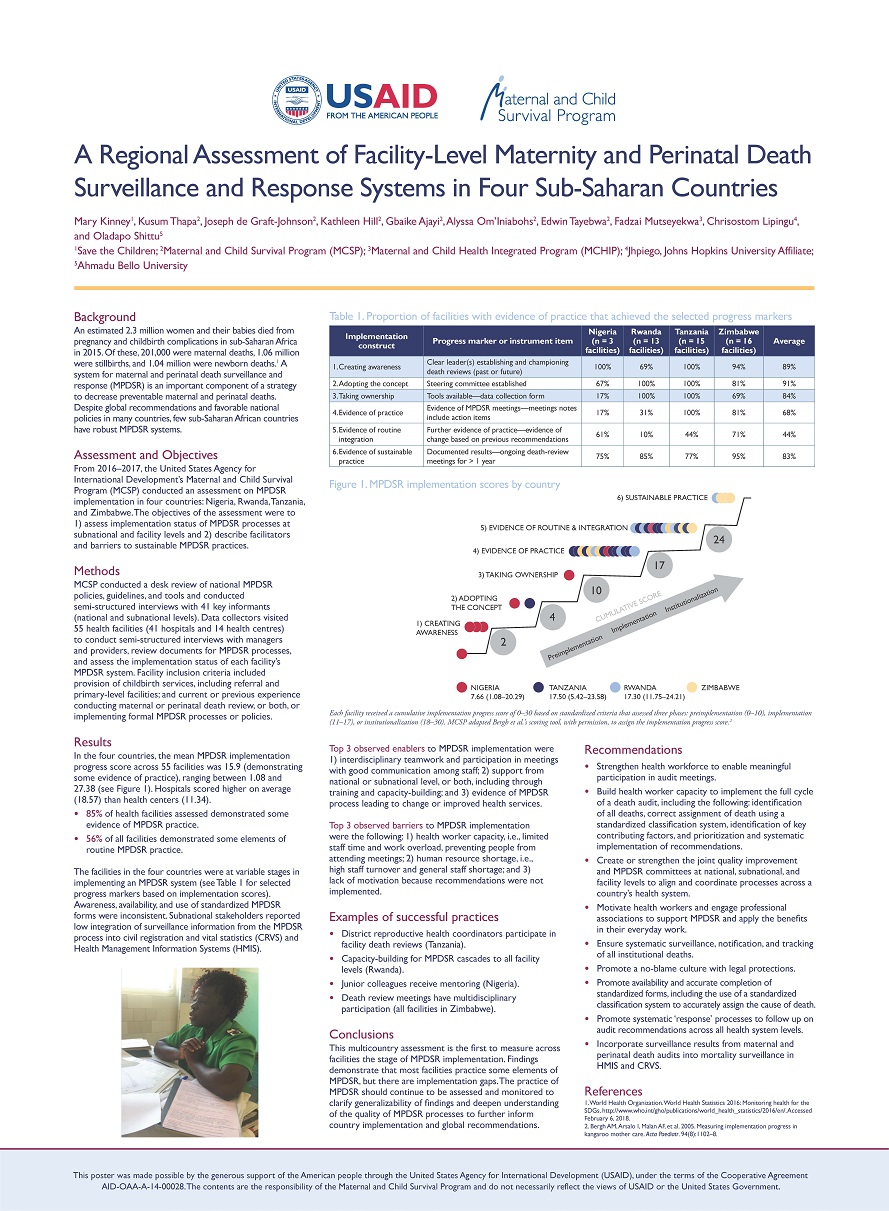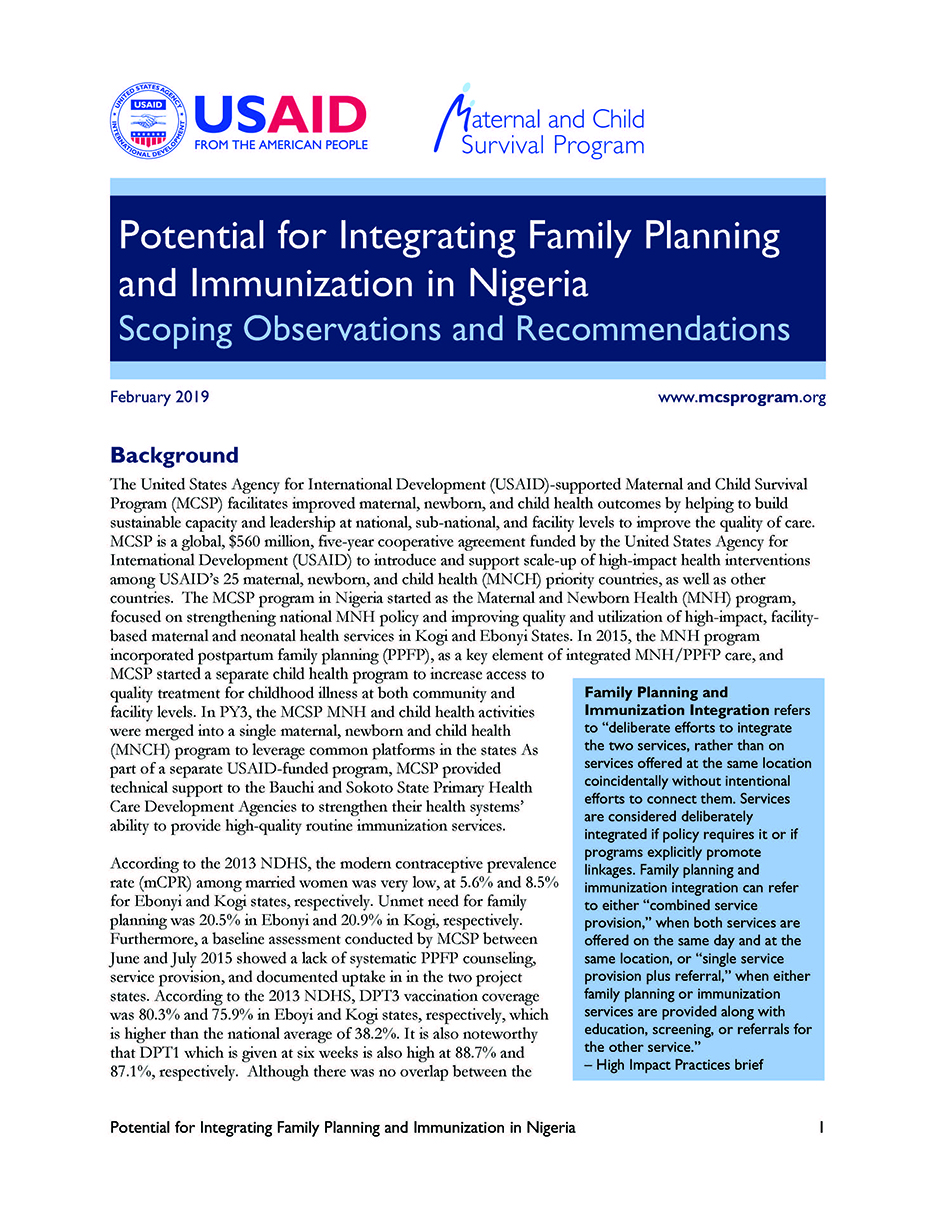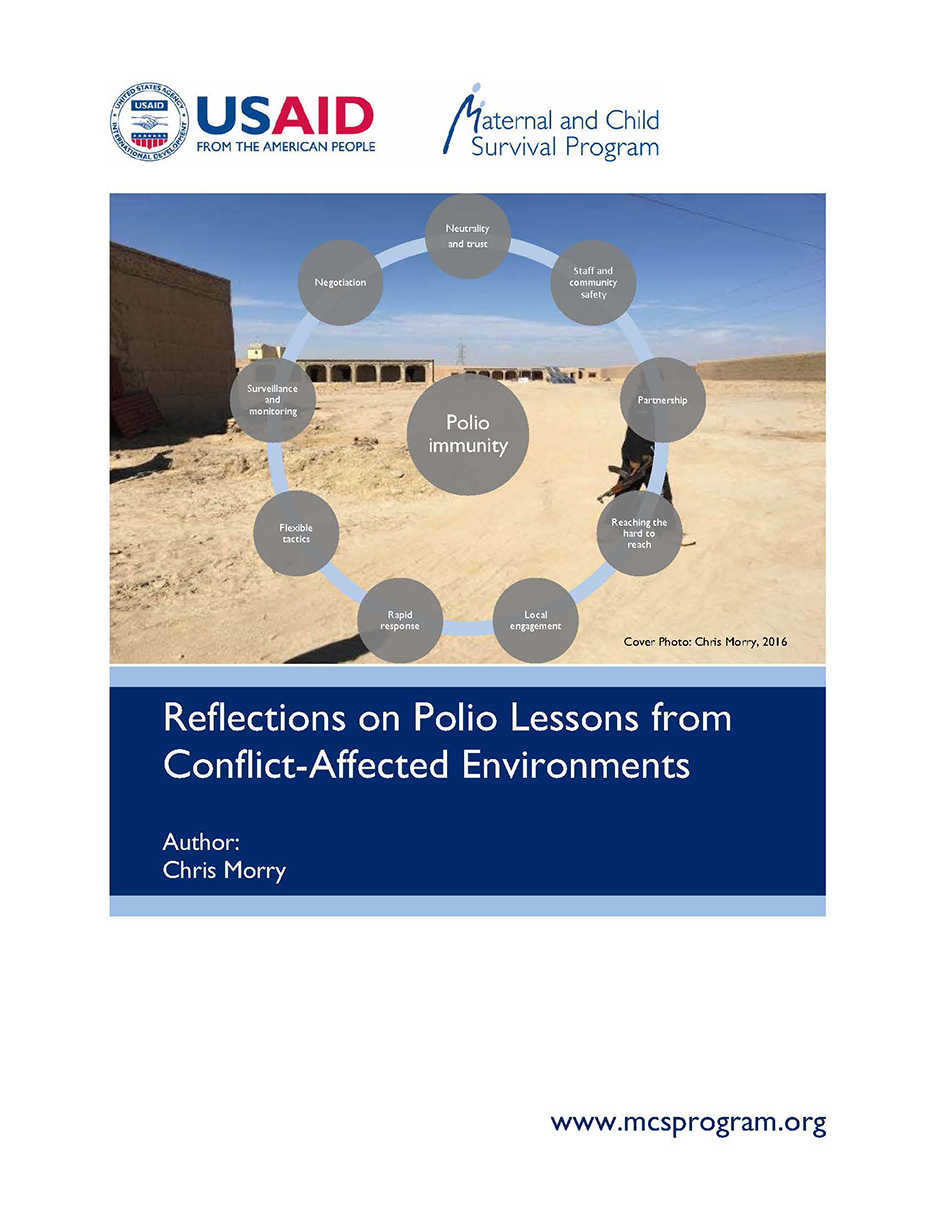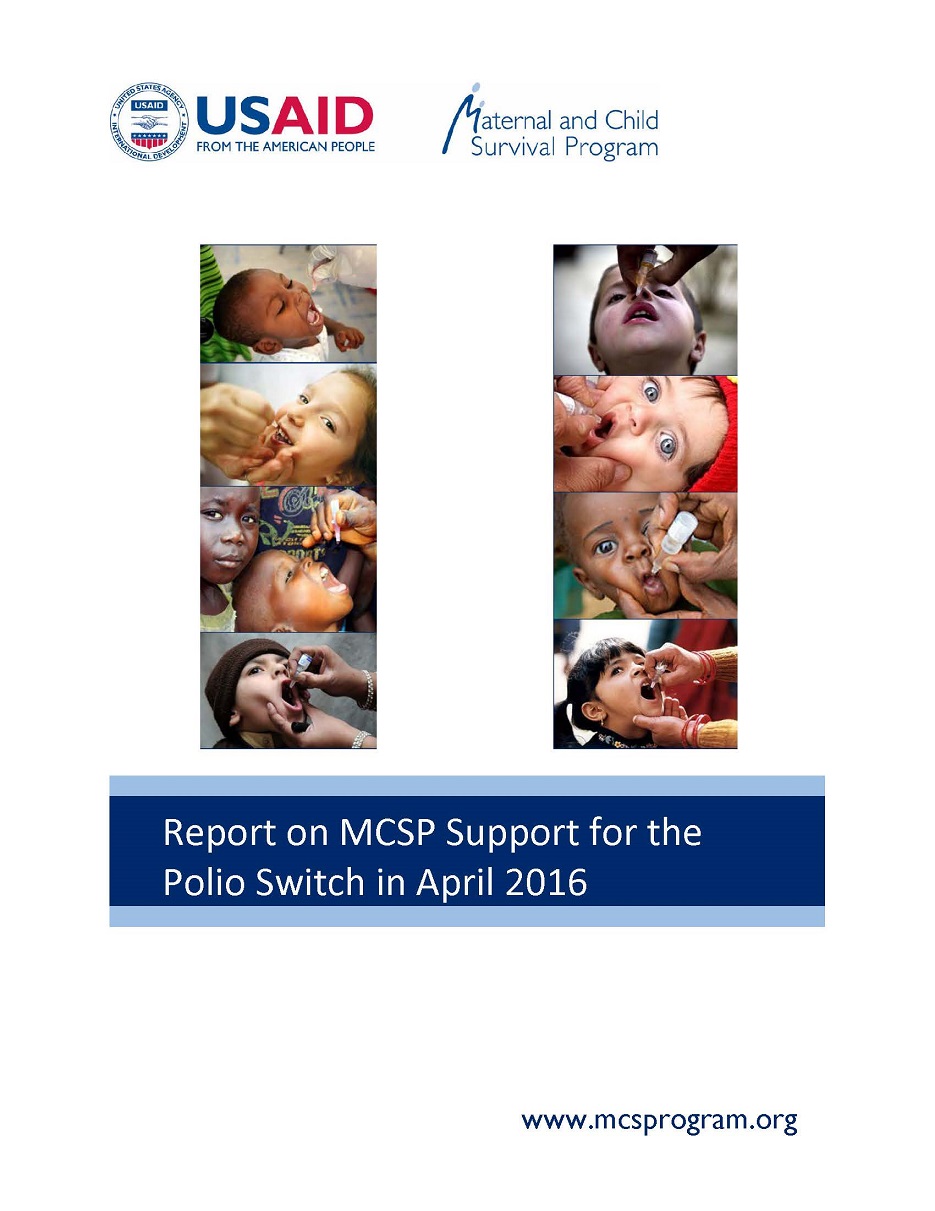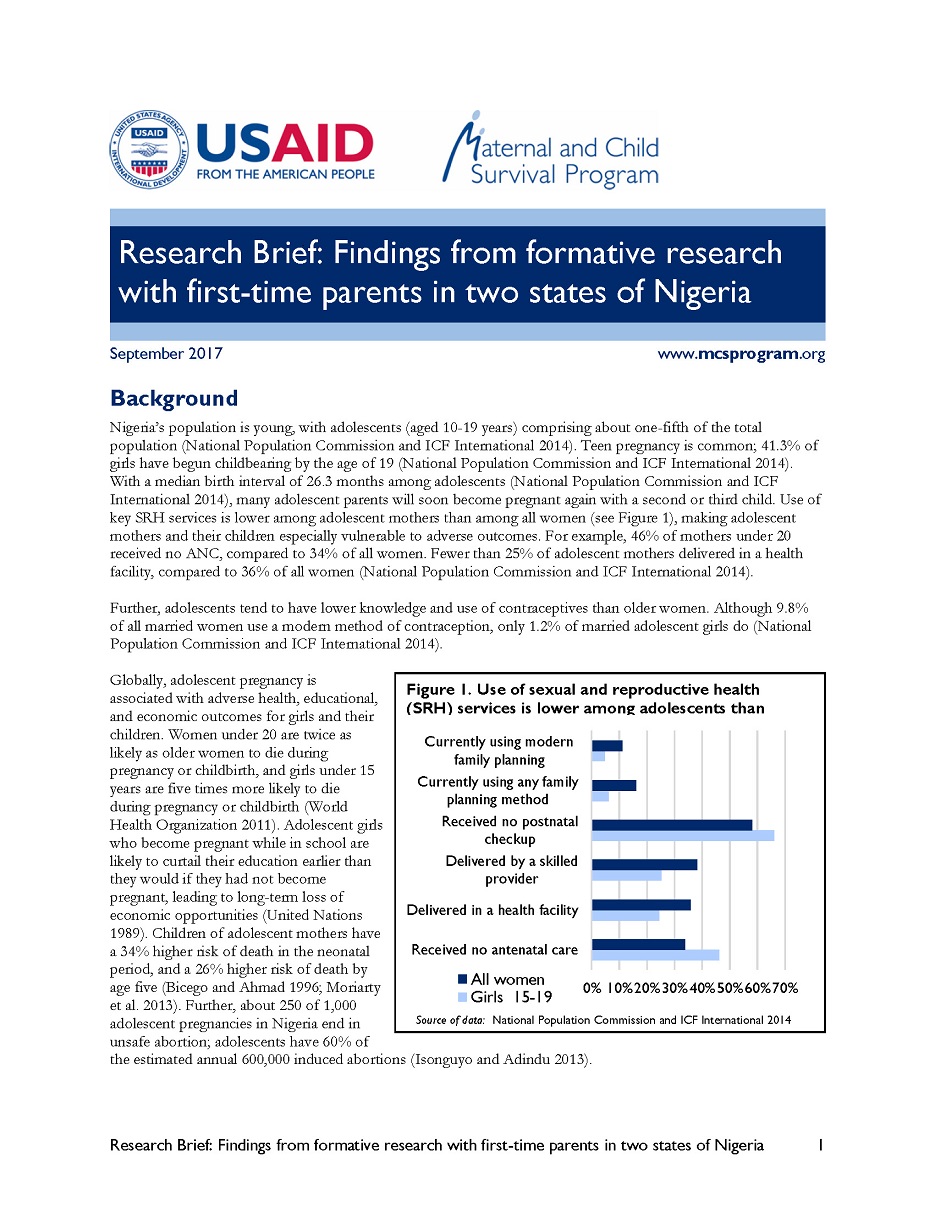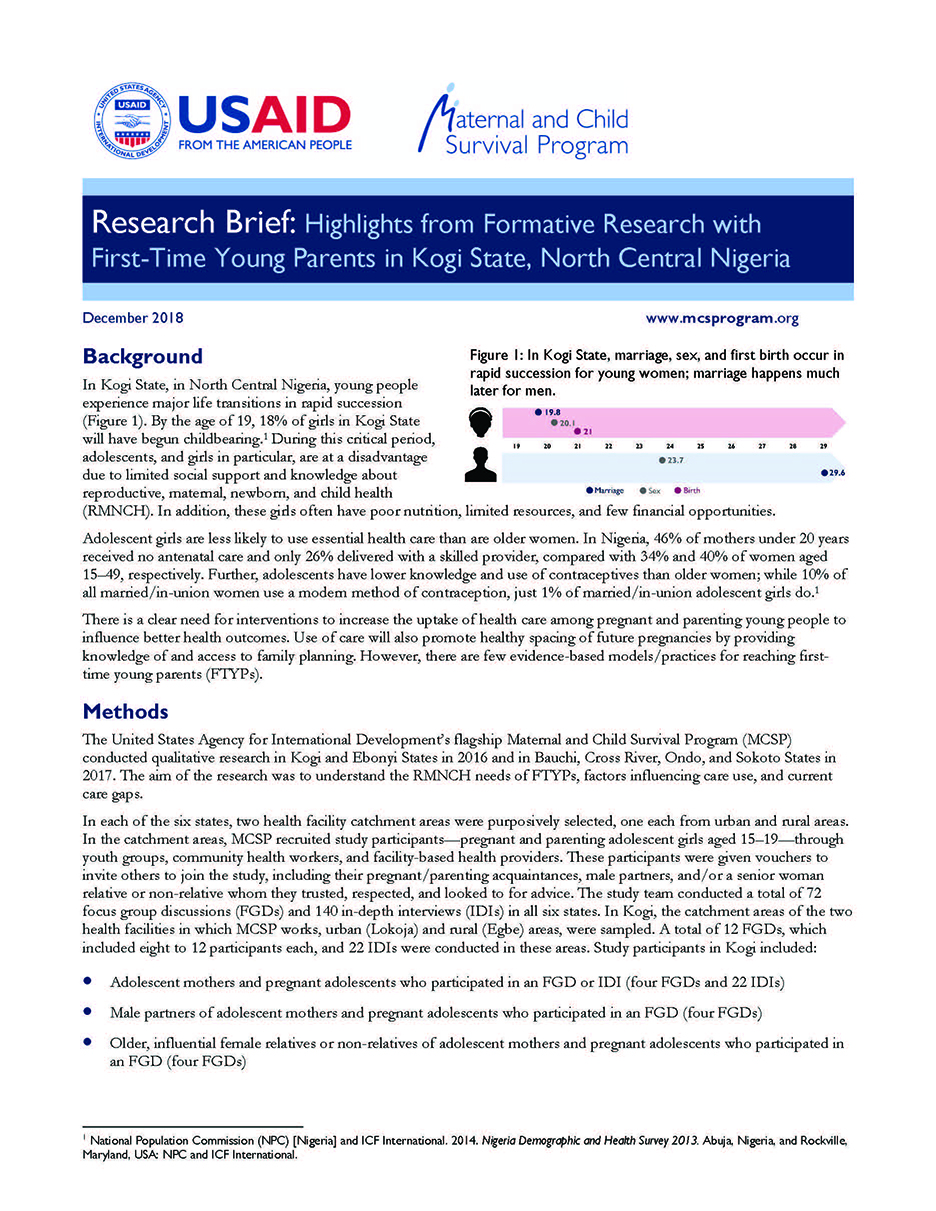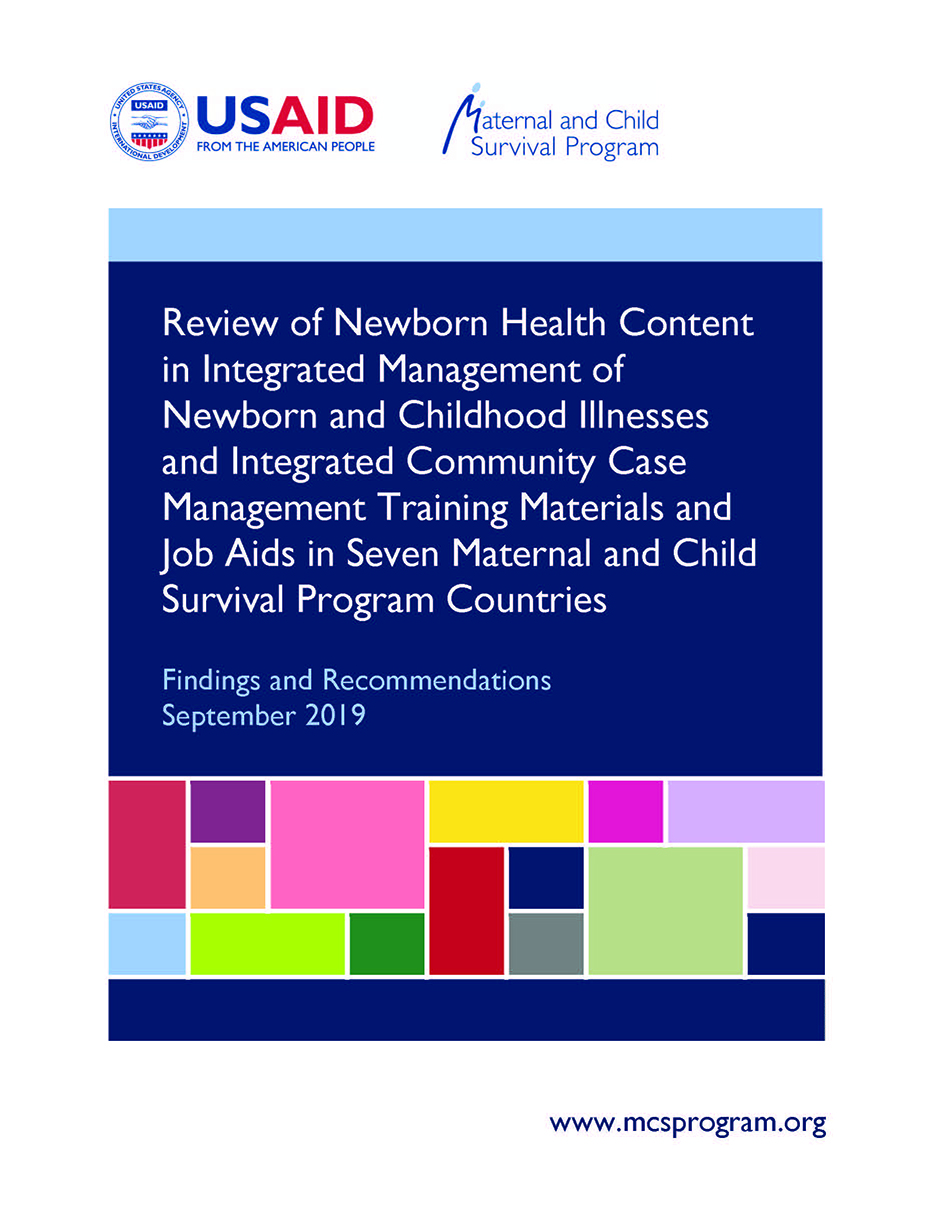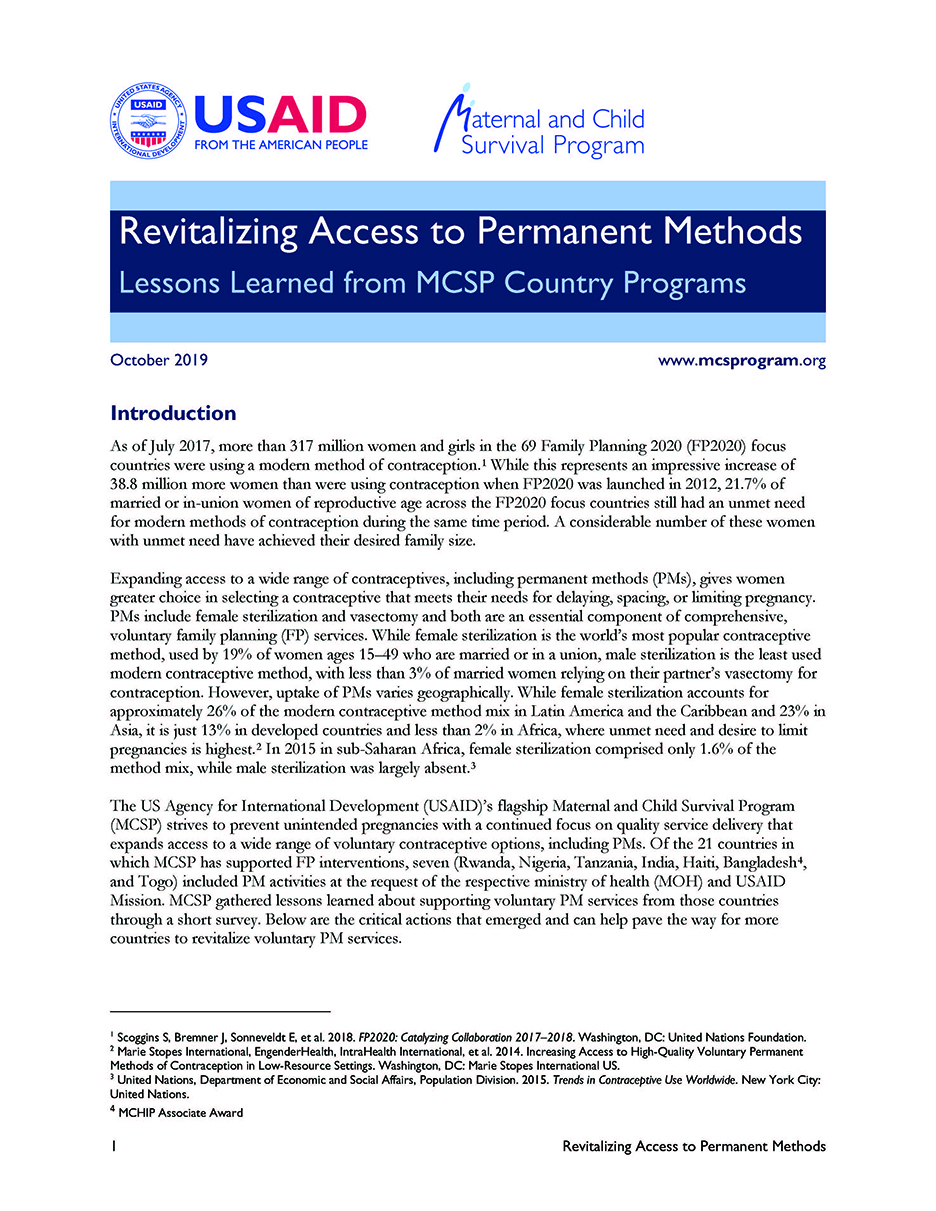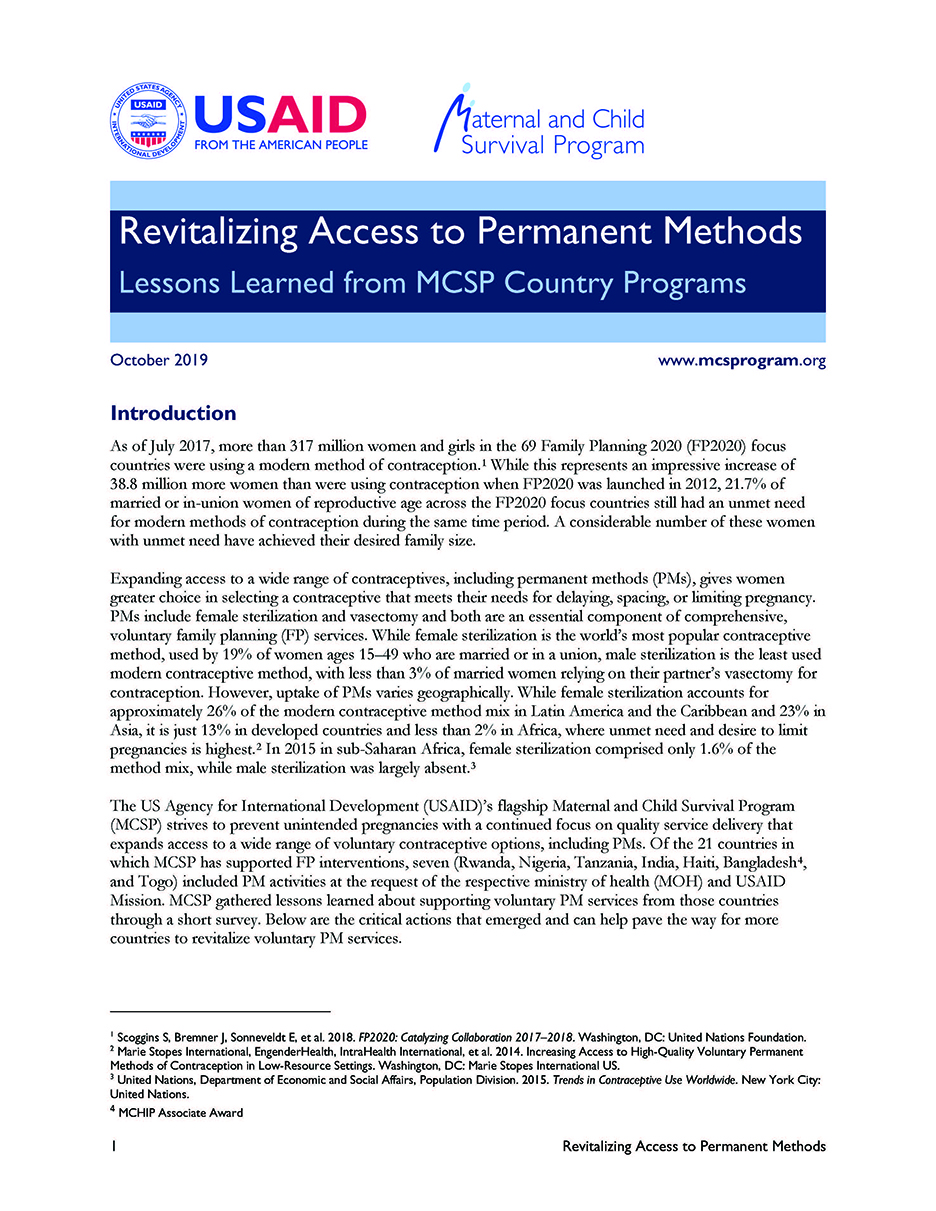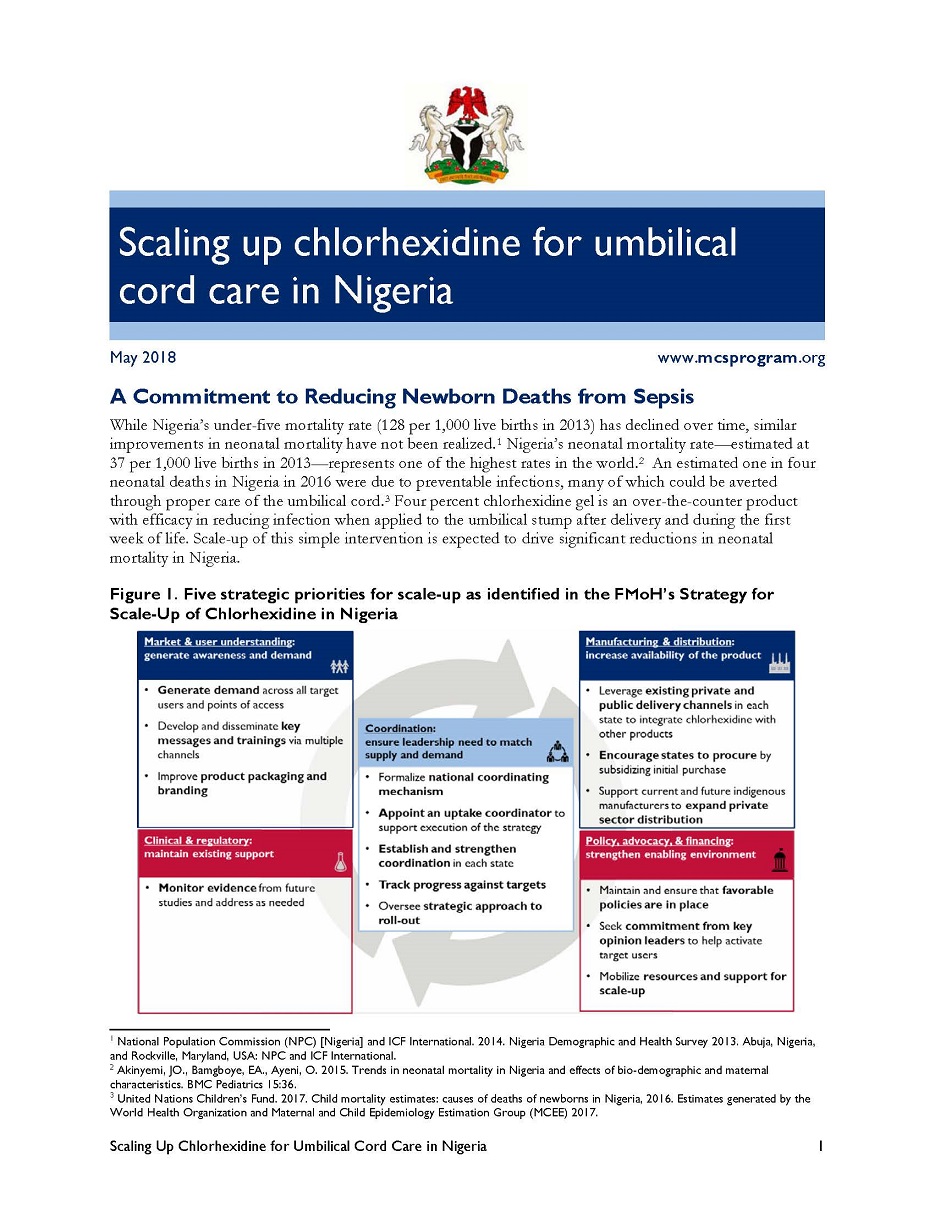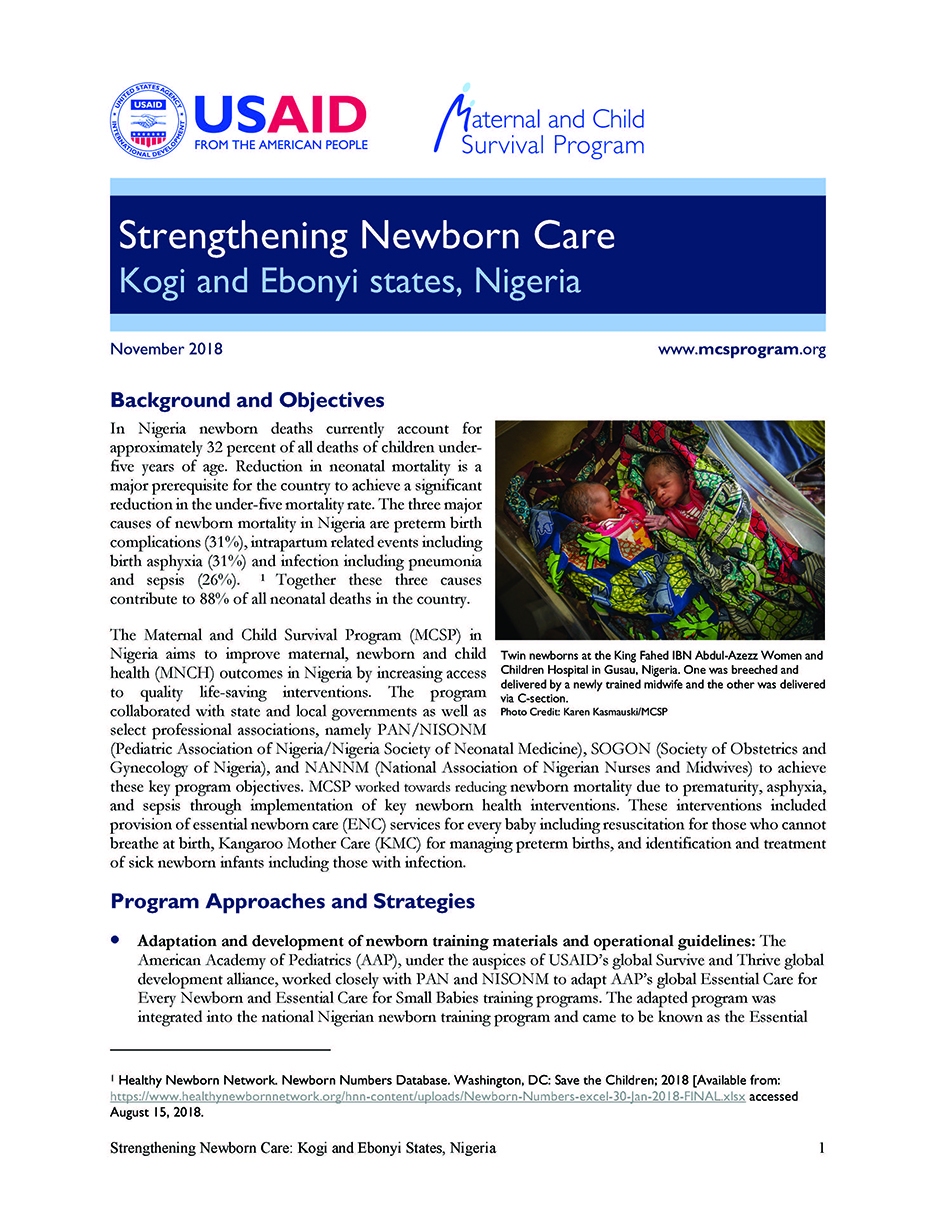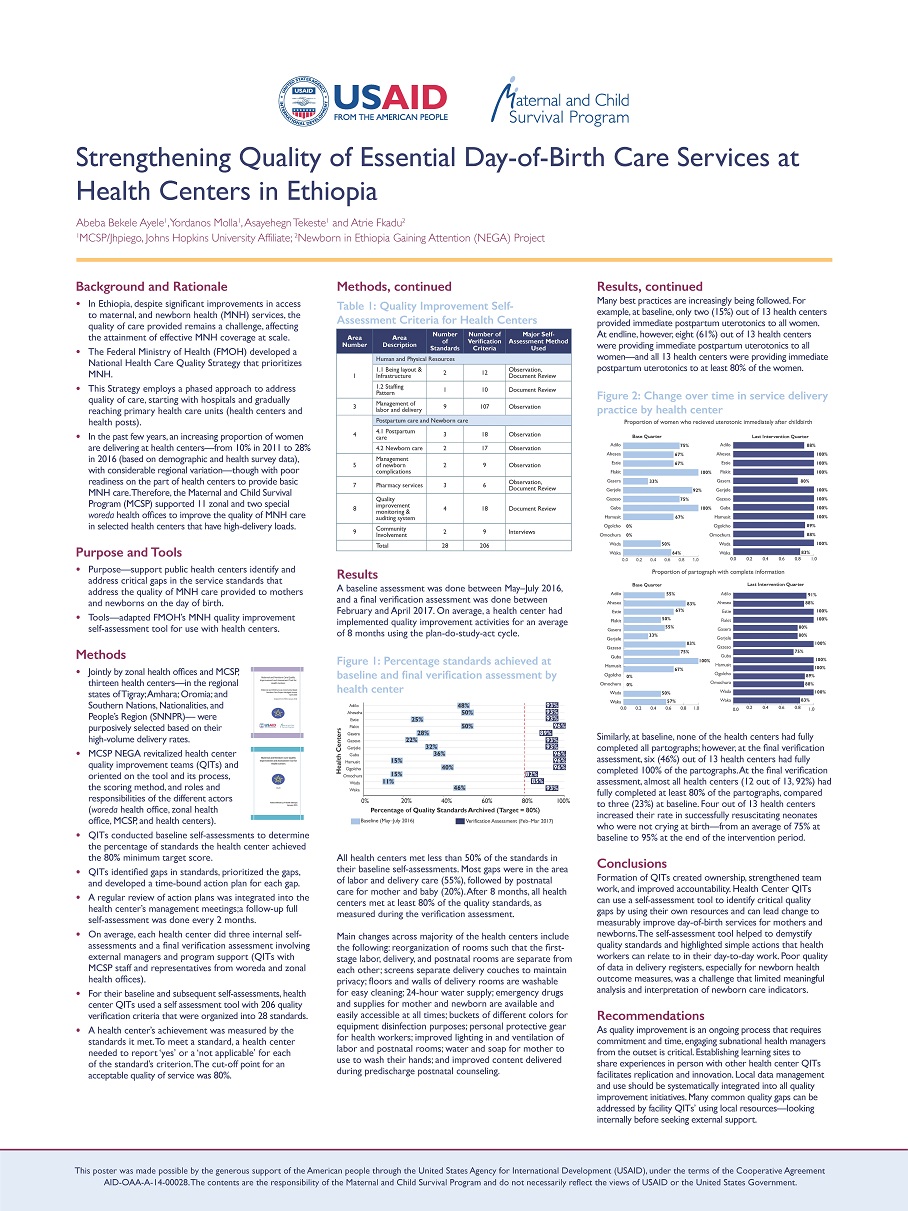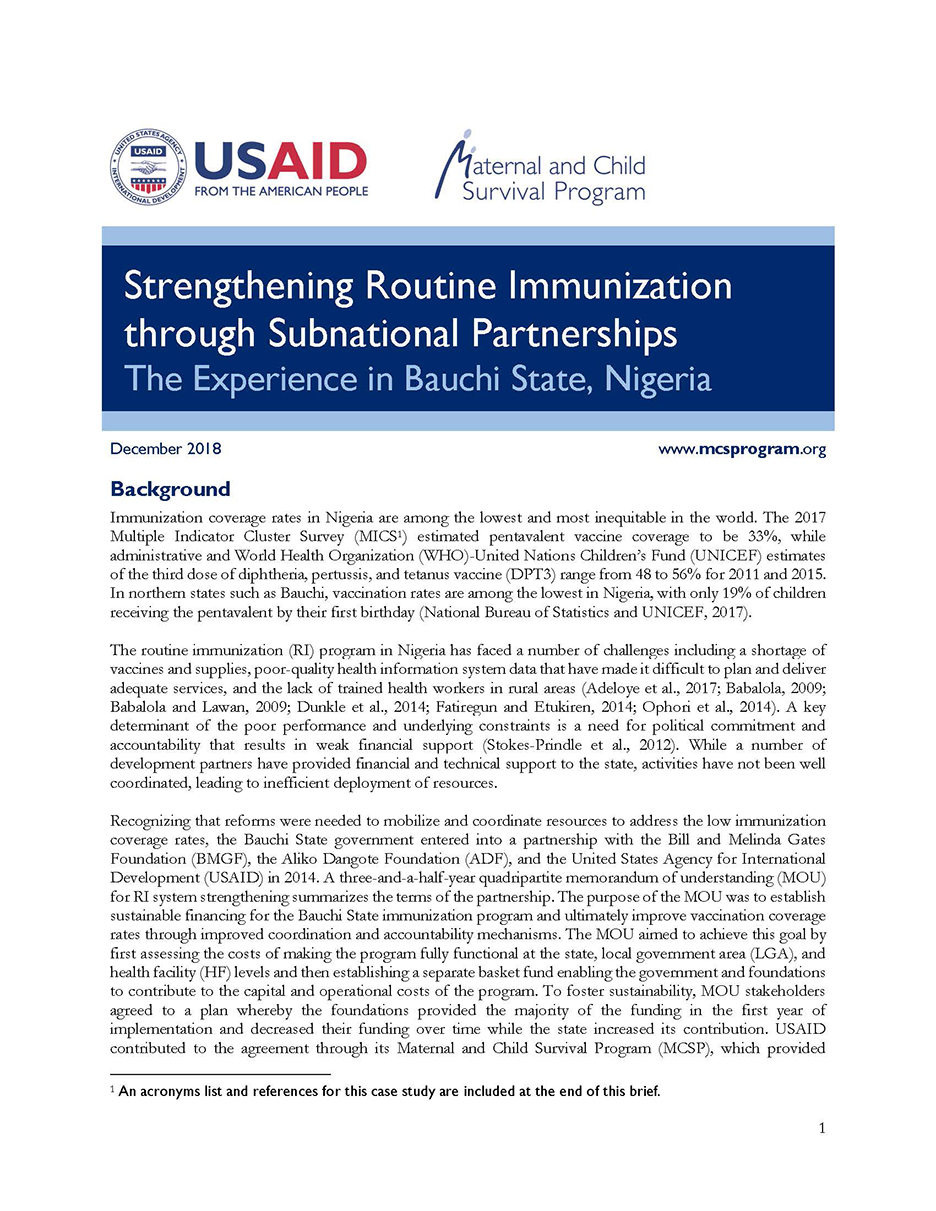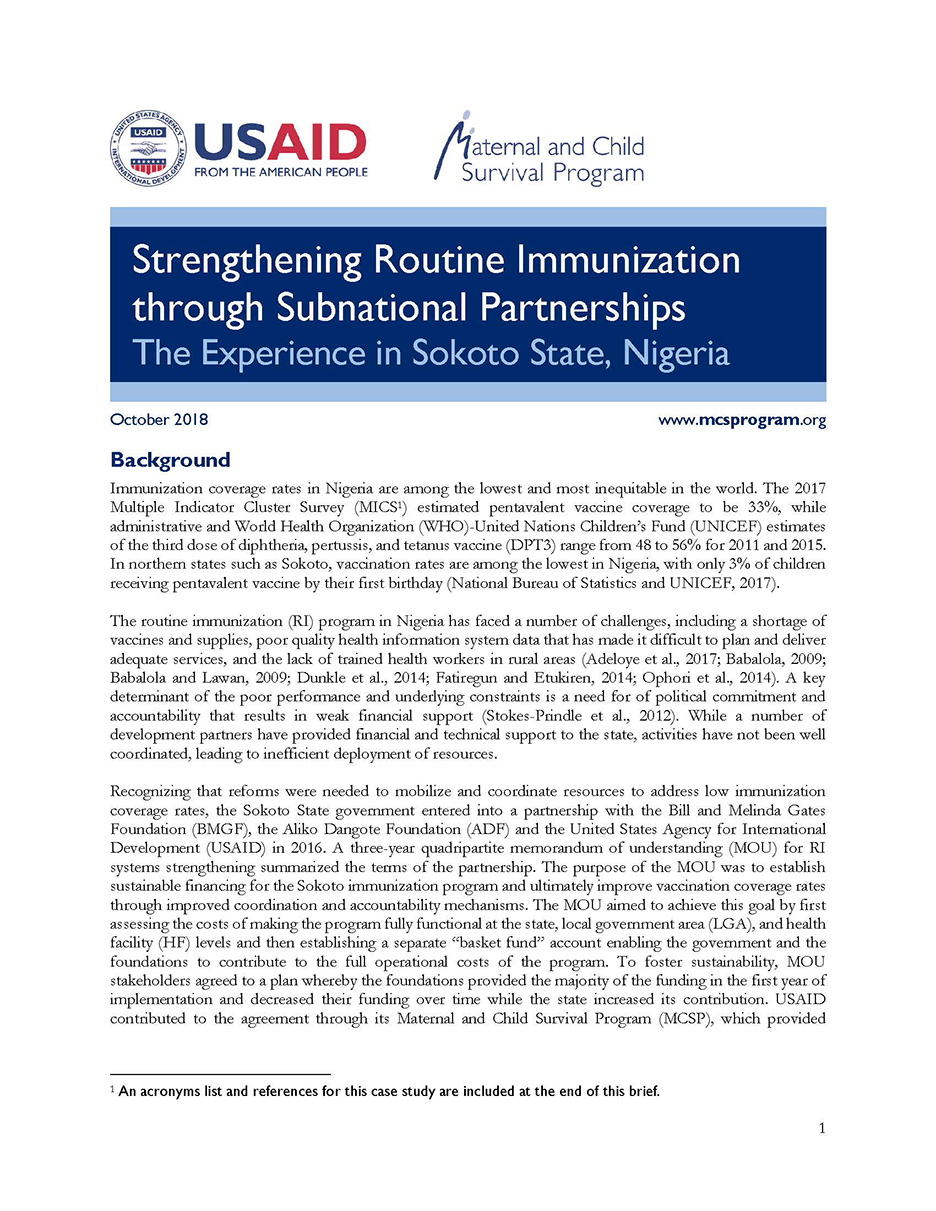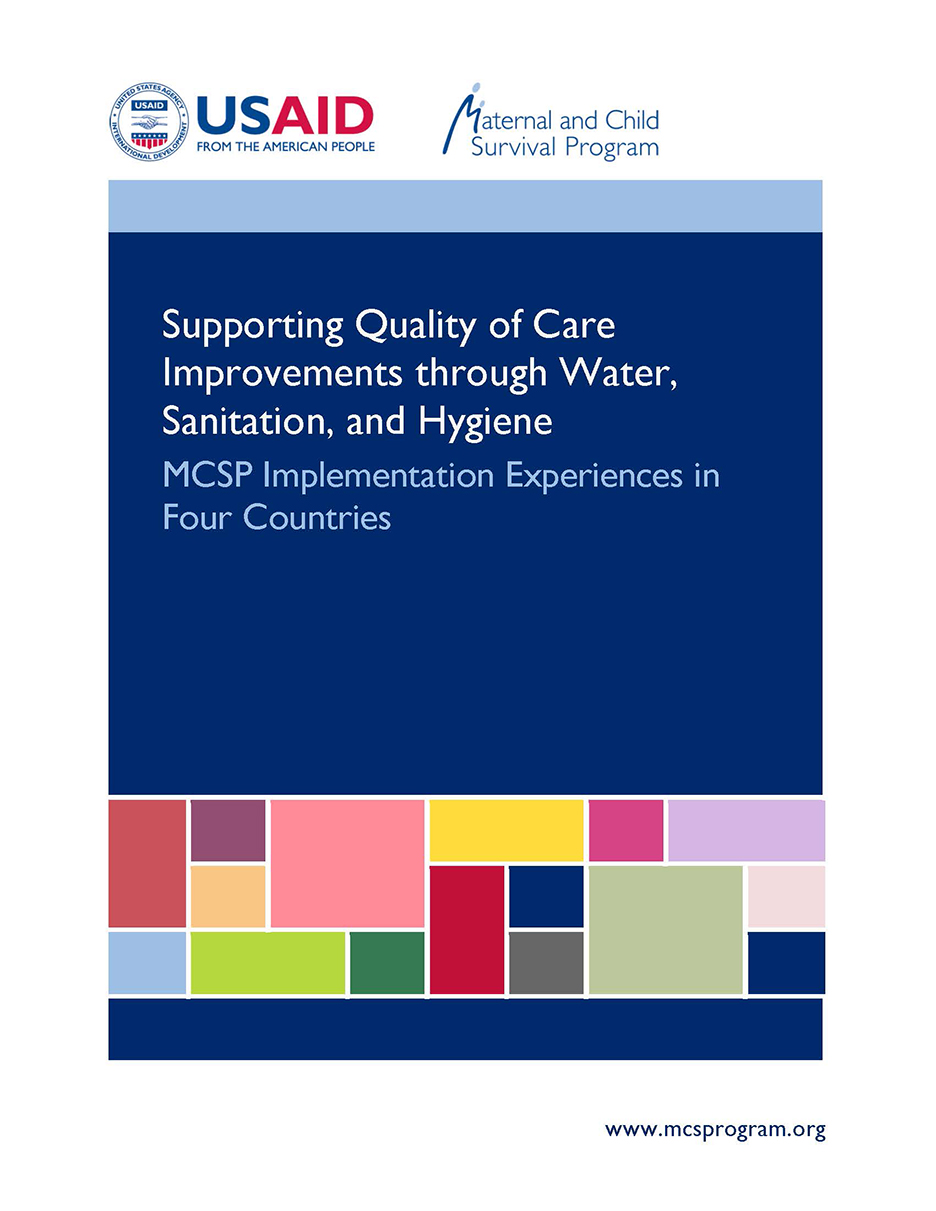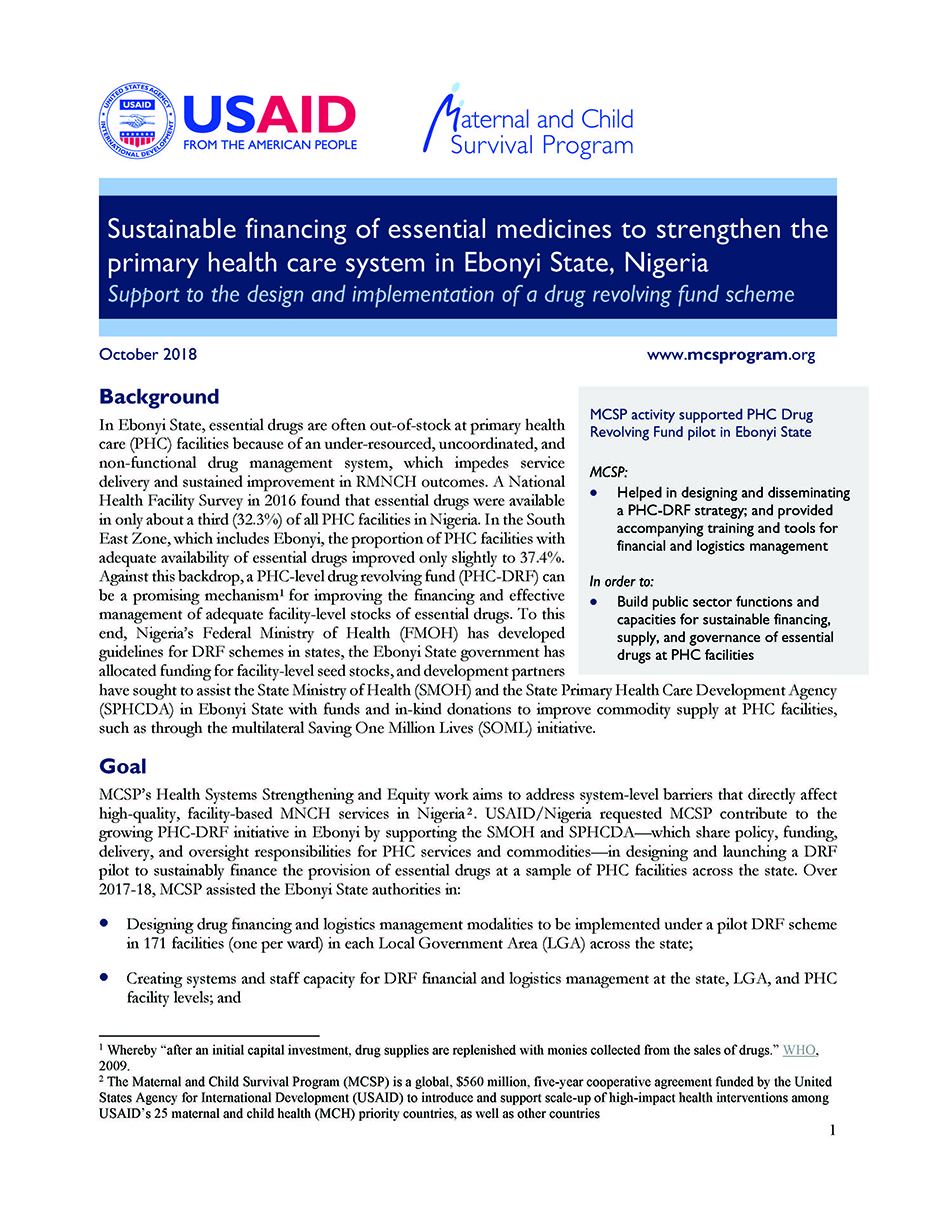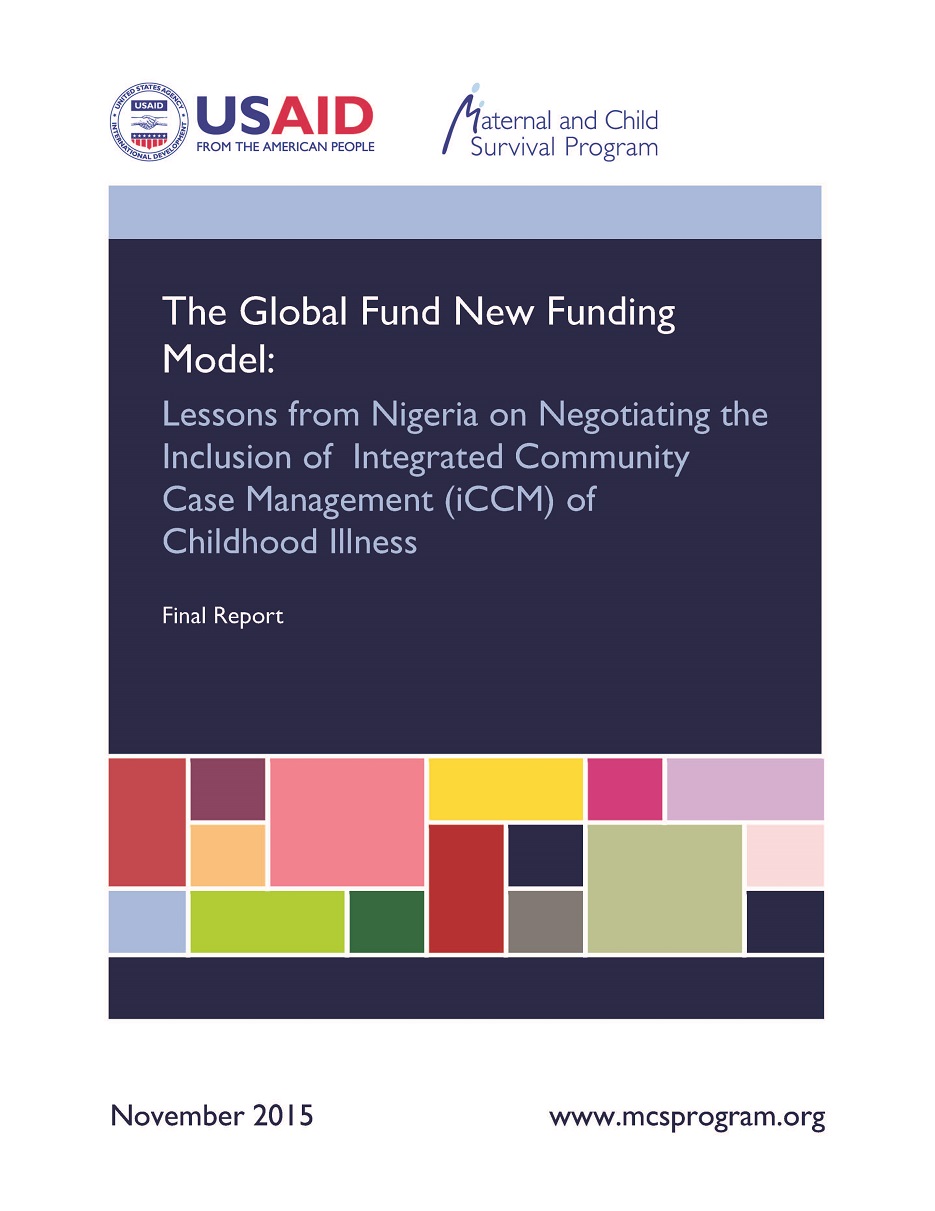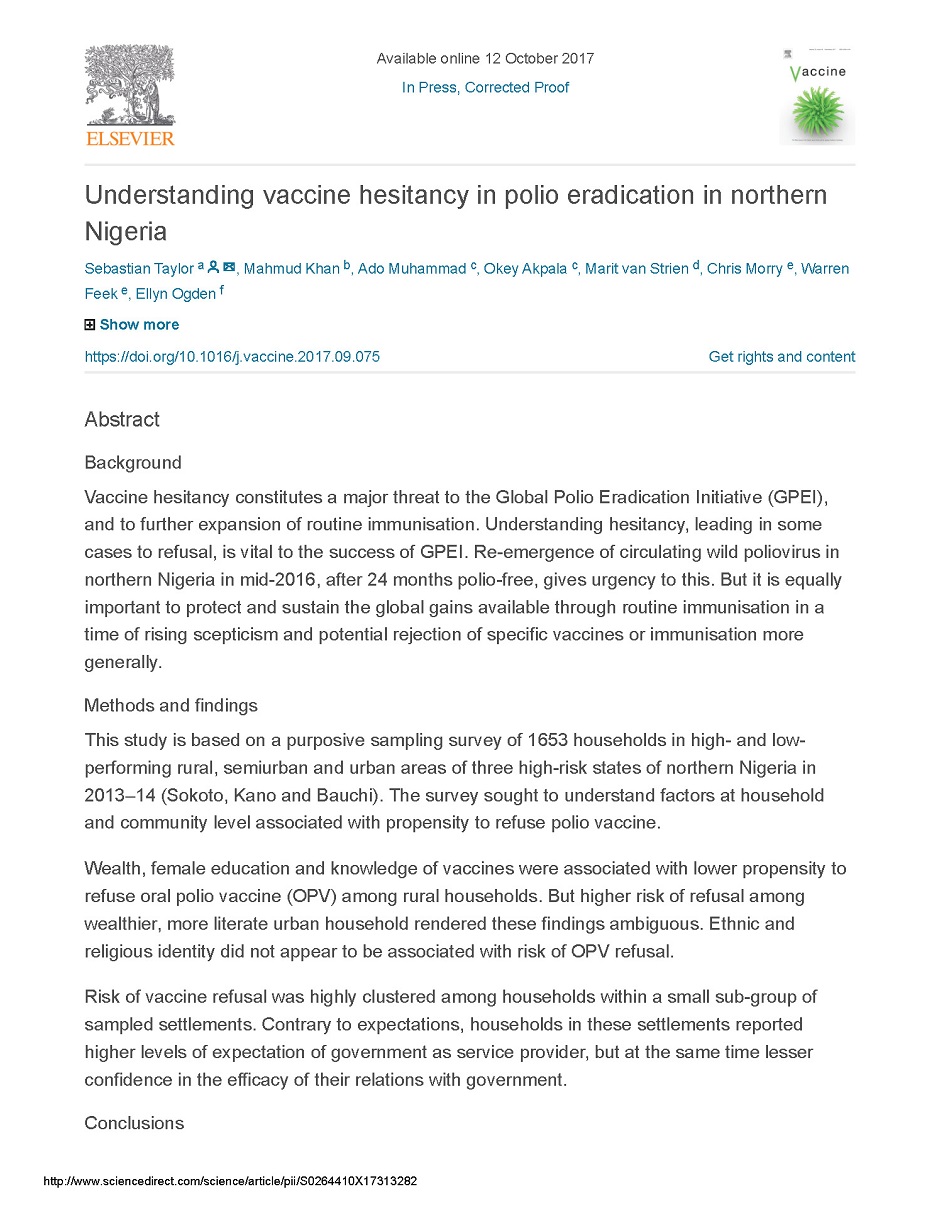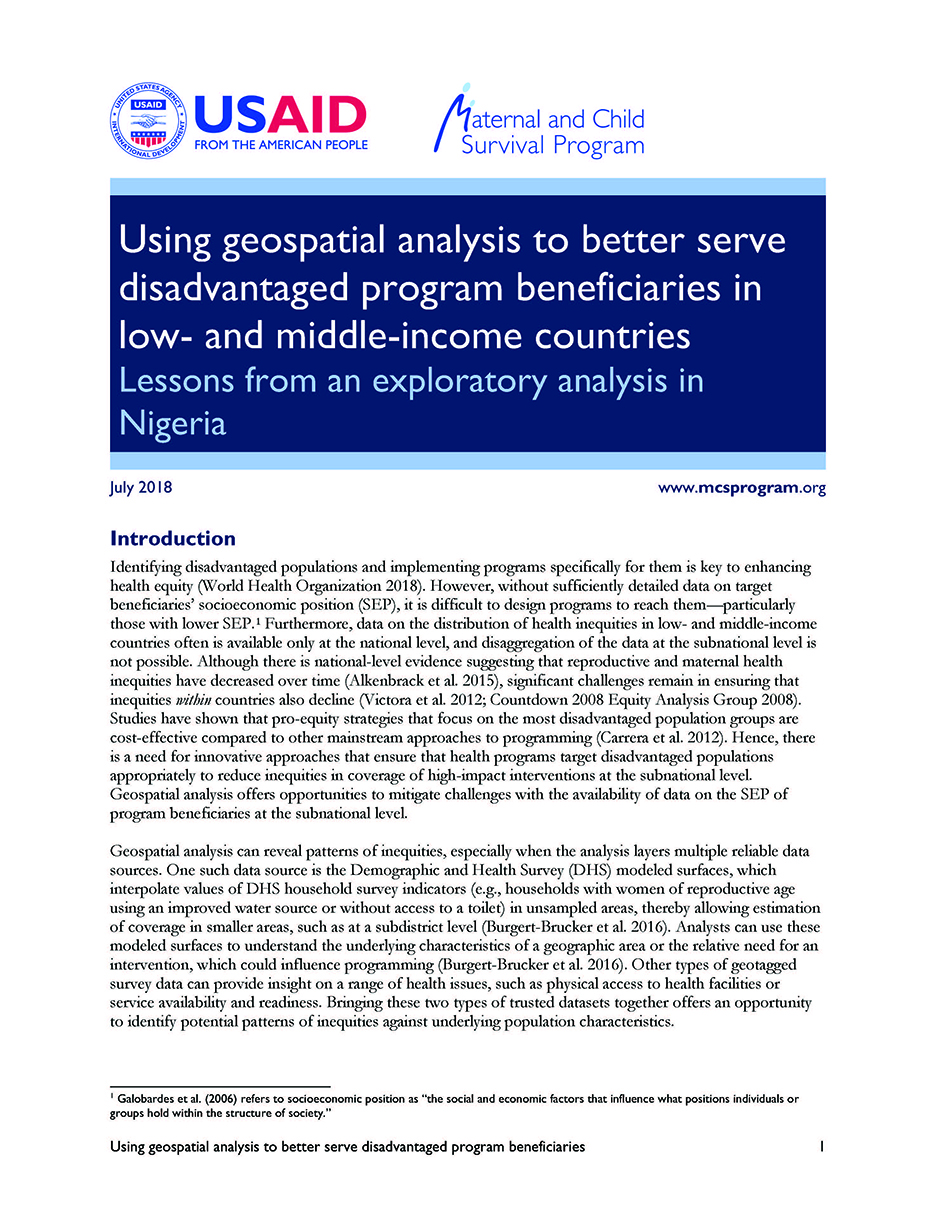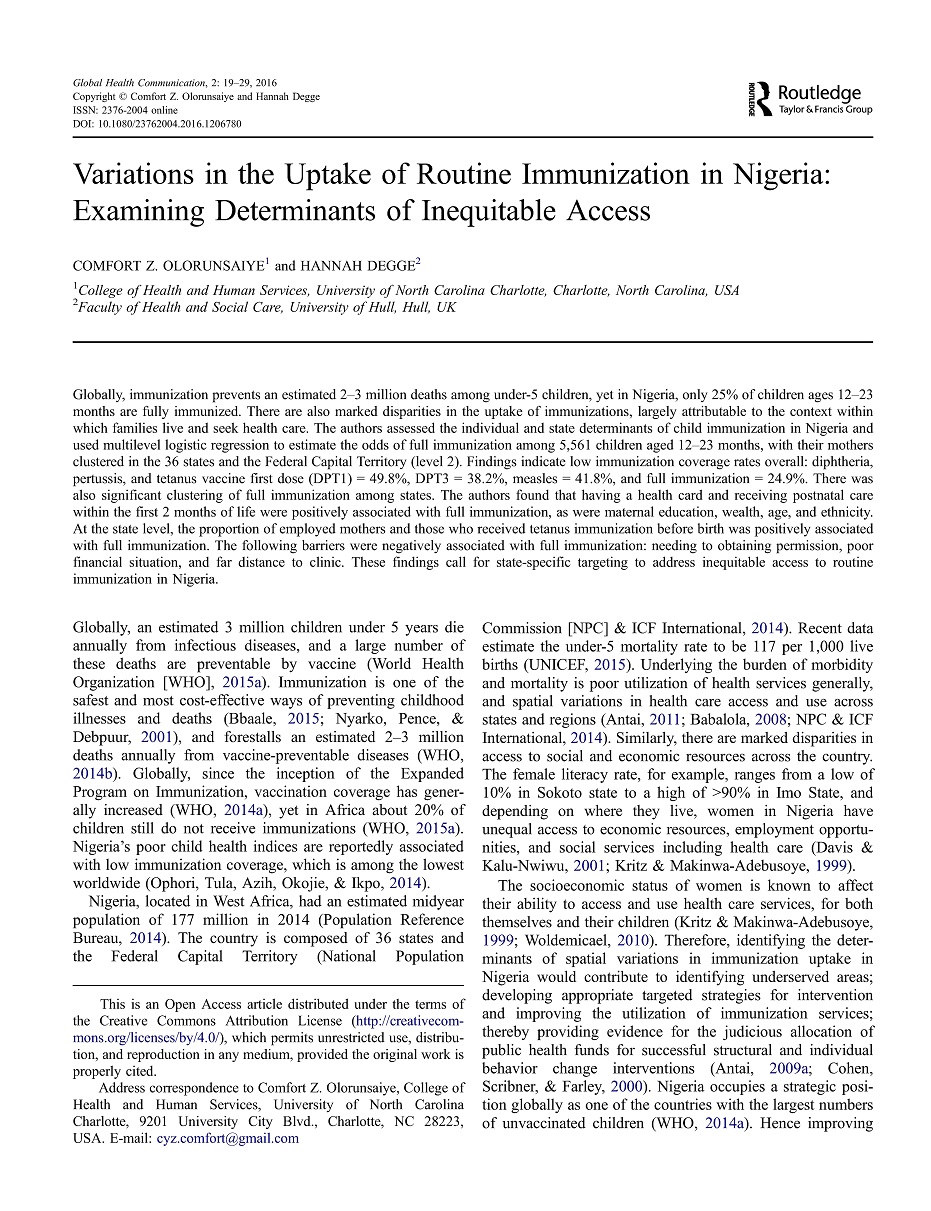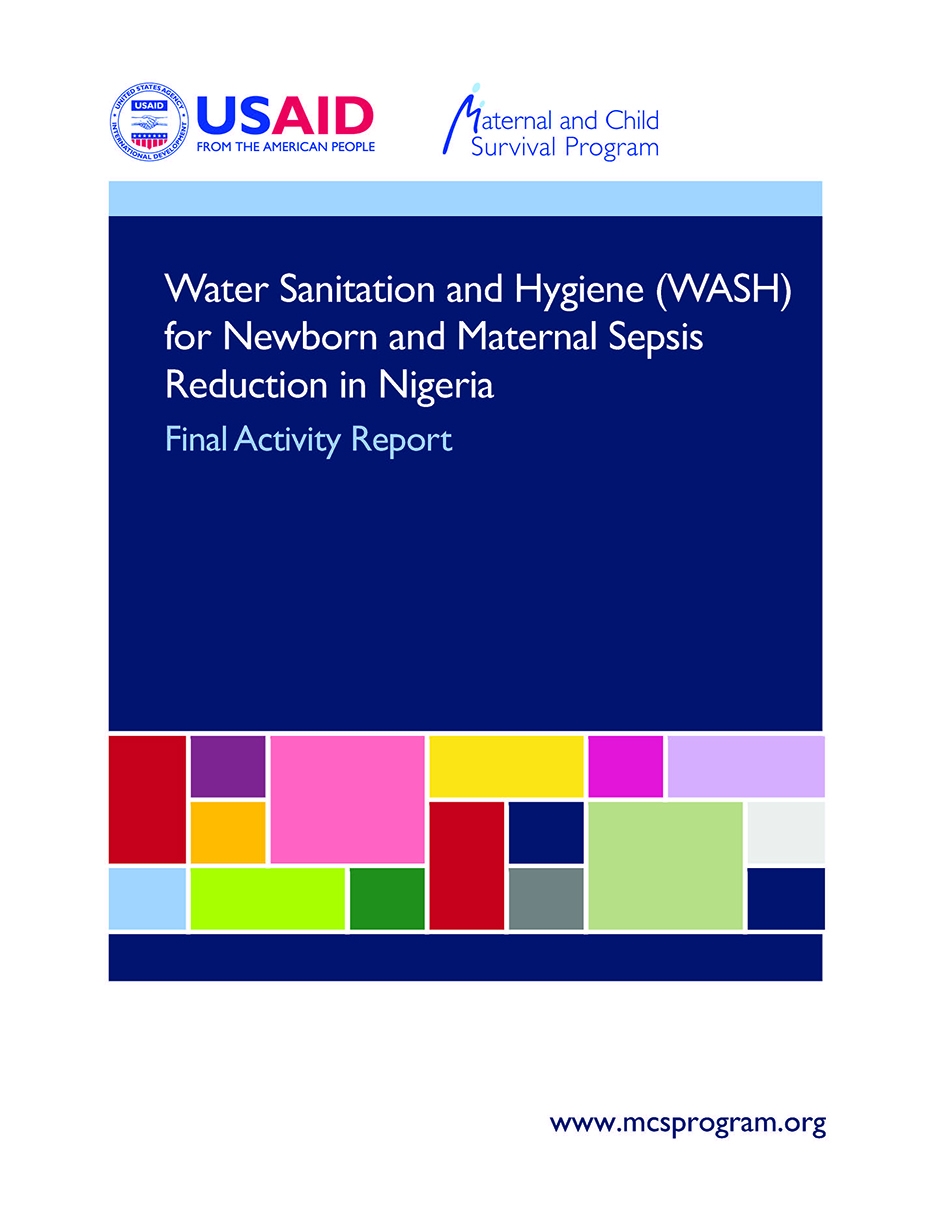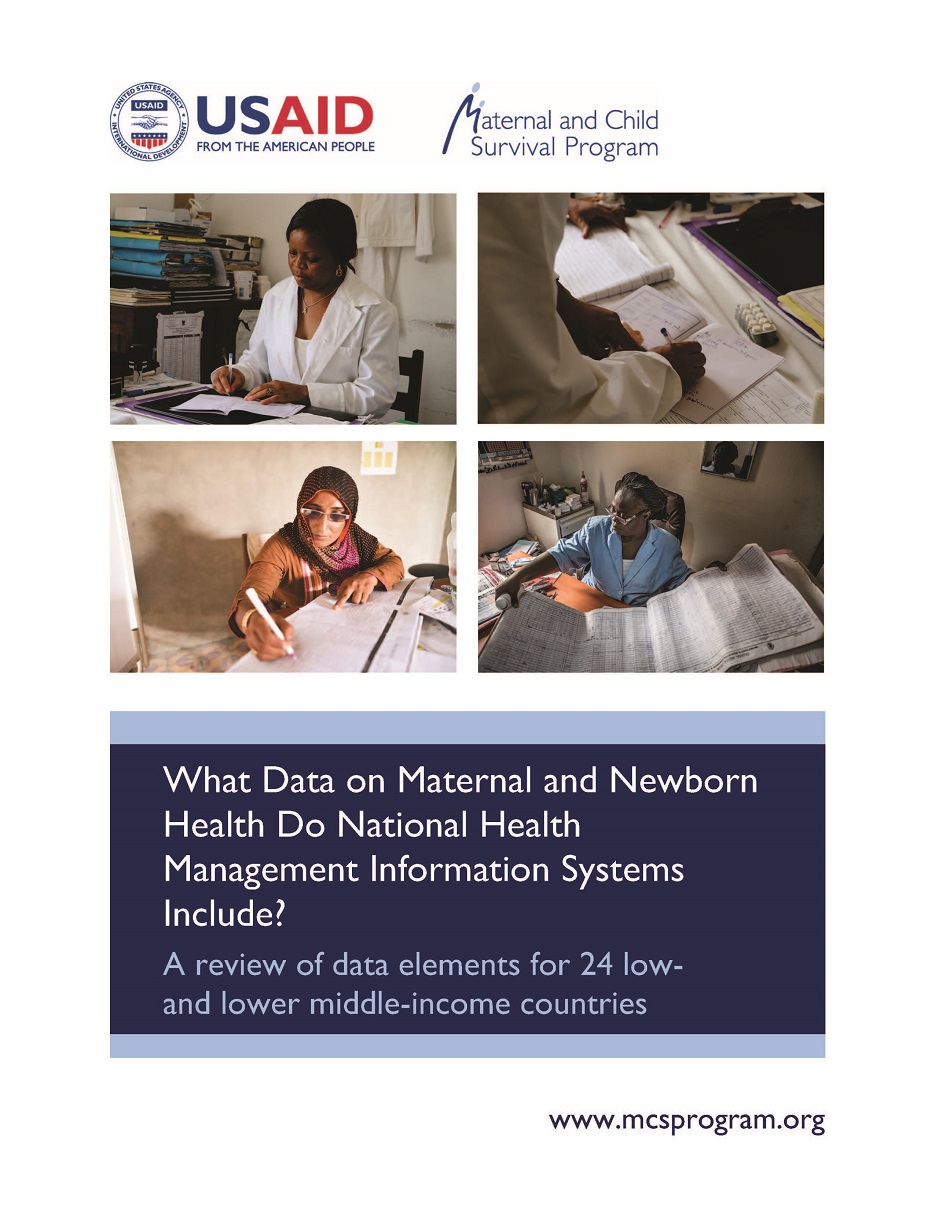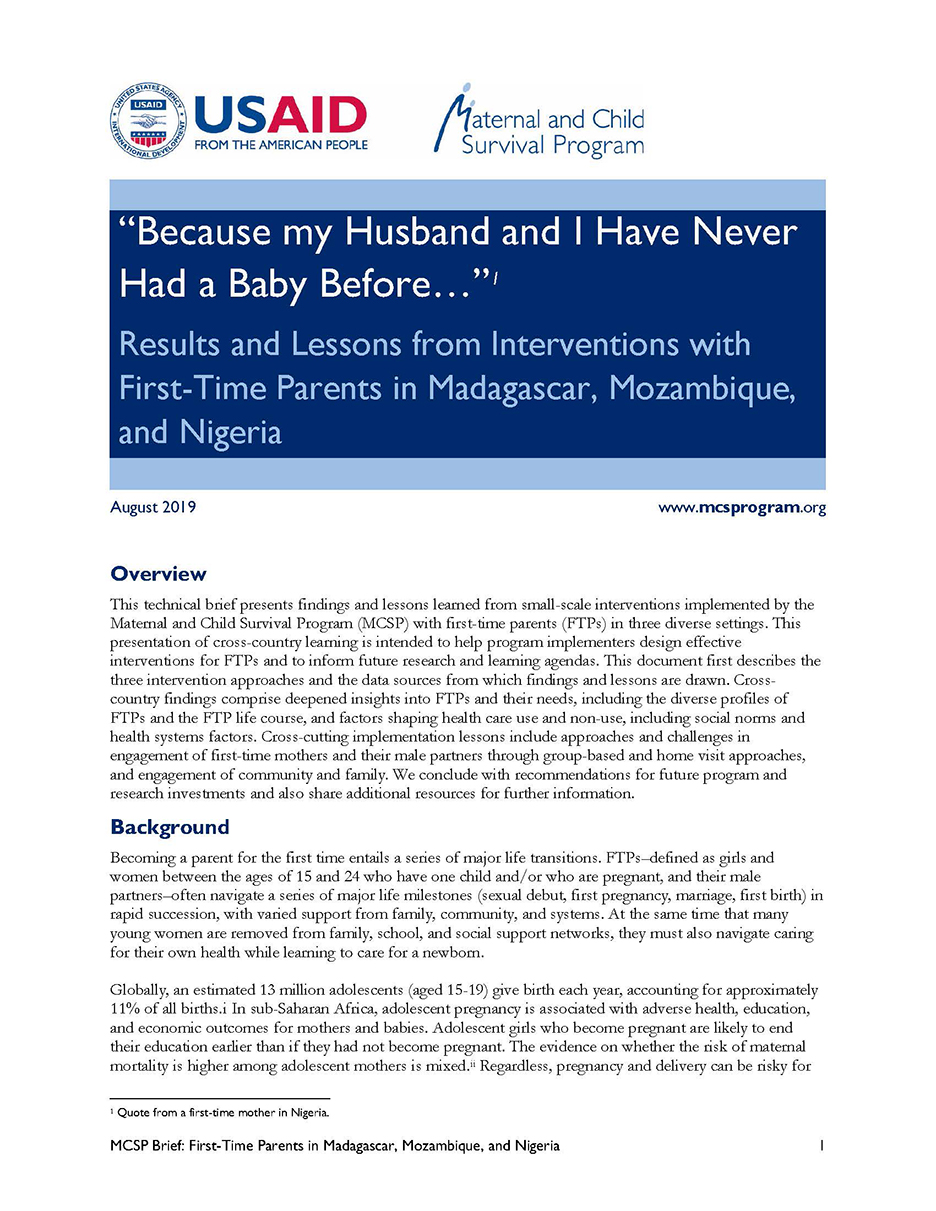78 Resources Found
A Regional Assessment of Facility-Level Maternal and Perinatal Death Surveillance and Response Systems in Four Sub-Saharan African Countries
From 2016–2017, MCSP conducted an assessment on maternal and perinatal death surveillance and response (MPDSR) implementation in four sub-Saharan African countries: Nigeria, Rwanda, Tanzania, and Zimbabwe. The objectives of the assessment were to 1) assess implementation status of MPDSR processes at subnational and facility levels, and 2) describe facilitators and barriers to sustainable subnational MPDSR […]
A Review of the Maternal and Newborn Health Content of National Health Management Information Systems in 13 Countries in Sub-Saharan Africa and South Asia
This report summarizes the results and recommendations from a review of health management information system data collection forms and reporting formats in 13 MCHIP countries: Bangladesh, Ethiopia, India, Kenya, Malawi, Mali, Mozambique, Nepal, Nigeria, Rwanda, Tanzania, Uganda and Zimbabwe. […]
Africa Regional Workshop on Improving Routine Data for Child Health in National Health Information Systems
This workshop report covers the highlights of the September 2017 Africa Regional Workshop on Improving Routine Data for Child Health in National Health Information Systems. The workshop aimed to advance the availability, accessibility, quality, and use of child health and nutrition data within national health information systems. More than 90 participants from 15 countries gathered […]
Assessment of Maternal and Perinatal Death Surveillance and Response Implementation in Ebonyi and Kogi States, Nigeria
MCSP and Save the Children, together with several Nigerian professional associations, set out to document experiences to date in implementing maternal death review, perinatal death review, and/or integrated maternal and perinatal death surveillance and response (MPDSR) processes in Nigeria. The study sought to identify factors that have facilitated or inhibited the uptake and sustainability of […]
Association of Volunteer Communication Mobilizers’ Polio-Related Knowledge and Job-Related Characteristics With Health Message Delivery Performance in Kano District of Nigeria
Volunteer communication mobilizers (VCMs) were deployed in Nigeria to increase community awareness for polio vaccination. To understand whether VCMs’ knowledge and job-related characteristics were associated with performance, the authors conducted a cross-sectional survey in the Nassarawa and Ungogo Local Governance Areas (LGAs). They asked VCMs about the consequences of polio, preventive strategies, and health communication […]
Better Care for Nigerian Women and Children
Between 2014 and 2018, MCSP collaborated with the Federal Ministry of Health (FMOH), Ebonyi and Kogi State Ministry of Health (SMOH), professional associations and other key stakeholders to improve the delivery and utilization of quality maternal, newborn and child health services in selected health facilities and communities in Ebonyi and Kogi states. […]
Beyond causes of death: The social determinants of mortality among children aged 1-59 months in Nigeria from 2009 to 2013
The 2014 Verbal and Social Autopsy Study was conducted based on a nationally representative sample of 3,254 deaths that occurred in children under the age of five and were reported on the birth history component of the 2013 Nigerian Demographic and Health Survey. Published in PLOS ONE, this is a descriptive analysis of the preventive and […]
Care of newborns with PSBI at the Primary Health Care Level Where Referral is Not Possible
This technical brief describes MCSP’s support of Nigeria’s Federal Ministry of Health (FMoH) and the State Ministry of Health of Kogi and Ebonyi States to operationalize this new policy for treatment of possible severe bacterial infection at Primary Healthcare Centers through training of service providers and various stakeholders. […]
Case Study: Experience Applying and Tracking a Quality Improvement Approach for Maternal and Newborn Health Services in Sub-Saharan Africa
The Standards-Based Management and Recognition (SBM-R®) approach to quality improvement was applied to maternal and newborn health services in Guinea, Mozambique, Nigeria and Zimbabwe. In every country, the quality of service delivery, as measured by clinical performance standards, improved following the intervention. The performance of evidence-based service delivery practices, as measured through service statistics, also […]
Community Engagement, Routine Immunization, and the Polio Legacy in Northern Nigeria
The Partnership for Reviving Routine Immunization in Northern Nigeria; Maternal, Newborn, and Child Health Initiative (PRRINN-MNCH) was a project funded by the UK Department of International Development and the Norwegian government that used an integrated approach to strengthen health services and increase community demand for and access to quality health care. Baseline and endline population-based […]
Community Monitoring of Individual Children’s Vaccinations
In low- and middle-income countries, unsatisfactory vaccination coverage often reflects services that are not sufficiently accessible, convenient, reliable, or friendly. It may also reflect a lack of public understanding or trust in vaccination and/or vaccination services. Additionally, in developing countries, various sociocultural factors affect the likelihood that families make the effort to get their children […]
Direct estimates of cause-specific mortality fractions and rates of under-five deaths in the northern and southern regions of Nigeria by verbal autopsy interview
Published in PLOS ONE, this study was conducted by national and international bodies that collaborated in this study to provide the first ever direct estimates of the causes of under-five mortality in Nigeria. The findings support that there is an epidemiological transition ongoing in southern Nigeria, suggest the way forward to a similar transition in the […]
Effect of Volunteer Household Counseling in Improving Knowledge of Birth Preparedness and Complication Readiness of Pregnant Women in Northwest Nigeria
After implementing a maternal and newborn health project between 2006 and 2010 in Kano and Zamfara States, Nigeria, the project is being evaluated with an objective to characterize the effects of volunteer household counselors (VHCs) upon improving knowledge of birth preparedness and complication readiness (BPCR) among pregnant women. To read the abstract and full article (subscription […]
Enhancing Ownership of the Strategic Health Development Plan II in Ebonyi, Nigeria: Critical Steps in Policy Development
In Nigeria, the 2010-2015 Ebonyi State Strategic Health Development Plan (SSHDP I) was the state’s first-ever integrated health plan. As SSHDP I came to a close, the Ebonyi State Ministry of Health (SMOH) reached out to partners including MCSP to support the development of SSHDP II (2018-2022). Given the state’s limited success under SSHDP I, […]
Ensuring Better Care for Nigerian Pregnant Women and New Mothers and their Babies
MCSP aimed to improve maternal, newborn, and child health outcomes in Nigeria by ensuring that every woman and her newborn receives appropriate and safe care at the right time. From 2015 to 2018, MCSP reached 240 primary, secondary, and referral-level facilities across Kogi and Ebonyi states with maternal and newborn services. In 2016, MCSP conducted […]
Essential Care for Every Baby Africa Regional Workshop
The Essential Care for Every Baby (ECEB) Africa Regional Workshop provided an opportunity for dialogue with select countries implementing Helping Babies Breathe at scale on the potential use of the ECEB learning materials to strengthen current newborn health programs and to develop a larger regional pool of ECEB master trainers and champions. In total, 85 […]
Evaluation of Interventions to Improve Reproductive, Maternal, and Newborn Health Service Availability and Readiness in Kogi and Ebonyi States
In Nigeria, MCSP focused on improving maternal and newborn health care services in Ebonyi and Kogi states by implementing high-impact interventions for better care on the day of birth when most maternal and newborn deaths occur. To determine the effect of MCSP’s RMNH quality improvement interventions in health facilities, baseline and endline quality of care […]
Factors Influencing Use of Health Services by First-Time Young Parents: Findings from Formative Research in Six States in Nigeria
This qualitative, cross-sectional, descriptive study used focus group discussions and in-depth interviews to investigate the dynamics related to sexual and reproductive health (SRH) care use patterns among first-time/young parents in Nigeria. The aim of the study was to provide an understanding of the dynamics around the use of SRH care use among adolescents who just […]
Family Planning Needs during the First Two Years Postpartum in Nigeria
This analysis is based on the 2013 Demographic and Health Survey data from Nigeria. It summarizes key findings related to birth and pregnancy spacing, fertility return, unmet need for and use of family planning, and contact with key services for women during the period from the last birth through two years postpartum. […]
Financial Analysis to Inform the Scale-up and Sustainability of Reproductive, Maternal, Neonatal, and Child Health Interventions and Services
This document synthesizes MCSP’s efforts to strengthen health systems by analyzing scale-up costs and financial flows for RMNCH services. It includes MCSP’s approach to financial analysis for scale-up and findings from analyses conducted in the Democratic Republic of the Congo (DRC), Ghana, Nigeria, Rwanda, and Uganda. This brief also presents lessons learned to improve future […]
From Paper Maps to Digital Maps: Enhancing Routine Immunisation Microplanning in Northern Nigeria
Geographical information systems (GIS) can be effective decision-support tools. In this paper, we detail a GIS approach implemented by the Bauchi and Sokoto state primary healthcare development agencies in Nigeria to generate and convert routine immunisation (RI) paper maps to digital maps for microplanning. […]
Gender Technical Brief
MCSP developed tools and strategies to address gender-based constraints and opportunities related to reproductive, maternal, newborn, child and adolescent health (RMNCAH) outcomes and integrated these into national strategies, training packages, and quality improvement tools. In Ghana, Nigeria, Mozambique and Tanzania, these tools have been institutionalized by ministries of health and scaled up through national programs. […]
HelloMama – End of Project Report
MCSP’s HelloMama project operated in Nigeria with the goal of improving the health outcomes for pregnant women, newborns, children, and families in Nigeria through age- and stage-based mobile messaging that complemented the efforts of frontline health care workers (HCWs). Over a period of three years, the project coordinated with a consortium of international partners, Pathfinder […]
HelloMama – Using Digital Health Platforms to Improve Health Outcomes for Pregnant Women and New Mothers in Nigeria
MCSP coordinated the efforts of Pathfinder International and the Praekelt Foundation, in collaboration with the Federal Ministry of Health and state ministry of health officials, to develop a locally led and planned-for-scale mobile messaging platform aligned with national health priorities, policies, and systems for pregnant women, newborns, children under 1 year, and their families that […]
HelloMama Brief for Engagement with Mobile Network Operators in Nigeria
HelloMama is an initiative that aims to improve maternal, newborn, and child health behaviors and outcomes in Nigeria through a demand generation mobile health program that delivers age- and stage-based messages to pregnant women, mothers, and household decision-makers. This brief discusses challenges and recommendations of working with different technology platforms and mobile network operators in Nigeria. […]
HelloMama Project Brief
HelloMama is an initiative that aims to improve maternal, newborn, and child health behaviors and outcomes in Nigeria through a demand generation mobile health program that delivers age- and stage-based messages to pregnant women, mothers, and household decision-makers. This brief is an overview of the HelloMama project, as well as an overview of the level of […]
Implementing a Memorandum of Understanding with Basket Funding to Improve Routine Immunization Systems
This compendium provides a brief overview of the steps in designing, implementing, monitoring, and sustainably transitioning a memorandum of understanding (MOU) partnership for routine immunization (RI) strengthening. The steps, lessons learned, and recommendations it contains come from the implementation of government-led RI MOU partnerships in six states in northern Nigeria: Bauchi, Borno, Kaduna, Kano, Sokoto, […]
Improving Care for Newborns with Respiratory Distress in Nigeria Through Use of Bubble Continuous Positive Airway Pressure Devices
From August 2016 through June 2018, MCSP in collaboration with the Federal Ministry of Health (FMoH), members from the American Academy of Pediatrics (AAP), as well as select professional associations in Nigeria, namely PAN (Pediatric Association of Nigeria) and NISONM (Nigeria Society of Neonatal Medicine), conducted a pilot study on the introduction of Pumani bubble […]
Improving Health Outcomes by Enhancing the Content and Use of RMNCH Data in Nigeria’s National Health Management Information System
One of the core objectives of MCSP was to strengthen health information systems to monitor and evaluate health outcomes and improve the use of reproductive, maternal, newborn and child health (RMNCH) routine service data to inform decisions at facility, district and state levels. This objective recognized that individuals, organizations and governments rely on data to […]
Improving Health Outcomes for Children Under Five in Nigeria
In Nigeria, MCSP implemented the Maternal, Newborn and Child Health (MNCH) Program from 2015-2018 with the Government of Nigeria and other partners at the national level and in Ebonyi and Kogi states. MCSP’s child health goal was to reduce deaths in children under five years of age from pneumonia, diarrhea, malaria, malnutrition and other treatable […]
Improving the Generation, Quality and Use of Routine Immunization Data: Preliminary Learning
MCSP is documenting lessons learned across MCSP-supported countries using different approaches to improve the generation and active use of routine immunization data at levels close to where the data is generated. […]
Improving the Quality of Preservice Education for Health Service Providers in Nigeria
MCSP worked with and implemented interventions in 14 accredited pre-service education (PSE) institutions, which included four nursing schools, four midwifery schools, an undergraduate nursing training program, an undergraduate medical training program and the community health departments of four health technology colleges/schools where community health extension workers (CHEWs) are trained. For each PSE institution and its […]
Increasing Family Planning Uptake Among Postpartum Women in Nigeria
The Family Planning (FP) component of MCSP in Nigeria is focused on integrating PPFP with a range of interventions spanned across policy development, capacity building and quality improvement with the aim of increasing voluntary FP uptake among postpartum women delivering in health facilities in Kogi and Ebonyi states. […]
Indicators That Describe the Strength of the Routine Immunization System: Preliminary Learning
This brief shares MCSP’s emerging findings from an iterative learning process to understand how certain indicators can benefit the immunization system. […]
Kangaroo Mother Care briefs
These briefs were developed as part of the Kangaroo Mother Care (KMC) Acceleration Partnership’s work to document the status of KMC implementation. The briefs include a summary of challenges, lessons learned, future actions, and related resources for the following six countries: Bangladesh Ethiopia India Malawi Nigeria Rwanda […]
Kangaroo mother care: a multi-country analysis of health system bottlenecks and potential solutions
This MCSP co-authored article published in the journal BMC Pregnancy & Childbirth aims to: 1) use a 12-country analysis to explore health system bottlenecks affecting the scale-up of kangaroo mother care; (2) propose solutions to the most significant bottlenecks; and (3) outline priority actions for scale-up. The 12 countries reviewed in the article are: Cameroon, […]
Lessons Learned from an Integrated Approach for Reaching First-time Young Parents in Nigeria
MCSP adapted and tested interventions with first-time young parents (FTYPs) in Kogi and Ebonyi states. This brief describes the interventions implemented in response to the formative research findings and presents preliminary findings from an assessment to document preliminary results and lessons learned. […]
Leveraging the Global Fund New Funding Model for Integrated Community Case Management: A Synthesis of Lessons from Five Countries
This report reviews the experience of five countries—Ghana, Kenya, Nigeria, Uganda and Zambia—with the Global Fund New Funding Model. Specifically, the report reviews efforts to incorporate integrated Community Case Management (iCCM) into eligible countries’ malaria and health systems strengthening concept notes to leverage resources to scale up iCCM. […]
Malaria in Pregnancy Country Profiles
This series of 12 malaria in pregnancy (MiP) country profiles illuminates the current status of MiP programming in US President’s Malaria Initiative (PMI) countries with a focus on the progress achieved in ensuring intermittent preventive treatment of malaria in pregnancy (IPTp) coverage among pregnant women. The profiles explore progress toward attaining targets, updates to countries’ […]
Male Engagement in Reproductive, Maternal, Newborn, Child and Adolescent Health (RMNCH) Package
The Male Engagement in Reproductive, Maternal, Newborn, Child and Adolescent Health (RMNCH) Package developed in Nigeria provides information on how men can participate in their family’s health and support their wives/partners during pre-pregnancy, pregnancy, labor and delivery, postnatal care, and infancy and childhood. The package includes a: Fathers Contribute to Healthy Families Pamphlet Male Engagement […]
Maternal and Child Survival Program Engagement in the 2017 Gavi Joint Appraisal and Country Engagement Framework: A Summary of Country Experiences
To assess the implementation progress and performance of Gavi’s support for new and underutilized vaccines and health system strengthening efforts, as well as its contribution to improved immunization coverage and equity, Gavi countries engage in regular review processes — either joint appraisals (JAs) or country engagement framework (CEF) reviews. This report provides an overview of […]
Maternal and Child Survival Program Engagement in the 2018 Gavi Joint Appraisal and Portfolio Planning Processes
MCSP is a key immunization partner in many countries and a member of the Interagency Coordinating Committee and country technical working groups (TWGs). As such, MCSP joins other immunization partners in-country to participate in the joint appraisal (JA) and portfolio planning process reviews. This report provides an overview of MCSP country experiences during the recent […]
MCSP Nigeria (MNCH Program) Technical Brief
This eight-page brief illuminates MSCP’s work to improve the quality of maternal, newborn, and postpartum family planning care in Nigeria. […]
MCSP Nigeria Technical Brief: Gender
This three-page brief illuminates MCSP’s works to improve the delivery of gender-sensitive, respectful care, and to ensure equitable access to reproductive, maternal, child and adolescent health services by addressing gender-related barriers to delivering high-quality care across Kogi and Ebonyi States in Nigeria. […]
Missed opportunities for family planning: an analysis of pregnancy risk and contraceptive method use among postpartum women in 21 low- and middle-income countries
This open access, MCSP co-authored article in the journal Contraception analyzes data from recent Demographic and Health Surveys conducted in 21 low- and middle-income countries to examine patterns of interpregnancy intervals, unmet need, pregnancy risk, and family planning method use and method mix among women 0–23 months postpartum. The countries reviewed were: Bangladesh, Burkina Faso, […]
Modeling Mortality Impact of Three African Countries Supported by MCSP: The Cases of Ethiopia, Nigeria, and Tanzania
This report summarizes an impact modeling exercise that MCSP conducted to assess country progress as well as its contributions to changes in maternal, newborn, and child mortality trends. MCSP used the Lives Saved Tool (LiST) to estimate the mortality impact of the documented changes in coverage of MCSP-supported HIIs. […]
Nigeria Handwashing and Infection Prevention Behavior Compliance Communication Posters
Handwashing is a cost-effective intervention that reduces infections in mothers and children. MCSP has created WASH posters in Nigeria to encourage handwashing. Handwashing: Postnatal Caregiver Cord Care Handwashing: Delivery and Postnatal Postnatal Handwashing Handwashing: Delivery in Kogi State Handwashing: Delivery in Ebonyi State Handwashing: Postnatal Ward Entrance […]
Nigeria Maternal Newborn Child Health – End of Project Final Report
MCSP in Nigeria was to contribute to the reduction of maternal, newborn, and child mortality by improving the quality and use of maternal, newborn, and child health interventions in Ebonyi and Kogi states. Over a period of 4 years, MCSP worked with several key stakeholders within and outside Nigeria to plan and implement a wide […]
Nigeria MNCH Program Technical Brief – Improving Quality of Maternal, Newborn and Postpartum Family Planning Care
This brief describes MCSP support to the Nigeria Ministry of Health (MOH) from October 2014-September 2018 to improve the quality of integrated maternal and newborn health care, including PPFP services, and to develop a national strategy for quality RMNCH care. The overall goal of MCSP support in Nigeria is to improve health outcomes for mothers, […]
Nigeria PPFP Dedicated Counselor Initiative – Assessment and Key Results
A baseline assessment conducted by MCSP between June and July 2015 showed zero uptake of immediate PPFP in the two project states, due largely to lack of trained PPFP providers. As an innovation to increase uptake of PPFP at the time of birth, MCSP initiated the training of “dedicated counselors” in March 2017 at 36 […]
Nigeria WASH and Infection Prevention Control (IPC) Facility Assessment Scorecards
MCSP created WASH and Infection Prevention Control (IPC) Facility Assessment Scorecards to help reduce infections in mothers and children in Nigeria. General Facility Scorecard Labour and Delivery Scorecard Postnatal Care Scorecard Special Newborn Care Criteria Scorecard […]
Onsite LDHF Training Versus Traditional Offsite Group-Based Training for Maternal and Newborn Health Care Workers in Ebonyi and Kogi States Nigeria
The study findings support the recommendation that the Kogi and Ebonyi State Ministries of Health should consider shifting from traditional offsite to onsite in-service training using the low-dose high frequency/m-mentoring approach to improve clinical competency and skills retention of providers. This shift would reduce the time health workers spend away from their work stations to […]
Phase I Report: WASH for Neonatal and Maternal Sepsis Reduction Study
To investigate the current hygiene practices of health care staff, mothers, and other caregivers from the onset of labor through the first two days of life, MCSP commissioned the Improved Hygiene for Maternal and Newborn Sepsis Reduction Study. This study is part of a larger 4-phased activity MCSP is conducting in Eboni and Kogi States, […]
Polio Immunization Social Norms in Kano State, Nigeria: Implications for Designing Polio Immunization Information and Communication Programs for Routine Immunization Services
This study explored polio immunization social norms in Kano State, Nigeria, one of the last polio endemic regions in the world. The study aimed to answer the following research question: what polio immunization social norms exist in Kano, Nigeria To read the full, open access article in the journal Global Health Communication, click here. […]
Poster: A Regional Assessment of Facility-Level Maternity and Perinatal Death Surveillance and Response Systems in Four Sub-Saharan Countries
Poster illustrating the assessment, objectives, methods, and results of an assessment of facility-level maternity and perinatal death surveillance and response systems in four sub-Saharan countries: Tanzania, Nigeria, Rwanda and Zimbabwe. Includes nine recommendations. […]
Potential for Integrating Family Planning and Immunization in Nigeria
The MCSP program in Nigeria started as the Maternal and Newborn Health (MNH) program, focused on strengthening national MNH policy and improving quality and utilization of high-impact, facility-based maternal and neonatal health services in Kogi and Ebonyi States. In 2015, the MNH program incorporated postpartum family planning (PPFP), as a key element of integrated MNH/PPFP […]
Reflections on Polio Lessons from Conflict-Affected Environments
This document outlines the evolution of strategies and tactics of polio eradication. It also illuminates how these strategies demonstrate an increasingly complex and sophisticated response to conflict. This document describes the foundations and framework that guide today’s polio interventions in conflict-affected areas while arguing that more systematic research is needed to help refine and critically […]
Report on MCSP Support for the Polio Switch in April 2016
In April 2016, the largest and fastest globally-coordinated project in the history of immunization was carried out in 155 countries and territories. Known as “the switch,” this activity entailed replacing trivalent oral polio vaccine (tOPV), which protects against all three strains of the poliovirus, with the bivalent form (bOPV) which protects against two strains, types […]
Research Brief: Findings from formative research with first-time parents in two states of Nigeria
This brief explains MCSP’s implementation of an activity in Kogi and Ebonyi states in Nigeria to address the needs of pregnant and parenting adolescents, with the ultimate objective of increasing use of ANC, safe delivery, and PPFP services to delay a subsequent pregnancy. To inform planning for this intervention, MCSP conducted formative research to understand the SRH needs […]
Research Briefs: Highlights from Formative Research with First-Time Young Parents in 6 Nigerian States
MCSP conducted qualitative research in Kogi, Ebonyi, Bauchi, Cross Rivers, Ondo, and Sokoto States in Nigeria to understand the reproductive, maternal, and newborn health needs of first-time young parents. Kogi Research Brief Ebonyi Research Brief Bauchi Research Brief Cross Rivers Research Brief Ondo Research Brief Sokoto Research Brief […]
Review of Newborn Health Content in Integrated Management of Newborn and Childhood Illnesses and Integrated Community Case Management Training Materials and Job Aids in Seven Maternal and Child Survival Program Countries
This assessment was designed to understand the newborn care content in country materials for Integrated Management of Newborn and Childhood Illness and integrated community case management. Specifically the assessment focuses on content related to essential newborn care, postnatal care, care for low-birthweight and preterm babies, breastfeeding and support to mothers for breast milk feeding, management […]
Revitalizing Access to Permanent Methods
MCSP strives to prevent unintended pregnancies with a continued focus on quality service delivery that expands access to a wide range of voluntary contraceptive options, including permanent methods (PM). Of the 21 countries in which MCSP has supported FP interventions, seven (Rwanda, Nigeria, Tanzania, India, Haiti, Bangladesh, and Togo) included PM activities at the request […]
Revitalizing Access to Permanent Methods: Lessons Learned from MCSP Country Programs
MCSP strives to prevent unintended pregnancies with a continued focus on quality service delivery that expands access to a wide range of voluntary contraceptive options, including permanent methods. Of the 21 countries in which MCSP has supported family planning interventions, seven (Rwanda, Nigeria, Tanzania, India, Haiti, Bangladesh, and Togo) included permanent method activities at the […]
Scaling up chlorhexidine for umbilical cord care in Nigeria
Brief on scaling up chlorhexidine for umbilical cord care in Nigeria to reduce newborn deaths from sepsis. […]
Strengthening Newborn Care in Kogi and Ebonyi States Nigeria
MCSP in Nigeria aims to improve maternal, newborn and child health (MNCH) outcomes in Nigeria by increasing access to quality life-saving interventions. The program collaborated with state and local governments as well as select professional associations, namely PAN/NISONM (Pediatric Association of Nigeria/Nigeria Society of Neonatal Medicine), SOGON (Society of Obstetrics and Gynecology of Nigeria), and […]
Strengthening Quality of Essential Day-of-Birth Care Services at Health Centers in Ethiopia
This poster illustrates the phased approach to address quality of care to improve maternal and newborn health services in Ethiopian facilities. It includes details on methods used, results, and recommendations. […]
Strengthening Routine Immunization through Subnational Partnerships – The Experience in Bauchi State, Nigeria
There is limited evidence on how partnerships can be used to improve health system performance at the subnational level. Therefore, the memorandum of understanding in Bauchi provides an opportunity to document a subnational partnership aimed at addressing systemic challenges facing the routine immunization program. The purpose of this case study is to describe the processes […]
Strengthening Routine Immunization through Subnational Partnerships – The Experience in Sokoto State, Nigeria
There is limited evidence on how partnerships can be used to improve health system performance at the subnational level. Therefore, the memorandum of understanding in Sokoto provides an opportunity to document a subnational partnership aimed at addressing systemic challenges facing the routine immunization program. The purpose of this case study is to describe the processes […]
Supporting Quality of Care Improvements through Water, Sanitation, and Hygiene
MCSP worked to improve health care facility WASH conditions and practices to contribute to quality of care (QoC) improvements and reductions of maternal and newborn infections through MCSP’s innovative Clean Clinic Approach. This report highlights experiences from four MCSP country programs (Haiti, Democratic Republic of the Congo, Guatemala, and Nigeria) that used WASH investments as […]
Sustainable Financing of Essential Medicines to Strengthen the Primary Health Care System in Nigeria
MCSP’s Health Systems Strengthening and Equity work aims to address system-level barriers that directly affect high-quality, facility-based MNCH services in Nigeria. USAID/Nigeria requested MCSP contribute to the growing primary health care- drug revolving fund (PHC-DRF) initiative in Ebonyi by supporting the State Ministry of Health (SMOH) and State Primary Health Care Development Agency (SPHCDA) —which […]
Testing Routine Maternal, Newborn, and Child Health Indicators on Quality of Care: Results from Madagascar and Nigeria
This brief presents findings from assessments of WHO-recommended routine RMNCH indicators in Madagascar and Nigeria. The aims of the two assessments were to determine the acceptability, relevance and usefulness, and feasibility of the indicators for quality improvement efforts. The assessments also looked into integrating the RMNCH indicators into the national HMIS. […]
The Global Fund New Funding Model: Lessons from Nigeria on Negotiating the Inclusion of Integrated Community Case Management (iCCM) of Childhood Illness
This case study reviews Nigeria’s experience in negotiating the inclusion of integrated community case management (iCCM) into the Global Fund New Funding Model (NFM) concept note for malaria. It explores some of the challenges experienced by and lessons learned from the Nigeria experience, and discusses broader issues related to the process of developing the NFM […]
Understanding vaccine hesitancy in polio eradication in northern Nigeria
Vaccine hesitancy constitutes a major threat to the Global Polio Eradication Initiative (GPEI), and to further expansion of routine immunisation. Understanding hesitancy, leading in some cases to refusal, is vital to the success of GPEI. This article explains the method, findings and conclusions to a recent study in northern Nigeria that sought to understand factors at household and community level […]
Using Geospatial Analysis to Better Serve Disadvantaged Program Beneficiaries in Low- and Middle-Income Countries: Lessons from an Exploratory Analysis in Nigeria
MCSP conducted an exploratory geospatial analysis using multiple geospatial data sources to understand inequities in access to maternal health services in two Nigerian states. The program looked at the relative socioeconomic position (SEP) of the population surrounding MCSP-supported facilities – as measured by a proxy indicator from Demographic and Health Survey (DHS) modeled surfaces for […]
Variations in the Uptake of Routine Immunization in Nigeria: Examining Determinants of Inequitable Access
Globally, immunization prevents an estimated 2–3 million deaths among under-5 children, yet in Nigeria, only 25% of children ages 12–23 months are fully immunized. There are also marked disparities in the uptake of immunizations, largely attributable to the context within which families live and seek health care. The authors assessed the individual and state determinants […]
Water Sanitation and Hygiene (WASH) for Newborn and Maternal Sepsis Reduction in Nigeria
In an effort to improve the quality of facility- based MNCH services, MCSP launched a three-phased learning activity on improved hygiene for maternal and newborn sepsis reduction focused on improving hygiene around the day of birth in Nigeria. The purpose of this activity was to build on the quality improvement activities being implemented by MCSP […]
What Data on Maternal and Newborn Health Do National Health Management Information Systems Include?
This report reviews the data elements related to maternal and newborn health (MNH) present in the health management and information (HMIS) systems in 24 low- and lower middle-income countries. The review’s purpose is to quantify the extent to which key data elements are available in the antenatal, delivery and postpartum registers and associated summary reporting […]
“Because my Husband and I Have Never Had a Baby Before…” Results and Lessons from Interventions with First-Time Parents in Madagascar, Mozambique, and Nigeria
This technical brief presents findings and lessons learned from small-scale interventions implemented by MCSP with first-time parents (FTPs) in three diverse settings. This presentation of cross-country learning is intended to help program implementers design effective interventions for FTPs and to inform future research and learning agendas. This document first describes the three intervention approaches and […]
